move fast and break things
description: internal motto used by Facebook until 2014, as coined by Mark Zuckerberg
128 results
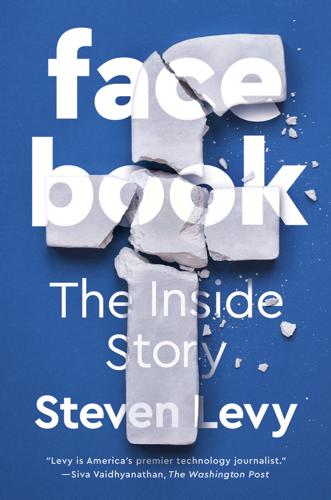
Facebook: The Inside Story
by
Steven Levy
Published 25 Feb 2020
Understanding how Facebook was a hacker company helped shape the four values that they ultimately presented to Zuckerberg. It was like showing him a mirror. Focus on Impact. Be Bold. Move Fast and Break Things. Be Open. Zuckerberg liked those but insisted on a fifth: Build Social Value. While the first four were internal guidelines, this fifth value emphasized Facebook’s impact on the outside world, which Zuckerberg believed was overwhelmingly positive. (He still does.) Of those values, one stood out as uniquely Facebook, uniquely Zuckerberg. “Move Fast and Break Things” was, in a sense, already synonymous with the company. No one is sure where those exact words first appeared, but it may well have been in an all-hands meeting at the Hamilton Street office in Palo Alto, at a time when Facebook had hired its first wave of managers, after becoming too big for all the individual contributors to report to D’Angelo or another executive.
…
Contents Also by Steven Levy Title Page Copyright Dedication Introduction PART ONE 1. ZuckNet 2. Ad-Boarded 3. Thefacebook 4. Casa Facebook 5. Moral Dilemma 6. The Book of Change PART TWO 7. Platform 8. Pandemic 9. Sheryl World 10. Growth! 11. Move Fast and Break Things 12. Paradigm Shift 13. Buying the Future PART THREE 14. Election 15. P for Propaganda 16. Clown Show 17. The Ugly 18. Integrity 19. The Next Facebook Epilogue Acknowledgments Notes Index About the Author Introduction HI, I’M MARK!”
…
It was then that Zuckerberg learned that the SpaceX rocket, the one carrying the satellite he had been gleefully touting as an Internet savior for the struggling continent, had blown up on the launchpad, a day before the scheduled blastoff. Facebook’s satellite had been in place during the test—a time-saving measure—and was lost in the conflagration. Zuckerberg was furious with Musk. (Facebook’s own motto, “Move fast and break things,” does not apply to space launches.) He turned to a natural outlet for his anger, a medium that by his own hand he had made available to a sizable plurality of the human race: Facebook. Overruling the advice of his PR people, he rage-posted a story that would wind up in the news feeds of many of his 118 million followers: As I’m here in Africa, I’m deeply disappointed to hear that SpaceX’s launch failure destroyed our satellite that would have provided connectivity to so many entrepreneurs and everyone else across the continent.
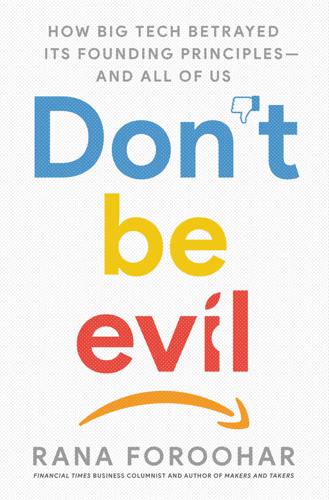
Don't Be Evil: How Big Tech Betrayed Its Founding Principles--And All of US
by
Rana Foroohar
Published 5 Nov 2019
Big Pharma.” 18. Jonathan Taplin’s Move Fast and Break Things outlines this issue in depth. 19. Levy, In the Plex, chapter 7, section 3, covers the book-scanning project. 20. Ibid., 273. 21. Ibid., 350. 22. Ibid., 359. 23. Ibid., 362–63. 24. Taplin, Move Fast and Break Things, 260. 25. Per interview with Google executive on background in 2017. 26. Author interview with Taplin in 2017. 27. Author interview with Taplin in 2017; see also Move Fast and Break Things. 28. Levy, In the Plex, 251. 29. Taplin, Move Fast and Break Things, 127–28. 30. Wikipedia, s.v.
…
The implications are myriad, and I will track many of them, often via the Google narrative, which has been the marker for larger industry-wide shifts. Google has, after all, been the pioneer of big data, targeted advertising, and the type of surveillance capitalism that this book will cover. It was following the “move fast and break things” ethos long before Facebook.2 I’ve been following the company for over twenty years, and I first encountered the celebrated Google founders, Page and Brin, not in the Valley, but in Davos, the Swiss gathering spot of the global power elite, where they’d taken over a small chalet to meet with a select group of media.3 The year was 2007.
…
“Larry and Sergey believe that if you try to get everyone on board it will prevent things from happening,” said Terry Winograd, a professor of computer science at Stanford and Page’s former thesis adviser, in an article in 2008. “If you just do it, others will come around to realize they were attached to old ways that were not as good….No one has proven them wrong—yet.”16 This became the Google way. As Jonathan Taplin wrote in his book, Move Fast and Break Things, when Google released the first version of Gmail, Page refused to allow engineers to include a delete button “because Google’s ability to profile you by preserving your correspondence was more important than your ability to eliminate embarrassing parts of your past.” Likewise, customers were never asked if Google Street View cameras could take pictures of their front yards and match them to addresses in order to sell more ads.
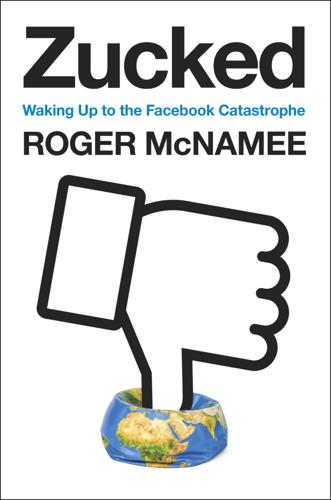
Zucked: Waking Up to the Facebook Catastrophe
by
Roger McNamee
Published 1 Jan 2019
Users either did not know or did not care about the loss of privacy, enabling Facebook to join the list of most valuable companies on earth. Facebook’s motto, “Move fast and break things,” reflects the company’s strengths and weaknesses. Facebook constantly experiments, tinkers, and pushes envelopes in the pursuit of growth. Many experiments fail or work imperfectly, necessitating an apology and another experiment aimed at doing better. In my experience, there have been few, if any, companies that have executed a growth plan—moving fast, if you will—as effectively as Facebook. When moving fast leads to breaking things, and to mistakes, Facebook has been brilliant in its ability to recover from them.
…
—Albert Einstein Ultimately, what the tech industry really cares about is ushering in the future, but it conflates technological progress with societal progress. —Jenna Wortham CONTENTS Also by Roger McNamee Title Page Copyright Dedication Epigraph Prologue 1 The Strangest Meeting Ever 2 Silicon Valley Before Facebook 3 Move Fast and Break Things 4 The Children of Fogg 5 Mr. Harris and Mr. McNamee Go to Washington 6 Congress Gets Serious 7 The Facebook Way 8 Facebook Digs in Its Heels 9 The Pollster 10 Cambridge Analytica Changes Everything 11 Days of Reckoning 12 Success? 13 The Future of Society 14 The Future of You Epilogue Acknowledgments Appendix 1: Memo to Zuck and Sheryl: Draft Op-Ed for Recode Appendix 2: George Soros’s Davos Remarks: “The Current Moment in History” Bibliographic Essay Index About the Author Prologue Technology is a useful servant but a dangerous master.
…
If the product found a market, the founders had alternatives. They could raise venture capital on favorable terms, hire a bigger team, improve the product, and spend to acquire more users. Or they could do what the founders of Instagram and WhatsApp would eventually do: sell out for billions with only a handful of employees. Facebook’s motto—“Move fast and break things”—embodies the lean startup philosophy. Forget strategy. Pull together a few friends, make a product you like, and try it in the market. Make mistakes, fix them, repeat. For venture investors, the lean startup model was a godsend. It allowed venture capitalists to identify losers and kill them before they burned through much cash.
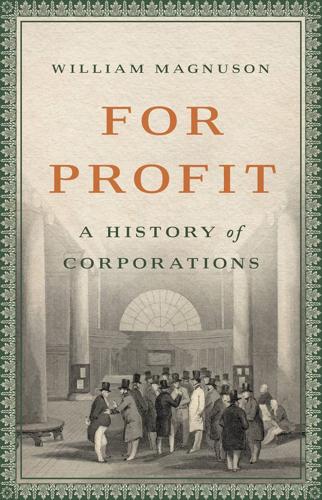
For Profit: A History of Corporations
by
William Magnuson
Published 8 Nov 2022
The focus on progress, at light speed, also birthed a slogan that has since become a Silicon Valley mantra. In an interview with Business Insider in October 2009, Zuckerberg said that his primary instruction to developers was to “move fast and break things.” “Unless you are breaking stuff,” Zuckerberg told the interviewer, “you are not moving fast enough.” “Move fast and break things” was soon printed on posters pasted around the office as a daily reminder that velocity mattered.20 The emphasis on speed led to a dizzying array of changes to the site. Some were superficial: in 2005, the company replaced the Peter Wolf image with a clean blue ribbon copied from the website of private equity firm the Carlyle Group.
…
And in 2016, the platform became a target for election interference, as Russian military intelligence agencies and extremist groups spread false, hateful, and polarizing information to voters. The move-fast-and-break-things culture of the start-up corporation may have made sense when Facebook was operating off a laptop in a college dorm room, but it had dangerous ramifications when Facebook matured into a global network serving billions of people. Unlike with the previous ages of the corporation, we still live in this one. We have yet to sort out its repercussions. Society is still grappling with how to respond. This brings us to the eighth rule of the invisible hand: don’t move too fast or break too many things. Corporations must not use the shield of limited liability as an excuse for reckless behavior.
…
It has tended to make business leaders less reflective about society’s great problems and more intensely focused on extracting profit. It has contributed to the growth of financial capitalism, a species of corporate activity devoted to financial engineering rather than material production. It has also promoted the “move fast and break things” ethos of Silicon Valley, which values rapid technological growth over responsible behavior. And while corporate leaders occasionally pay lip service to their role as guardians of the public interest, with a few notable exceptions they appear less and less convinced of it. We are now witnessing a moment when corporations and the titans who run them wield an unimaginable amount of wealth and power—more than would have been conceivable at the time of the East India Company.
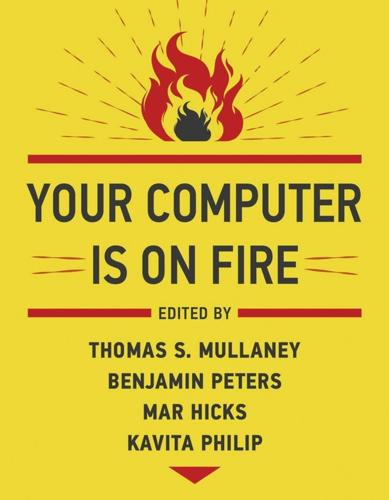
Your Computer Is on Fire
by
Thomas S. Mullaney
,
Benjamin Peters
,
Mar Hicks
and
Kavita Philip
Published 9 Mar 2021
This kind of knowledge can upend many assumptions in tech design and planning. 4 Move Fast and Break Things In order to upend design assumptions, can’t we just move fast and break things? This way we’ll learn from our mistakes, and eventually we’ll correct any starting biases. Moving fast and breaking things works if we have enough privilege and safety not to be affected by the loss of the things we break, and enough certainty in our goals that we do not have to stop and worry whether we are going in the right direction. We move fast when we think we know where we are going. Things break easily when they are brittle. “Move fast and break things” is not a good slogan for the serious firefighter, the rigorous traveler among disciplines.
…
Our critiques are made in bad faith, moreover, as we are so often spotted using in our classrooms, our essays, and our books the very systems, platforms, and devices that we lament. The profound self-confidence and self-assurance of these same technologists are on daily display as well. Their “bias toward action” is considered refreshing; their predilection to “move fast and break things” is celebrated. Even when systems fail in spectacular fashion, a seemingly endless supply of assuring words are at the ready to defuse or deflect. Technology firms selling bleeding-edge surveillance systems to authoritarian regimes at home and abroad? Bad actors. Latest-generation web cameras incapable of recognizing the faces of African-American users (yet functioning flawlessly with Caucasian users)?
…
This is the process we have been witnessing since the first internet bubble of the late 1990s: a programmer or set of programmers hacking together an imperfect prototype, then unleashing it on the world with the help of venture capitalists whose only objective is maximum profit, and seeing where the chips fall. “Move fast and break things” ran the motto of these self-styled disruptors, because when you are rich enough, and privileged enough, it might seem like all the breaking you’re doing doesn’t have negative consequences. This is especially the case when the people you’re hurting don’t have a seat at the table and aren’t the sort of people you would tend to include on your programming team, in your boardrooms, or in your shareholders meetings.
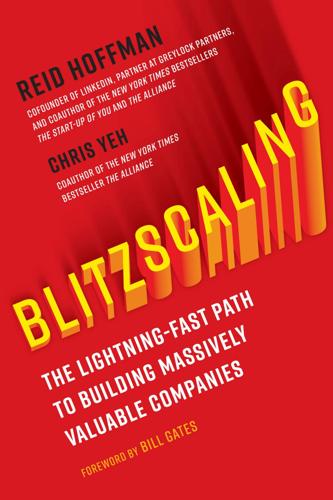
Blitzscaling: The Lightning-Fast Path to Building Massively Valuable Companies
by
Reid Hoffman
and
Chris Yeh
Published 14 Apr 2018
On the technology side, one of the philosophies that helped Facebook become successful was its famous motto “Move fast and break things.” This emphasis on speed, which came directly from Mark Zuckerberg, allowed Facebook to achieve rapid product development and continuous product improvement. Even today, every new software engineer who joins Facebook is asked to make a revision to the Facebook codebase (potentially affecting millions or even billions of users) on his or her first day of work. However, as Facebook’s user base and engineering team grew to a massive size, Mark had to change the philosophy to “Move fast and break things with stable infrastructure.” While this new motto might seem self-contradictory, Mark explains that it focuses on a higher-level goal.
…
It’s extremely difficult for later entrants to compete directly with a blitzscaling company that has first-scaler advantage. Unless these players find a different game in which they can capture this advantage, they’ll simply become irrelevant. 3. DESPITE ITS INCREDIBLE ADVANTAGES AND POTENTIAL PAYOFFS, BLITZSCALING ALSO COMES WITH MASSIVE RISKS. Until recently, “Move fast and break things” was Facebook’s famous motto. Yet rapid growth can cause nearly as many problems as it solves. As Mark Zuckerberg told me in an interview for my Masters of Scale podcast, “We got to a point where it was taking us more time to go back and fix the bugs and issues that we’re creating than the speed that we were gaining by going faster.”
…
Eventually Captain Jack Sparrow has to grow up and start acting more like the sober and responsible Captain Picard. This transition can be challenging. Founders and early employees often resist changing their approach; after all, didn’t it bring about their initial success? Plus, entrepreneurs tend to have a rebellious streak; natural-born rule followers don’t always fare so well in a chaotic, “move fast and break things” start-up environment. But failing to make the transition from pirate to navy can lead to disaster. A Note on Ethical Piracy Before we go further, we need to spend at least a little time on dispelling some of the connotations of the word “pirate.” In print and on-screen, pirates are portrayed in one of two ways: (1) lovable rogues and (2) sociopathic criminals.
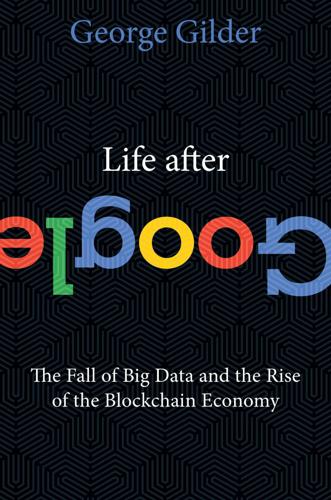
Life After Google: The Fall of Big Data and the Rise of the Blockchain Economy
by
George Gilder
Published 16 Jul 2018
In a world of digital devices, people are learning to cancel, mute, or avoid advertisements that they do not want to see. As soon as the next generation of innovators creates a new payment and security model, this trend will accelerate. While I was researching the economic effects of Google’s preoccupation with “free” goods, Jonathan Taplin revealed in Move Fast and Break Things that Google owns five of the top six multibillion-user Web platforms and thirteen of the top fourteen commercial functions of the Net, and yet it collects less than 5 percent of its revenue from final customers.5 Beyond the suppliers of ads that no one wishes to see, Google’s main role is intermediator.
…
BAT intends to empower the very users and publishers that are receiving less than they should.” Regardless of what Google does, says Eich, the current system is unsustainable. It frustrates users with slow loads, wastes bandwidth on unwanted ads, and wipes out publishers’ profits—and it’s not even secure. As Jonathan Taplan documents relentlessly in Move Fast and Break Things, the Google regime of aggregate and advertise is drastically reducing the income of musicians, journalists, and other producers of the content that Google seeks to monetize with ads and search. The torrent of advertising has provoked some 87.5 million Americans to resort to ad-blockers, which may ultimately bring down the whole kit and caboodle, including Google.
…
Jeremy Rifkin, The Zero Marginal Cost Society: The Internet of Things, the Collaborative Commons, and the Eclipse of Capitalism (New York: St. Martin’s Press, 2016). For the speech at Google, see https://www.youtube.com/watch?v=5-iDUcETjvo 4. Edwards, xi, Introduction. 5. Jonathan Taplin, Move Fast and Break Things: How Facebook, Google and Amazon Cornered Culture and Undermined Democracy (New York: Little Brown and Company, 2017), 126 and passim. 6. Daniel Colin James, “This Is How Google Collapsed”, Hacker Noon: Where hackers start their afternoons, April 27, 2017. https://hackernoon.com/how-google-collapsed-b6ffa82198ee 7.
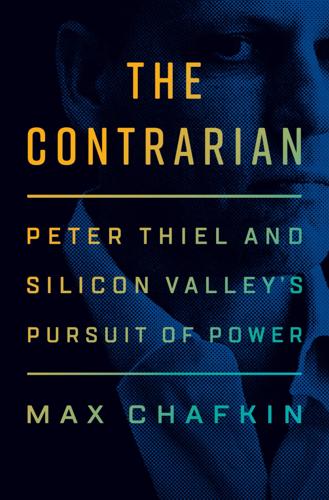
The Contrarian: Peter Thiel and Silicon Valley's Pursuit of Power
by
Max Chafkin
Published 14 Sep 2021
To start a company was no longer to help people reach their true potential; it was to flaunt norms, then change them, and, in changing them, set yourself up to get rich off the new order. Facebook would develop a monopoly on social media and use that monopoly to crush competitors, charging progressively higher fees to advertisers—while telling the world that this predatory behavior was a social good. Tech would “move fast and break things,” as the Facebook motto put it, and entrepreneurs would be told it was better to ask for forgiveness than permission. The industry would be defined by these clichés, convincing itself that “disruption”—that favored TED talker buzzword—wasn’t just an unfortunate consequence of innovation but an end in itself.
…
When cities complained that Uber was breaking the law, Kalanick replaced his Twitter avatar with a picture of an Ayn Rand cover, and, as I reported in Businessweek, employees at the company’s driverless car division distributed stickers that proudly proclaimed, “Safety Third.” This was all, in a way, an extension of PayPal. “The PayPal Mafia philosophy became the founding principle for an entire generation of tech companies,” said McNamee. * * * — even so, in late 2000, Thiel wasn’t thinking about moving fast and breaking things. The tech crash was well underway, and he was thinking about surviving. If Thiel wanted to avoid the fate of companies like Pets.com, he desperately needed to reduce PayPal’s losses, which meant dealing with fraud. Criminals had begun to notice that the company’s growth hacks—one of which was its decision not to verify users’ identities when they opened an account—had made it an ideal place to launder money stolen from victims of identity theft.
…
This had not been part of the original assignment, which involved analyzing trading patterns, not collecting intelligence—and it also struck him as a potential violation of privacy, since Palantir’s software made it easy to snoop on personal matters, like who at the bank was sleeping with whom—but the client liked it. “We were trying to do anything and everything,” he recalled. Palantir won the business, its first big deal in Europe. Chmieliauskas was, in other words, moving fast and breaking things—bigger things than he could’ve imagined. Because of Palantir’s association with the CIA, clients often assumed that the company specialized in counterintelligence, and Palantir was happy to at least try to oblige them if there was business to be won. “I’d worked on much shadier deals before Cambridge Analytica,” he said.
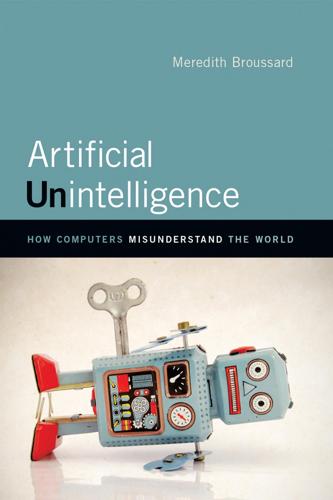
Artificial Unintelligence: How Computers Misunderstand the World
by
Meredith Broussard
Published 19 Apr 2018
If somebody appeared who had the talent, the magic touch, they would fit in.” The TMRC and Minsky’s lab were later immortalized in Stewart Brand’s The Media Lab and Steven Levy’s Hackers: The Heroes of the Computer Revolution, in addition to many other publications.6 The hacker ethic is also what inspired Mark Zuckerberg’s first Facebook motto: “Move fast and break things.” Minsky was part of Zuckerberg’s curriculum at Harvard. Minsky and a collaborator, John McCarthy, organized the very first conference on artificial intelligence, at the Dartmouth Math Department in 1956. The two went on to found the Artificial Intelligence Lab at MIT, which evolved into the MIT Media Lab, which remains a global epicenter for creative uses of technology and has generated ideas for everyone from George Lucas to Steve Jobs to Alan Alda to Penn and Teller.
…
Like Barlow, Thiel conceives of cyberspace as a stateless country: “Because there are no truly free places left in our world, I suspect that the mode for escape must involve some sort of new and hitherto untried process that leads us to some undiscovered country; and for this reason I have focused my efforts on new technologies that may create a new space for freedom.”22 Thiel was a supporter of and advisor to Donald Trump’s presidential campaign and funded a lawsuit that took down Gawker. In the book Move Fast and Break Things, Annenberg Innovation Lab director emeritus Jonathan Taplin explores the way that Thiel’s influence has spread throughout Silicon Valley via his “Paypal Mafia,” other venture capitalists and executives who have adopted his anarcho-capitalist philosophy.23 The question of why wealthy people like Thiel are taken seriously about seasteading or aliens has been addressed by cognitive scientists.
…
Alcor Life Extension Foundation, “Official Alcor Statement Concerning Marvin Minsky.” 16. Brand, “We Are As Gods.” 17. Turner, From Counterculture to Cyberculture. 18. Brand, “We Are As Gods.” 19. Hafner, The Well. 20. Borsook, Cyberselfish, 15. 21. Barlow, “A Declaration of the Independence of Cyberspace.” 22. Thiel, “The Education of a Libertarian.” 23. Taplin, Move Fast and Break Things. 24. Slovic, The Perception of Risk; Slovic and Slovic, Numbers and Nerves; Kahan et al., “Culture and Identity-Protective Cognition.” 25. Leslie et al., “Expectations of Brilliance Underlie Gender Distributions across Academic Disciplines,” 262. 26. Bench et al., “Gender Gaps in Overestimation of Math Performance,” 158.
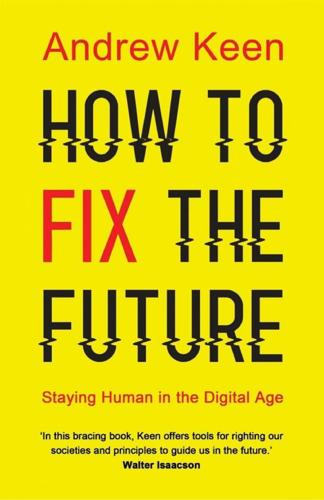
How to Fix the Future: Staying Human in the Digital Age
by
Andrew Keen
Published 1 Mar 2018
Like the Oakland-based tech activist, he too is a veteran of the Vietnam War protests and civil rights struggles of the sixties and seventies. In contrast, however, with Kapor Klein’s goal of building an alternative investment ecosystem to Silicon Valley, Taplin’s focus is more directly political. His 2017 book, Move Fast and Break Things, borrows its title from Facebook founder Mark Zuckerberg’s notorious mantra to disrupt as much as possible without taking responsibility for any of the resulting damage. Taplin reserves his sharpest critique for Silicon Valley’s libertarian ideology, with its fetishization of free market forces, which has enabled this new economy to so radically disrupt old business models and economic practices.
…
Just as the prohibition of alcohol in the United States from 1920 to 1933 triggered a massive increase in organized crime, so the DMCA has led, Naughton says, to an “astonishing rise in hate speech, harassment, bullying, revenge porn, fake news and other abuses of digital technology.”5 Yes, move fast and break things, the DMCA is saying. Yes, profit from all the content posted on your network. But no, don’t worry about the consequences of this content, because you aren’t accountable for any of it under the law. Principal among those “other abuses” Naughton describes are the posting and exchange of illegal, mostly pirated content.
…
According to Gartner, 86.2% of global smartphone purchases in the second quarter of 2016 were for phones operating on the Android platform. See: Natasha Lomas, “Android’s Smartphone Marketshare Hit 86.2% in Q2,” Techcrunch, August 18, 2016. 20. Jerry Brotton, The History of the World in 12 Maps (Viking Penguin, 2012), 431–32. 21. Jonathan Taplin, Move Fast and Break Things: How Facebook, Google and Amazon Cornered Culture and Undermined Democracy (Little Brown, 2017), 4. 22. John Gapper, “YouTube Is Big Enough to Take Responsibility for Piracy,” Financial Times, May 19, 2016. 23. Emily Bell, “Facebook Is Eating the World,” Columbia Journalism Review, March 7, 2016. 24.
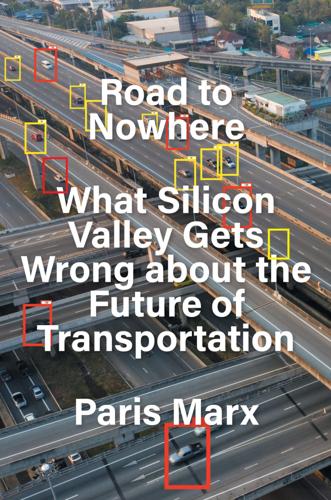
Road to Nowhere: What Silicon Valley Gets Wrong About the Future of Transportation
by
Paris Marx
Published 4 Jul 2022
In 2012, Uber started letting almost anyone sign up to drive on the app with their own vehicle to provide its lower cost UberX service. As part of that effort, Uber unleashed an extensive lobbying operation to rewrite laws in jurisdictions that required longer, more intense fingerprint-based background checks for drivers. In typical “move fast and break things” fashion, it did not ensure it had the proper licensing or regulations from local governments. It just set the service loose regardless of the consequences—and there were plenty. Kalanick made many bold claims about the benefits that Uber could bring to cities, but they were as naïve or deceptive as his argument that jitneys could have fundamentally altered the direction of urban mobility.
…
Google also acquired 510 Systems and Anthony’s Robots, and structured the deal so Levandowski earned a significant payout because Page knew getting rich was one of his driving motivations. But being rewarded for his actions only intensified Levandowski’s worst qualities. In the early 2010s, as Brin was making the rounds talking up the wonderful future that autonomous vehicles would enable, Levandowski was on the development side and the approach he took embodied the “move fast and break things” mentality that considered safety a secondary goal to hitting the market before competitors. The software that the vehicles were using was limited to particular routes that the team believed it would be safe to operate on, but Google executive Isaac Taylor discovered that while he was on parental leave in 2011, Levandowski had disabled the safety protocol so he could use the vehicle wherever he wanted.
…
While the NTSB placed secondary blame on Uber for its lack of safety and driver monitoring, as well as on Herzberg herself for being impaired, and on the Arizona Department of Transportation for its ineffective oversight of autonomous vehicles, it is clear that the company wanted to avoid a precedent-setting judgment that could have left the developers of autonomous vehicles with liability when they get into accidents. The agency’s decision was not a surprise, but placing blame on an individual misses the bigger picture, both in a technological sense and an urban planning sense. The actions of Uber executives and engineers are in line with the “move fast and break things” culture that is promoted in Silicon Valley, one which is motivated first and foremost by beating competitors to market by launching a minimum viable product and capturing market share as quickly as possible in the pursuit of monopoly. Not only did Uber’s hardware and software decisions not properly consider the safety of pedestrians, but the area where the crash took place was hostile to pedestrians—as are so many areas in North American cities.

No Filter: The Inside Story of Instagram
by
Sarah Frier
Published 13 Apr 2020
The deal, which had sailed through approvals in six months without much conflict or delay, would weaken Twitter’s promise while affording Instagram all the competitive advantages of the biggest network in the world. And it would eventually ensure that the main alternative to Facebook was a product also owned by Facebook. MOVE FAST AND BREAK THINGS “I hate when people discount us. I hate when people tell us we’re not going to be something, that because we’ve sold, it’s all over. Looking from the outside, I get their perspective. I just wanted to prove them wrong.” —KEVIN SYSTROM, ON THE TIM FERRISS SHOW IN 2019 The Monday after the deal was finalized, Instagram employees hopped on their Wi-Fi-equipped Facebook buses in a forced embrace of their new one-hour commute.
…
But for now, with the stock down in an era before the public reckoning, Facebook was singularly focused on demonstrating that it could create a viable long-term business, even on mobile phones, proving all the haters wrong. “This Journey Is Only 1% Finished,” the posters around campus declared. “The Riskiest Thing Is to Take No Risks.” “Done Is Better than Perfect.” “Move Fast and Break Things.” Employees rarely challenged these assumptions. They provided a comforting clarity about what success looked like, all outlined in that helpful little book from employee orientation. “It would be easy to get complacent and think we’ve won every time we bring ourselves to a new level, but all that does is just decrease the chance we’ll get to the next level after that,” Zuckerberg wrote in an email in 2009, which is memorialized in the handbook.
…
Too many notifications would violate that principle. Then there was “simplicity matters,” meaning that before any new products could roll out, engineers had to think about whether they were solving a specific user problem, and whether making a change was even necessary, or might overcomplicate the app. It was the opposite of Facebook’s “move fast and break things,” where building for growth was valued over usefulness or trust. There was also “inspire creativity,” which meant Instagram was going to try to frame the app as an artistic outlet, training its own users and highlighting the best of them through an editorial strategy, focusing on content that was genuine and meaningful.
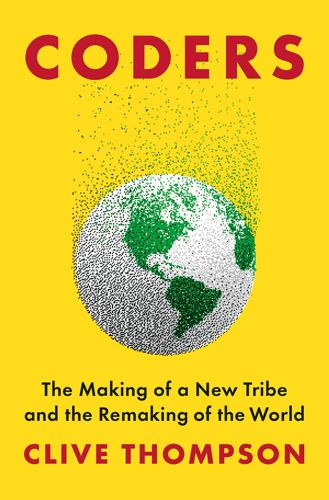
Coders: The Making of a New Tribe and the Remaking of the World
by
Clive Thompson
Published 26 Mar 2019
So they’d push the code out at midnight and then hold their breath to see whether it crashed Facebook or not. If everything worked, they’d leave; if it caused a catastrophe, they’d frantically try to fix it, often toiling until the early morning, or sometimes just “reverting” back to the old code when they simply couldn’t get the new feature working. As Zuckerberg’s oft-quoted motto went, “Move fast and break things.” Sanghvi loved it. “It was different, it was vibrant, it was alive,” she says. “People there were like humming along, everyone was really busy, everyone was really into what they were doing . . . the energy was just so tangible.” And as it turns out, Facebook was desperately seeking more coders.
…
“Our job at Facebook is to help people make the greatest positive impact while mitigating areas where technology and social media can contribute to divisiveness and isolation,” he wrote. That’s a curiously cautious mission statement: While mitigating areas where technology and social media can contribute to divisiveness. It’s certainly a more measured rallying cry than “Move fast and break things.” You could read it, perhaps, as a quiet admission that some things ought to be left unbroken. “Software,” as the venture capitalist Marc Andreessen has proclaimed, “is eating the world.” It’s true. You use software nearly every instant you’re awake. There’s the obvious stuff, like your phone, your laptop, email and social networking and video games and Netflix, the way you order taxis and food.
…
The expressway quickly attracted so much loud, pollution-belching trucking traffic that it destroyed the property value of any houses nearby, making hundreds of mostly African American families abruptly less wealthy, and living in a much less pleasant neighborhood. (Moses, it seems, also liked to move fast and break things.) If we want to understand how today’s world works, we ought to understand something about coders. Who exactly are the people who are building today’s world? What makes them tick? What type of personality is drawn to writing software? How does their work affect us? And perhaps most interestingly, what does it do to them?
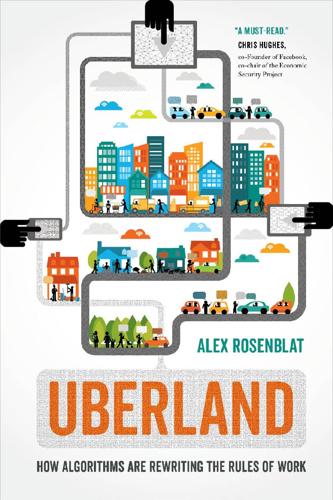
Uberland: How Algorithms Are Rewriting the Rules of Work
by
Alex Rosenblat
Published 22 Oct 2018
As I noted in chapter 2, drivers assess this job in comparison to their available alternatives. Evaluating Uber’s impact on society, however, is always complicated by the mixed benefits it delivers to drivers, passengers, and other stakeholders, and by the divisions it sows in the process. GRATITUDE LOGIC: MOVE FAST, BREAK THINGS, CITE TECHNOLOGY CONTRIBUTIONS LATER In its initial rise, from 2009 to 2014 or so, Uber came to represent the sharing economy and was widely celebrated in forums on the future of work, in the media, and across academic and policy circles. Sharing-economy companies argued that they should not be put in the same categories as their industry competitors.
…
When law enforcement goes easy on tech entrepreneurs breaking the law but cracks down on racial minorities peacefully living quiet lives, the cultural-privilege dynamics that Uber benefits from become plainly obvious. What happens to Uber tells us a lot about who may break the law under the guise of innovative disruption with less severe consequences. For some critics, the disruption ethos of technology—often summarized as “move fast, break things” and “don’t ask permission; ask forgiveness later”—eerily echoes rape culture, where entitlement and privilege supersede consent.20 Many advocates for labor and civil society have begun to push back against Uber and companies like it. Beneath the heady haze of debates over whether governments should be innovative and run society like tech start-ups, worker advocates and class-action lawyers have mounted cases accusing Uber—as well as other sharing economy companies, like Handy,21 HomeJoy,22 Lyft,23 and others—of violating labor law meant to protect their workers.
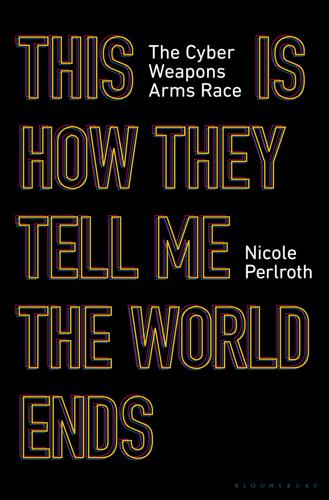
This Is How They Tell Me the World Ends: The Cyberweapons Arms Race
by
Nicole Perlroth
Published 9 Feb 2021
The most comprehensive reporting on Microsoft’s court saga was written by my now-deceased mentor Joel Brinkley. I pulled the Bill Gates quote—“How much do we have to pay you to screw Netscape?”—from Brinkley’s 1998 article, “As Microsoft Trial Gets Started, Gates’s Credibility is Questioned.” Mark Zuckerberg relayed his early “Move Fast and Break Things” mantra to Henry Blodget in an October 2009 interview. The full quote was: “Move fast and break things. Unless you are breaking stuff, you are not moving fast enough.” I relied on Jane Perrone’s Guardian article “Code Red Worm” for the reference to the computer worm. Scientific American provided a more comprehensive account in its October 28, 2002 article: “Code Red: Worm Assault on the Web.”
…
He was firing off emails to AOL executives, demanding to know: “How much do we have to pay you to screw Netscape?” In the rush to best Netscape, speed, not security, was the name of the game. More than a decade later, Mark Zuckerberg would coin a name for this approach at Facebook with his motto “Move fast and break things.” Just as soon as these products hit the market, hackers began unspooling them with glee. They wanted to see how far the bugs in their new internet toys could take them—which, as it turned out, was quite far. Hackers found they could tunnel through Microsoft’s systems to customers all over the web.
…
Part of the problem is the economy still rewards the first to market. Whoever gets their widget to market with the most features before the competition wins. But speed has always been the natural enemy of good security design. Our current model penalizes products with the most secure, fully vetted software. And yet, the “move fast and break things” mantra Mark Zuckerberg pushed in Facebook’s earliest days has failed us time and time again. The annual cost from cyber losses now eclipses those from terrorism. In 2018, terrorist attacks cost the global economy $33 billion, a decrease of thirty-eight percent from the previous year. That same year, a study by RAND Corporation from more than 550 sources—the most comprehensive data analysis of its kind—concluded global losses from cyberattacks were likely on the order of hundreds of billions of dollars.
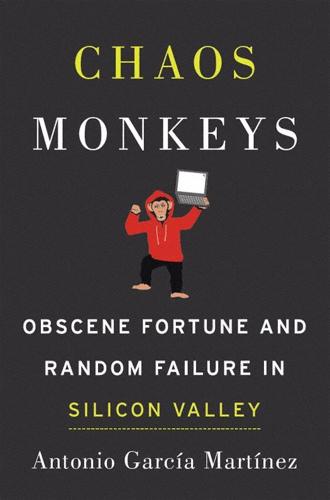
Chaos Monkeys: Obscene Fortune and Random Failure in Silicon Valley
by
Antonio Garcia Martinez
Published 27 Jun 2016
Contents Author’s Note Dedication Prologue: The Garden of Forking Paths PART ONE: Disturbing the Peace The Undertakers of Capitalism The Human Attention Exchange Knowing How to Swim Abandoning the Shipwreck PART TWO: Pseudorandomness Let Me See Your War Face Like Marriage, but without the Fucking Speed Is a Feature D-Day A Conclave of Angels The Hill of Sand Turning and Turning in the Widening Gyre ¡No Pasarán! The Dog Shit Sandwich Victory Launching! Dates @Twitter Acquisition Chicken Getting Liked Getting Poked The Various Futures of the Forking Paths Retweets Are Not Endorsements The Dotted Line Endgame PART THREE: Move Fast and Break Things Boot Camp Product Masseur Google Delenda Est Leaping Headlong One Shot, One Kill Twice Bitten, Thrice Shy Ads Five-Oh The Narcissism of Privacy Are We Savages or What? O Death The Barbaric Yawn Going Public When the Flying Saucers Fail to Appear Monetizing the Tumor The Great Awakening Barbarians at the Gates IPA > IPO Initial Public Offering: A Reevaluation Flash Boys Full Frontal Facebook Microsoft Shrugged Ad Majorem Facebook Gloriam Adiós, Facebook Pandemonium Lost Epilogue: Man Plans and God Laughs Acknowledgments Index About the Author Credits Copyright About the Publisher Prologue: The Garden of Forking Paths Had I had been present at the creation, I would have given some useful hints for the better ordering of the universe.
…
Had I executed the optimal strategy, my return on AdGrok would likely have been hundreds of thousands or perhaps millions of dollars more than it eventually was. Plus, the additional cash or Twitter stock would have served as a hedge to my all-in position in Facebook. Morality, such as it exists in the tech whorehouse, is an expensive hobby indeed. Part Three Move Fast and Break Things Facebook was not originally created to be a company. It was built to accomplish a social mission—to make the world more open and connected. —Mark Zuckerberg, Facebook Inc. IPO documents (2012) Boot Camp Once having traversed the threshold, the hero moves in a dream landscape of curiously fluid, ambiguous forms, where he must survive a succession of trials.
…
When Facebook arrived, instead of replacing the original sign, management had simply flipped it around, and intentionally neglected to paint or cover the back. It read SUN MICROSYSTEMS, along with the quadrangular logo made of S figures that used to appear at the top of every Web page you loaded. This too shall pass. What befell Sun could befall us too, so MOVE FAST AND BREAK THINGS! Zuck was saying by implication. Perhaps even the mighty Facebook Like button would one day be looked upon like the inscription on the fragment of Ozymandias’s statue in Shelley’s rumination on the transience of human ambition: an arrogant spasm of striving, forgotten and abandoned. Every morning I bicycled the six miles from my sailboat docked in Redwood City to the new campus, which sat on an artificial spit of land poking into the tidal marshes that formed the San Francisco Bay’s boggy southern tip.
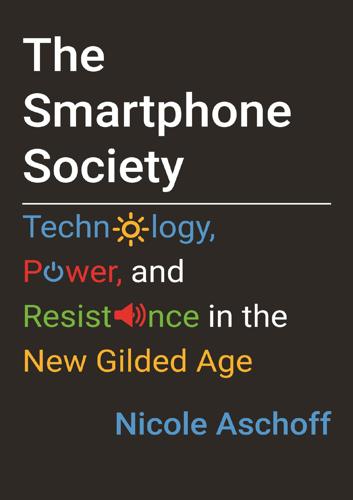
The Smartphone Society
by
Nicole Aschoff
Hassabis is one of a growing number of scientists who say the artificial general intelligence we were promised so long ago is finally within reach. This core belief in the power of technology and data is part of a broader worldview encapsulated in popular Silicon Valley sayings such as “Move fast and break things” and the abbreviated “Ask for forgiveness, not permission.” Google never asked permission to photograph the front of everyone’s home, link it to a physical address, and put it on the web. Nor did the company ask permission for its Google Earth cars, kitted up with special equipment, to vacuum up unencrypted Wi-Fi traffic (usernames, passwords, emails, photos, videos) as they drove around taking photographs.
…
Sainato, “‘We Are Not Robots.’” 49. Bruder, Nomadland, 62. 50. Lee et al., “Working with Machines.” 51. O’Connor, “When Your Boss Is an Algorithm.” 52. JC, “Ridester’s 2018 Independent Driver Earnings Survey,” Ridester, March 29, 2019, www.ridester.com/2018-survey. 53. For a discussion, see Taplin, Move Fast and Break Things. 54. Friedman, The World Is Flat. 55. Waddell, “Why Bosses Can Track Their Employees 24/7.” 56. Levin, “Sexual Harassment and the Sharing Economy.” 57. See Laufer, “Social Accountability and Corporate Greenwashing.” 58. Amazon.com, “2017 Amazon Holiday Commercial,” video, https://www.youtube.com/watch?
…
Sundararajan, Arun. The Sharing Economy: The End of Employment and the Rise of Crowd-Based Capitalism. Cambridge, MA: MIT Press, 2016. Sunstein, Cass R. #Republic: Divided Democracy in the Age of Social Media. Princeton, NJ: Princeton University Press, 2017, Kindle edition. Taplin, Jonathan. Move Fast and Break Things: How Facebook, Google, and Amazon Cornered Culture and Undermined Democracy. Boston: Little, Brown, 2017. ———. “Google’s Disturbing Influence over Think Tanks.” New York Times, August 30, 2017. Taylor, Astra. The People’s Platform: Taking Back Power and Culture in the Digital Age. New York: Picador, 2014.
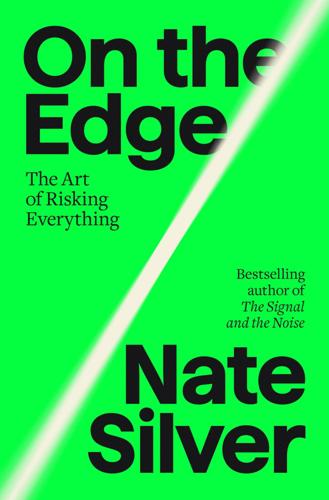
On the Edge: The Art of Risking Everything
by
Nate Silver
Published 12 Aug 2024
Instead, I agree with Ethereum founder Vitalik Buterin, who wrote in response to Andreessen that “AI is fundamentally different from other tech, and it is worth being uniquely careful.” AI is not the first technology that has the potential to destroy civilization, but unlike nuclear weapons, which were designed by governments, AI is being developed by Silicon Valley with its paradigm of “move fast and break things.” This is an important-enough question that there’s a whole chapter coming on it later—what I’m cutely calling chapter ∞ toward the end of the book. You can think of the next several chapters as setting us into orbit around this question of existential risk. * * * Let’s decelerate for now, though.
…
-Goliath narrative of the small disruptor conquering the giant incumbent is embedded deep in Silicon Valley’s belief system, an heirloom passed down from one generation of founders to the next. Or at least, that’s how Silicon Valley sees it. For Washington, Mark Zuckerberg’s attitude of “move fast and break things” is in direct contrast with its desire for incremental change. Many startups—like Uber, where Gurley was an early stage investor—begin life in a legal gray area and gamble on fading the regulatory risk. Often it proves to be a good bet, either because their products became popular enough that regulators are forced to accommodate them, or because whatever legal settlements they wind up paying to Lina Khan are a drop in the bucket compared to the scale of their profits.
…
The third claim has to do with how quickly AI could improve—what in industry parlance is called its “takeoff speed.” Yudkowsky worries that the takeoff will be faster than what humans will need to assess the situation and land the plane. We might eventually get the AIs to behave if given enough chances, he thinks, but early prototypes often fail, and Silicon Valley has an attitude of “move fast and break things.” If the thing that breaks is civilization, we won’t get a second try.[*13] Does it therefore follow that p(doom) equals 99.9 percent or some other extremely high number? To me it doesn’t, and that’s what’s frustrating when speaking with Yudkowsky. To him, the conclusion is almost axiomatic: if you haven’t seen the shape of things to come, that’s because you haven’t spent enough time thinking about them, are in denial, or frankly aren’t smart enough.
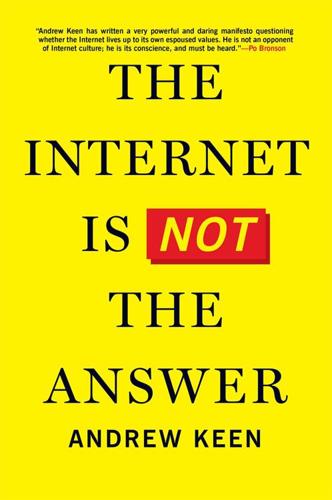
The Internet Is Not the Answer
by
Andrew Keen
Published 5 Jan 2015
The guy, who might have been outfitted to hang out at the Battery, was wielding a sledgehammer with which he was energetically smashing some plastic objects into smithereens. REALLY CREATIVE DESTRUCTION, the magazine’s headline screamed in letters as black as the dude’s goatee and glasses.8 One doesn’t need to be a semiotician to grasp the significance of seeing this picture—with its “move fast and break things” message—in Rochester, of all places. Much of Rochester’s industrial economy had itself been smashed into smithereens over the last twenty-five years by a Schumpeterian hurricane of creative destruction. The significance of that magazine cover was, therefore, hard to miss: the sledgehammer mirrored the destructive might of the digital revolution; while the plastic objects being destroyed represented the broken city itself.
…
As critics like Tim Wu have argued, the answer lies in our new digital elite becoming accountable for the most traumatic socioeconomic disruption since the industrial revolution. Rather than thinking differently, the ethic of this new elite should be to think traditionally. Rather than seceding to Burning Man or Mars, this plutocracy must be beamed back down to earth. “Move fast and break things” was the old hacker ethic; “you break it, you own it” should be the new one. Rather than an Internet Bill of Rights, what we really need is an informal Bill of Responsibilities that establishes a new social contract for every member of networked society. Silicon Valley has fetishized the ideals of collaboration and conversation.
…
The young entrepreneur featured on the cover was Ben Milne, the founder and CEO of a digital payments startup called Dwolla, who, the magazine claimed, was seeking to “demolish” the finance industry. Milne seems to think of himself as a big-time demolisher. On his own Instagram page, for example, he posted an image saying: “MOVE FAST AND BREAK THINGS.” instagram.com/p/epyqnEHQwg. 9 David Wills, Hollywood in Kodachrome (New York: HarperCollins, 2013), p. xiii. 10 Ibid. Kodachrome film was also used to make eighty Oscar winners of the Best Picture award. See Rupert Neate, “Kodak Falls in the Creative Destruction of the Digital Age,” Guardian, January 19, 2013, theguardian.com/business/2012/jan/19/kodak-bankruptcy-protection. 11 Ellen Gamerman, “I Snap Therefore I Am,” Wall Street Journal, December 13, 2013. 12 Ibid. 13 John Naughton, “Could Kodak’s Demise Have Been Averted?
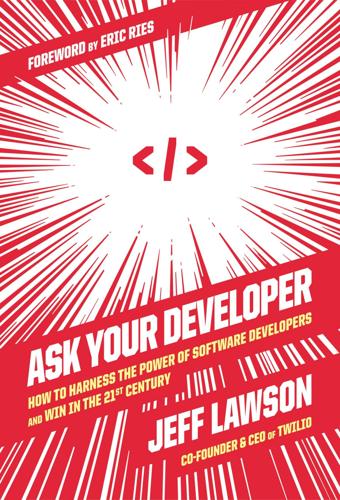
Ask Your Developer: How to Harness the Power of Software Developers and Win in the 21st Century
by
Jeff Lawson
Published 12 Jan 2021
Understanding the value of Agile, as well as how your teams have implemented it, will help make sense of the sometimes counterintuitive, and often frustrating answers you get when you seek certainty from your product teams. Chapter 11 Invest in Infrastructure Move fast and break things. —Mark Zuckerberg, 2009 Move fast with stable infra. —Mark Zuckerberg, 2014 Mark Zuckerberg’s famous tagline “Move fast and break things” was brilliant, but ultimately insincere. So it was unsurprising that he ended up changing it in 2014 to the far less memorable “Move fast with stable infra[structure].” The tension between those two statements is what this chapter is about.
…
Executives say they want innovation, but then unwittingly punish people for its natural consequences. And because human beings are good at pain avoidance, the desire to avoid punishment pretty quickly overrides the innovation directive. The result is an organization that moves slowly, is risk averse, and lacks accountability. That’s the brilliance of Zuckerberg’s original motto: “Move fast and break things.” He acknowledges that moving fast incurs a cost—things won’t be perfect—and he’s okay with that. If you break something, I have your back as long as you were pushing the envelope to invent something for our customers. By doing this, he ensures that the innovation directive will prevail.
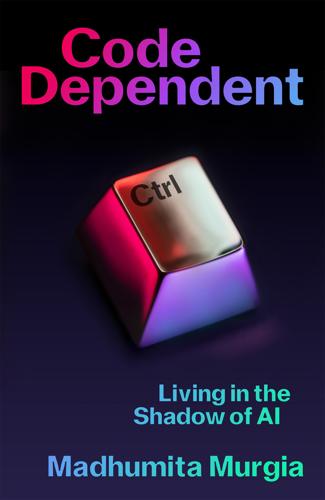
Code Dependent: Living in the Shadow of AI
by
Madhumita Murgia
Published 20 Mar 2024
In other words, leading thinkers from theology, religion and the humanities may not hold sway over the tech industry, but they can still exert pressure on lawmakers to require more responsible innovation. ‘Responsible innovation’ has hardly been the mantra of Silicon Valley thus far. Until recently, tech entrepreneurs lived by a motto thought up by Mark Zuckerberg, the founder and chief executive of Facebook: ‘move fast and break things’. It captured the industry’s emphasis on speedy innovation and experimentation, and its willingness to make mistakes and cause social disruption in the process. Only over the last few years has the high price of these disruptive forces become apparent – from social media’s role in electoral manipulation, conspiracy theories and teenage mental ill-health, to app-based ride-and-delivery platforms’ impact on workers’ rights, and our collective loss of privacy online.
…
Index Abeleira, Carlos (Charlie) ref1, ref2, ref3, ref4, ref5, ref6, ref7, ref8 Abeleira, Pablo ref1, ref2, ref3, ref4, ref5, ref6 abortion ref1, ref2, ref3, ref4, ref5, ref6, ref7 Abrahamic religions ref1, ref2, ref3 Accenture ref1, ref2 Accredited Social Health Activists (ASHAs) ref1, ref2, ref3 adivasis (indigenous people) ref1 Afghanistan ref1, ref2, ref3 African Americans ref1 over-policing of ref1 pain and ref1 agency AI systems impinging on ref1, ref2 Bandura’s description of ref1, ref2 checklist of guiding questions to help reclaim ref1 China, fight to reclaim within ref1, ref2, ref3 collective agency, AI systems lead to strengthening of ref1 data workers and ref1, ref2, ref3 facial recognition and ref1, ref2, ref3 gig workers and ref1, ref2, ref3 growing wellspring of people fighting to recoup collective ref1, ref2, ref3, ref4 healthcare and ref1, ref2 illusion of ref1 pregnant girls and ref1 proxy agents and ref1, ref2 Ajder, Henry ref1, ref2 Alexa ref1, ref2 alignment, AI ref1 algor-ethics and ref1, ref2 Bletchley Park summit (2023) ref1, ref2, ref3 guiding questions checklist ref1 Rome Call ref1 algorithms agency and see agency algor-ethics and ref1, ref2 autonomy and ref1 bias and ref1, ref2 data ‘colonialism’ and ref1 deepfakes and ref1, ref2, ref3 diagnostic ref1, ref2, ref3, ref4, ref5, ref6, ref7, ref8, ref9 discriminatory and unethical ref1 exam grades and ref1 facial recognition ref1, ref2, ref3, ref4, ref5, ref6 ‘fuck the algorithm’ ref1 GANs and ref1 gig-work and ref1, ref2 hateful content and ref1 military targeting and ref1 organ-allocation and ref1 policing and ref1, ref2, ref3, ref4, ref5 social media ref1, ref2 teenage pregnancy and ref1, ref2, ref3, ref4, ref5, ref6, ref7 training ref1, ref2, ref3 UK government use of ref1 working conditions impact quality of ref1 Xinjiang and ref1, ref2, ref3, ref4 Ali, Altab ref1 Alphabet ref1 al Qaeda ref1 Altab Ali Park ref1 Alzheimer’s disease ref1 Amare, Meareg ref1 Amazon ref1 AI diagnostics and ref1 Alexa ref1, ref2 Echo ref1 warehouse workers ref1, ref2, ref3 Web Services ref1 Amnesty International ref1, ref2, ref3, ref4 Amsterdam predictive policing systems in ref1, ref2, ref3, ref4 Uber ruling in ref1, ref2 Andrade, Norberto ref1 Aneja, Urvashi ref1, ref2, ref3, ref4, ref5, ref6 Anthropic ref1 antitrust law ref1 Apostolic Palace, Rome ref1, ref2 App Drivers and Couriers Union ref1, ref2 Appen ref1 Apple ref1, ref2 Aravind Eye Hospital ref1 Arbusta ref1, ref2 Argent ref1 Argentina app delivery platforms in ref1 data-workers in ref1 teenage pregnancy in ref1, ref2, ref3, ref4 Argo.ai ref1 Arrival (film) ref1, ref2 artificial intelligence (AI) algorithms see algorithms alignment/ethics see alignment, AI data annotation/data-labelling see data annotation/data-labelling deepfakes and see deepfakes facial recognition and see facial recognition future of and see China generative AI see generative AI gig workers and see gig workers growth of ref1 healthcare and see healthcare policing and see policing regulation of see regulation teenage pregnancy and see pregnancy, teenage term ref1 Aslam, Yaseen ref1 AstraZeneca ref1 ‘Attention Is All You Need’ (paper) ref1, ref2 automation ref1, ref2, ref3, ref4 Ayup, Abduweli ref1 Azure software ref1, ref2 Bandura, Albert ref1, ref2 Bard ref1 Bayyah, Sheikh bin ref1 B-corp ref1 Benanti, Paolo ref1, ref2, ref3 Bender, Emily ref1 Berk, Richard ref1 Berlin ref1, ref2, ref3, ref4, ref5 Bezos, Jeff ref1 Bhil tribe ref1, ref2, ref3, ref4, ref5, ref6, ref7 bias ref1, ref2, ref3, ref4, ref5 automation ref1 confirmation ref1 facial recognition technologies and ref1 health technologies and ref1 predictive policing and ref1, ref2 racial see race teenage pregnancy and ref1 Big Tech ref1, ref2, ref3, ref4, ref5, ref6, ref7, ref8 Bing ref1 bioethics ref1 Birhane, Abeba ref1 blacklists ref1, ref2 Black Lives Matter ref1 Black Mirror ref1, ref2 Blem (Ghanaian-British entrepreneur) ref1, ref2 Bletchley Park summit (2023) ref1, ref2, ref3 Bletchley Declaration ref1, ref2 Bloomberg ref1 Bokinni, Yinka ref1 Bolt ref1, ref2 Bouvard, Laurence ref1, ref2 Bravo, Ivan ref1 Bridges, Ed ref1 Bridle, James ref1, ref2, ref3 Budweiser ref1 Buenos Aires ref1, ref2, ref3, ref4, ref5 Bulgaria ref1, ref2 Bulger, Whitey ref1 ‘bullshit jobs’ ref1 Buolamwini, Joy ref1, ref2 Burgess, Rick ref1 al-Busti, Abu al-Fath ref1 Cameroon ref1, ref2 Camofleurs ref1 Can You Forgive Me app ref1 Cant, Callum ref1 Capitol riot, US (2021) ref1 cars, self-driving ref1, ref2, ref3, ref4, ref5, ref6, ref7 Cast Away (film) ref1 Castile, Philando ref1 Catholic Church ref1, ref2, ref3, ref4, ref5, ref6, ref7, ref8, ref9 Cattaneo, Paula ref1 Caucasians ref1, ref2, ref3 CCTV Amsterdam ref1 India ref1, ref2 London ref1 Uganda ref1 Xinjiang ref1 Central St Martins ref1 CGI ref1 Channel 4 ref1 ChatGPT ref1, ref2 ‘ChatGPT Is a Blurry JPEG of the Web’ ref1 deep learning and ref1 generative AI and ref1 language used to describe ref1 lawyers and ref1 origins and launch of ref1 Sama and ref1, ref2, ref3 transformer and ref1 chemical structures ref1 Chiang, Ted ref1 ‘ChatGPT Is a Blurry JPEG of the Web’ ref1 ‘Story of Your Life’ ref1 The Lifecycle of Software Objects ref1 Chien-Shiung Wu ref1 China ref1 Covid-19 and ref1, ref2, ref3 deepfakes in ref1 dissidents in ref1, ref2 facial recognition in ref1, ref2, ref3, ref4, ref5, ref6, ref7, ref8 gig workers in ref1, ref2, ref3, ref4 Integrated Joint Operations Platform (IJOP) ref1, ref2 One Card System ref1 Tiananmen Square massacre (1989) ref1, ref2, ref3, ref4 video game artists ref1 Xinjiang, Uyghur Muslims in ref1, ref2, ref3 China Electronics Technology Group Corporation (CETC) ref1 Chinchpada, India, healthcare AI in ref1 Chinchpada Christian Hospital, India ref1 Chinese Communist Party ref1, ref2 CIA ref1 Claude ref1 Clearview AI ref1 Coca Cola ref1 collective bargaining ref1 colonialism ref1, ref2, ref3, ref4, ref5 data colonialism ref1, ref2, ref3, ref4, ref5, ref6, ref7, ref8, ref9, ref10 divide and rule and ref1 gig workers and ref1 resource extraction ref1 technology companies as monopolistic quasi-states ref1 Communications Decency Act, Section ref1 ref1 COMPAS ref1, ref2 Conin ref1, ref2, ref3, ref4 content moderators ref1, ref2, ref3, ref4, ref5, ref6 cookies ref1 Couldry, Nick: The Costs of Connection ref1 Covid-19 ref1, ref2, ref3, ref4, ref5, ref6 AI labelling and ref1 China and ref1 diagnostic algorithms ref1, ref2 exam results during ref1 social media algorithms and ref1 CPI Libertad ref1 Crawford, Kate ref1 creativity ref1, ref2, ref3, ref4 credit-rating agencies ref1 Crider, Cori ref1 Crime Anticipation System (CAS) ref1 culture of secrecy/climate of fear ref1 Curling, Rosa ref1 CV Dazzle ref1 DaimlerChrysler ref1 Dall-E ref1, ref2 Dalrymple, William: The Anarchy ref1 Daoud, Abdullah ref1, ref2 Daoud, Ghazwan ref1, ref2, ref3, ref4, ref5 Daoud, Hiba Hatem ref1, ref2, ref3, ref4, ref5, ref6, ref7 Dark, Martha ref1 Dasgupta, Rana ref1 Dashcam For Your Bike ref1 data annotation/data-labelling ref1 Humans in the Loop ref1, ref2, ref3, ref4 Sama ref1, ref2, ref3, ref4, ref5, ref6, ref7 wages ref1, ref2, ref3, ref4, ref5, ref6 workin conditions impact quality of algorithms ref1 data brokers ref1, ref2 data colonialism ref1, ref2, ref3, ref4, ref5, ref6, ref7, ref8, ref9, ref10 Dazzle Club ref1 De Moeder Is De Sleutel (The Mother Is the Key) ref1 deathworlds ref1, ref2 Decentraland ref1 ‘#DeclineNow’ ref1 deepfakes ref1, ref2, ref3, ref4, ref5 Can You Forgive Me app ref1 data colonialism and ref1 DeepNude ref1 DreamTime ref1 GANs and ref1 Goldberg and fighting ref1, ref2 Martin and ref1, ref2, ref3, ref4, ref5, ref6, ref7 metaverse ref1 Mort and see Mort, Helen nudes-for-hire services ref1 Online Safety Bill and ref1 origins and rise of ref1 PimEyes ref1 regulatory change ref1, ref2, ref3, ref4, ref5, ref6, ref7, ref8, ref9, ref10 term ref1 WITNESS and ref1 deep learning ref1, ref2, ref3 DeepMind ref1, ref2, ref3, ref4 DeepNude ref1 Deliveroo ref1, ref2, ref3, ref4 Department for Work and Pensions ref1 Department of Defense ref1, ref2 diffuse policing ref1 digital colonialism ref1, ref2 Digital Geneva Convention (2017) ref1 Disney ref1 dissidents, Chinese ref1, ref2 divide et impera (divide and rule) ref1 domestic violence ref1, ref2, ref3 DoorDash ref1, ref2, ref3 Douglass, Frederick ref1 DreamTime ref1 driver profiles ref1 Driver’s Seat Cooperative ref1 ‘driving while black’ ref1 drones ref1, ref2, ref3, ref4 Dryhurst, Mathew ref1 East India Company ref1, ref2 el chineo (gang rape) ref1 Ele.me ref1 Electronic Frontier Foundation ref1 Emmanuel Trust ref1 Entregadores Anti-fascistas (Anti-Fascist Couriers) ref1 ethics, AI ref1, ref2, ref3 alignment, AI ref1 algor-ethics and ref1, ref2 Bletchley Park summit (2023) ref1, ref2, ref3 guiding questions checklist ref1 ‘humanist’ ref1 Rome Call ref1 Ethiopia ref1, ref2, ref3 Eubanks, Virginia ref1 European Union ref1, ref2, ref3, ref4, ref5 Artificial Intelligence Act, draft ref1 exam grades ref1 Experian ref1 exports, AI Surveillance ref1, ref2 Eyeota ref1 fabricated sentences ref1 Face++ ref1 Facebook content moderators and ref1, ref2 deepfakes and ref1, ref2, ref3, ref4, ref5 gig workers and ref1 metaverse and ref1, ref2 ‘move fast and break things’ motto ref1 NDAs and ref1, ref2 online hatred and ref1 Sama and ref1, ref2, ref3, ref4 see also Meta facial recognition ref1, ref2, ref3, ref4 Camofleurs and ref1 CCTV and ref1 China and ref1, ref2, ref3, ref4, ref5, ref6, ref7, ref8 confirmation bias and ref1 databases of faces ref1 Dazzle Club/dazzle camouflage techniques and ref1 exporting technologies ref1, ref2 gig workers and ref1, ref2, ref3, ref4 origins of ref1 racial bias and ref1, ref2, ref3, ref4, ref5 regulating ref1 super-recognizers ref1 Fair Trials ref1, ref2 Fallujah, Iraq ref1, ref2 Farrar, James ref1, ref2 Financial Times ref1, ref2, ref3 Floyd, George ref1 forgiveness ref1, ref2, ref3 Forster, E.
…
Q. ref1 Massachusetts Institute of Technology ref1 Material Bank ref1 Mbembe, Achille ref1, ref2 Meareg, Abraham ref1 Megvii ref1 Meituan ref1, ref2 Mejias, Ulises: The Costs of Connection ref1, ref2 Mercado Libre ref1 Merck ref1 Meredith, Sarah ref1 Meta ref1 advertising and ref1 communal violence and ref1 content moderators ref1, ref2 databases of faces and ref1 ethics policy ref1 metaverse and ref1 Sama and ref1, ref2, ref3, ref4, ref5 violence-inciting content ref1 see also Facebook Metiabruz ref1 Metropolitan Police ref1, ref2, ref3, ref4 Mexico ref1, ref2, ref3, ref4, ref5 Miceli, Milagros ref1, ref2, ref3, ref4 Microsoft Azure software ref1, ref2 Bing ref1 Bletchley Park summit (2023) and ref1 ethical AI charter ref1 face recognition systems and ref1, ref2 gig workers and ref1 Microsoft-Salta predictive system/public policy design and ref1, ref2 OpenAI and ref1 Rome Call and ref1, ref2, ref3 Midjourney ref1, ref2 Mighty AI ref1 migration ref1, ref2, ref3, ref4, ref5, ref6, ref7, ref8, ref9, ref10, ref11, ref12, ref13, ref14 Ministry of Early Childhood, Argentina ref1 Mort, Helen ref1, ref2, ref3, ref4, ref5, ref6, ref7, ref8, ref9 A Line Above the Sky ref1 ‘Deepfake: A Pornographic Ekphrastic’ ref1 ‘This Is Wild’ ref1, ref2 Mosul, Iraq ref1 Motaung, Daniel ref1, ref2, ref3, ref4, ref5 Mothers (short film) ref1 ‘move fast and break things’ ref1 Movement, The ref1 Mozur, Paul ref1 M-PESA ref1, ref2 MRIs ref1 Mukasa, Dorothy ref1 multi-problem families ref1 Mumbai, India ref1, ref2, ref3, ref4 Murati, Mira ref1 Museveni, Yoweri ref1 Musk, Elon ref1, ref2 Muslims ref1, ref2, ref3, ref4, ref5, ref6, ref7, ref8, ref9, ref10, ref11, ref12, ref13 Mutsaers, Paul ref1 Mutemi, Mercy ref1, ref2 My Image My Choice ref1 Nairobi, Kenya ref1, ref2 facial recognition in ref1 gig workers in ref1, ref2, ref3, ref4 Sama in ref1, ref2, ref3, ref4, ref5 Nandurbar, Western India ref1, ref2, ref3 National Health Service ref1, ref2 National Union of Professional App-Based Transport Workers ref1 National University of Defense Technology, China ref1 Navajo Nation ref1, ref2 NEC ref1 necropolitics ref1 Neruda, Pablo ref1 Netflix ref1 New Delhi, India ref1, ref2, ref3 New York Fashion Week ref1 New York Times ref1, ref2, ref3 Neymar ref1 Ngito, Benjamin ref1 Ni un Repartidor Menos (Not one Delivery Worker Killed) ref1 9/11 ref1, ref2 ‘no-fly’ zones ref1 Noble, Safiya Umoja ref1 non-disclosure agreements (NDAs) ref1, ref2, ref3, ref4 Northpointe ref1 Not Your Porn ref1 Notting Hill carnival ref1 NTech Labs ref1 Obama, Barack ref1 Obermeyer, Ziad ref1 Oculus Quest 2 virtual reality headset ref1 Ofqual ref1 Ola Cabs ref1, ref2 Olympics (2012) ref1, ref2 One Card System ref1 Online Safety Bill, UK ref1 OpenAI AI alignment and ref1 Bletchley Park summit and ref1 ChatGPT and ref1, ref2, ref3, ref4, ref5 creativity and ref1, ref2 Rome Call and ref1 Sama and ref1, ref2 Operation Condor ref1 Optum ref1 organ-allocation algorithm ref1 Orwell, George ref1, ref2 osteoarthritis ref1 outsourcing ref1, ref2, ref3, ref4, ref5, ref6, ref7, ref8, ref9, ref10, ref11 Ovcha Kupel refugee camp ref1 Oxford Internet Institute ref1 pain, African Americans and ref1 Palestine ref1 Parkinson’s disease ref1 Parks, Nijer ref1, ref2 Parvati (tuberculosis patient) ref1, ref2, ref3, ref4 Peled, Nirit ref1 Pena, Paz ref1, ref2 Perth, Western Australia ref1, ref2, ref3, ref4, ref5, ref6, ref7 Photoshop ref1, ref2, ref3 physiognomy ref1 Pi ref1 pilot programmes abandonment of ref1, ref2 ‘graveyard of pilots’ ref1 public disclosure of ref1 replacement of with human solution ref1 PimEyes ref1 policing CCTV cameras and see CCTV Crime Anticipation System ref1 De Moeder Is de Sleutel (The Mother Is the Key) ref1 diffuse policing ref1 facial recognition and see facial recognition forgiveness and ref1 predictive policing algorithms ref1 ProKid ref1, ref2, ref3 Right To Be Forgotten and ref1 Polosukhin, Illia ref1, ref2 Pontifical Academy of Sciences ref1 Pontifical Gregorian University ref1 pornography deepfake see deepfakes revenge porn ref1, ref2, ref3, ref4, ref5 Portal De La Memoria ref1 Posada, Julian ref1 pregnancy, teenage ref1 abandonment of AI pilot in Argentina ref1 abortion and ref1, ref2, ref3, ref4, ref5, ref6, ref7 digital welfare state and ref1 Microsoft Azure software and ref1 public disclosure of AI pilot in Argentina ref1 replacement of AI pilot with human solution in Argentina ref1 Princeton ref1 ProKid ref1, ref2, ref3 ProPublica ref1, ref2 proxy agents ref1, ref2 PTSD (post-traumatic stress disorder) ref1, ref2 public disclosure ref1, ref2 public-private surveillance state ref1 pulse oximeter ref1 Puma ref1 Puna Salteña, Andes ref1 qTrack ref1, ref2, ref3 Qure.ai ref1, ref2, ref3, ref4 qXR ref1 race facial recognition and ref1, ref2, ref3, ref4, ref5 medical treatment and ref1, ref2, ref3 predictive policing and ref1, ref2, ref3, ref4, ref5 radiologists ref1, ref2, ref3, ref4, ref5, ref6 Raji, Deborah ref1, ref2 Rappi ref1 recruitment systems ref1 Red Caps ref1 red-teamers ref1 Reddit ref1, ref2, ref3 regulation ref1 benefits fraud ref1 content moderators ref1 deepfakes ref1, ref2, ref3, ref4, ref5, ref6, ref7, ref8, ref9, ref10 exam grades ref1 facial recognition ref1, ref2, ref3, ref4 Foxglove and see Foxglove hateful content ref1 military weapons ref1, ref2, ref3, ref4 non-disclosure agreements (NDAs) ref1, ref2, ref3, ref4 organ-allocation algorithm ref1 political prisoners in Guantanamo Bay ref1 Right To Be Forgotten ref1 visa-awarding algorithms ref1 Reprieve ref1, ref2 responsible innovation ref1 Rest of the World ref1 retinopathy ref1 revenge porn ref1, ref2, ref3, ref4, ref5 Ricanek, Karl ref1, ref2 Ricaurte, Paola ref1, ref2 Right To Be Forgotten ref1 Roblox ref1 Roderick, Emily ref1 Rome Call ref1 Roose, Kevin ref1 Rosen, Rabbi David ref1, ref2 Russell, Stuart ref1 Salta, Argentina ref1, ref2 Sama ref1, ref2, ref3, ref4, ref5, ref6, ref7 Samii, Armin ref1, ref2, ref3, ref4, ref5 Sana’a, Yemen ref1 SAP ref1, ref2, ref3 Sardjoe, Damien ref1, ref2 Sardjoe, Diana ref1, ref2, ref3, ref4, ref5, ref6, ref7, ref8, ref9 Sardjoe, Nafayo ref1, ref2, ref3 Scale AI ref1 Scarlett, Cher ref1 Scarlet Letter, The ref1 Schwartz, Steven ref1 Scsky ref1 Secretariat for Early Childhood and Families ref1 self-attention ref1 SenseTime ref1 Sensity AI ref1, ref2, ref3 Sequoia Capital ref1 sexual assault ref1, ref2, ref3 Shelley, Mary: Frankenstein ref1 Silver Lake ref1 Singh, Dr Ashita ref1, ref2, ref3, ref4 Singh, Dr Deepak ref1 ‘slaveroo’ ref1 Slyck, Milo Van ref1 Smith, Brad ref1, ref2, ref3, ref4, ref5 Snow, Olivia ref1 social media ref1, ref2, ref3, ref4 content moderators ref1, ref2, ref3, ref4, ref5, ref6 deepfakes and ref1, ref2, ref3, ref4, ref5, ref6 electoral manipulation and ref1, ref2 SoftBank ref1 South Wales Police ref1 Sri Lanka: Easter Day bombings (2019) ref1 Stability AI ref1 Stable Diffusion ref1 Stratford, London ref1, ref2, ref3 Suleyman, Mustafa ref1 super-recognizers, Metropolitan Police ref1 Supreme Court, UK ref1 surveillance capitalism ref1, ref2 Syria ref1, ref2, ref3, ref4 targeting algorithms ref1, ref2, ref3, ref4 Taylor, Breonna ref1 Tekle, Fisseha ref1 Telegram ref1, ref2 Tesla ref1, ref2, ref3, ref4 Tezpur ref1 Thiel, Peter ref1 Thuo, David Mwangi ref1 Tiananmen Square massacre (1989) ref1, ref2, ref3, ref4 Tibet ref1, ref2 Tiger Global ref1 TikTok ref1, ref2, ref3, ref4, ref5 Top400 ref1, ref2, ref3, ref4, ref5, ref6, ref7 Top600 ref1, ref2, ref3, ref4, ref5, ref6, ref7, ref8, ref9, ref10 transformer ref1, ref2, ref3, ref4 translation ref1, ref2, ref3, ref4, ref5, ref6, ref7 TS-Cop ref1 Tséhootsooí Medical Center, Fort Defiance, Arizona ref1, ref2 tuberculosis ref1, ref2, ref3 Tuohy, Seamus ref1 Uber ref1, ref2, ref3, ref4, ref5, ref6, ref7, ref8 UberEats ref1, ref2 UberCheats ref1, ref2, ref3 Uganda ref1, ref2, ref3, ref4, ref5 Ukraine, war in ref1, ref2, ref3, ref4 UN (United Nations) Declaration of Human Rights ref1 Food and Agriculture Organization ref1 Special Rapporteur on extreme poverty and human rights report on emergence of a digital welfare state (2019) ref1 University of Buenos Aires ref1 University of California Berkeley ref1 Los Angeles ref1 University of Michigan ref1 University of Western Australia ref1, ref2 Urtubey, Juan Manuel ref1, ref2, ref3, ref4 US Department of Defense ref1, ref2 US National Institutes of Health ref1 US Navy ref1 Uszkoreit, Jakob ref1 Valbuena, Tess ref1 Vara, Vauhini ref1 Vaswani, Ashish ref1 Vatican, Rome ref1, ref2, ref3 Vazquez Llorente, Raquel ref1 Venezuela ref1, ref2, ref3 Vice News ref1 virtual private network (VPN) ref1 visa awards ref1 vocabulary, AI-driven work-related ref1 voice-over artists ref1 Wadhwani AI ref1 wages app workers ref1, ref2, ref3, ref4, ref5, ref6, ref7, ref8, ref9, ref10, ref11 data annotation/data-labelling and ref1, ref2, ref3, ref4, ref5, ref6 global wage for AI data workers ref1, ref2 Walmart ref1, ref2 Wang, Maya ref1 Washington Post ref1 Waymo ref1 webcams ref1 WeChat ref1, ref2, ref3 ‘weights’ (strength of connections) ref1 welfare systems ref1, ref2, ref3, ref4 digital welfare state ref1, ref2 White, Andrew ref1 Whittaker, Meredith ref1 Wichi ref1 Wientjes, Jacqueline ref1 Wine, Bobi (Robert Kyagulanyi Ssentamu) ref1, ref2 Wipro ref1 Wired ref1, ref2, ref3, ref4, ref5 WITNESS ref1 Witt, Hays ref1 Woodbridge, New Jersey ref1 Woods, Kat ref1 worker collectives ref1 Worker Info Exchange ref1 World Health Organization ref1 Wright, Robin ref1 Writers Guild of America ref1 Xi Jinping ref1 Xinjiang, China ref1, ref2 X-rays ref1, ref2, ref3, ref4, ref5, ref6, ref7, ref8, ref9, ref10 YouTube ref1, ref2, ref3, ref4 Yu, Amber ref1 Yuan Yang ref1 Zuboff, Shoshana ref1 Zuckerberg, Mark ref1 About the Author MADHUMITA MURGIA is the first Artificial Intelligence Editor of the Financial Times and has been writing about AI, for Wired and the FT, for over a decade.
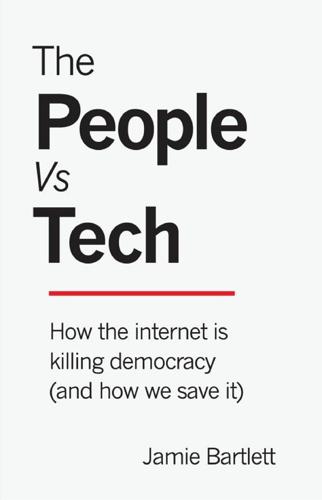
The People vs Tech: How the Internet Is Killing Democracy (And How We Save It)
by
Jamie Bartlett
Published 4 Apr 2018
Westwood (2014), ‘Selective exposure in the age of social media: Endorsements trump partisan source affiliation when selecting news online’. Communication Research, 41(8), 1042–1063. E. Bakshy, S. Messing and L.A. Adamic (2015), ‘Exposure to ideologically diverse news and opinion on Facebook’, Science, 348 (6239), 1130–1132. 8 Jonathan Taplin, Move Fast and Break Things (Macmillan, 2017). 9 Lee Drutman, ‘We need political parties. But their rabid partisanship could destroy American democracy’, www.vox.com, 5 September 2017. 10 Joel Busher, ‘Understanding the English Defence League: living on the front line of a “clash of civilisations”’, 2 December 2017, www.blogs.lse.ac.uk.
…
Data Protection Act 1998, http://www.legislation.gov.uk/ukpga/1998/29/contents 16 Jim Waterson, ‘Here’s How Labour Ran An Under-The-Radar Dark Ads Campaign During The General Election’, www.buzzfeed.com, 6 June 2017. 17 Ibid. 18 Heather Stewart, ‘Labour takes to the streets and social media to reach voters’, www.theguardian.com, 21 April 2017. 19 Cited in Taplin, Move Fast and Break Things. 20 E. Goodman, S. Labo, M. Moore and D. Tambini, (2017), ‘The new political campaigning’, LSE Media Policy Project Series. This is something Facebook itself boasts about of course. It claims to have reached over 80% of Facebook users in marginal seats in the UK election: ‘Using Facebook’s targeting tools, the [Conservative] party was able to reach 80.65% of Facebook users in the key marginal seats.

Mindf*ck: Cambridge Analytica and the Plot to Break America
by
Christopher Wylie
Published 8 Oct 2019
America is now living in the aftermath of the first scaled deployment of a psychological weapon of mass destruction. As one of the creators of Cambridge Analytica, I share responsibility for what happened, and I know that I have a profound obligation to right the wrongs of my past. Like so many people in technology, I stupidly fell for the hubristic allure of Facebook’s call to “move fast and break things.” I’ve never regretted something so much. I moved fast, I built things of immense power, and I never fully appreciated what I was breaking until it was too late. * * * — AS I MADE MY WAY to the secure facility deep under the Capitol that day in the early summer of 2018, I felt numbed to what was happening around me.
…
When Facebook goes on yet another apology tour, loudly professing that “we will try harder,” its empty rhetoric is nothing more than the thoughts and prayers of a technology company content to profit from a status quo of inaction. For Facebook, the lives of victims have become an externality of their continued quest to move fast and break things. When I came out as a whistleblower, the alt-right’s digital rage machine turned its sights to me. In London, enraged Brexiteers pushed me into oncoming traffic. I was followed around by alt-right stalkers and had photos of me at clubs with my friends published on alt-right websites with information about where to find me.
…
When you buy food in the grocery store or visit your doctor or step onto an airplane and hurtle thousands of feet in the air, do you feel safe? Most would say yes. Do you ever feel like you need to think about the chemistry or engineering of any of it? Probably not. Tech companies should not be allowed to move fast and break things. Roads have speed limits for a reason: to slow things down for the safety of people. A pharmaceutical lab or an aerospace company cannot bring new innovations to market without first passing safety and efficacy standards, so why should digital systems be released without any scrutiny? Why should we allow Big Tech to conduct scaled human experiments, only to realize that they become too big a problem to manage?

Supremacy: AI, ChatGPT, and the Race That Will Change the World
by
Parmy Olson
It was a generous bid and more money than Hassabis had ever dreamed of. He now found himself at a crossroads. Until now, DeepMind’s money had been coming from people who wanted him to build AI as carefully as possible. Now it could come from someone who wanted them to build it much more quickly. Facebook’s motto after all was “Move fast and break things.” Hassabis and Suleyman talked about how to approach the situation. AGI was going to be more powerful than even Zuckerberg realized, and they felt they needed something in place to prevent a big corporate acquirer from steering AI in a potentially harmful direction. They couldn’t just have Facebook sign a contract and promise not to misuse AGI.
…
I’ve mentioned anonymous sources in my endnotes, but I must thank the many individuals once again who work for tech and AI firms, or former employees of OpenAI and DeepMind, including senior executives, who spent hours sharing their experiences and, on occasion, deep unease about the stranglehold that tech giants have acquired on the field of AI and its new move-fast-break-things dynamics. I hope this book has done justice to their concerns and all the time they shared with me. My editors at Bloomberg Opinion have been incredibly supportive of this project, and I’m deeply grateful to Tim O’Brien and Nicole Torres for their enthusiasm and immediate willingness to let me take the time I needed to write a book that complemented much of what I’d been harping on about in columns for the previous year.
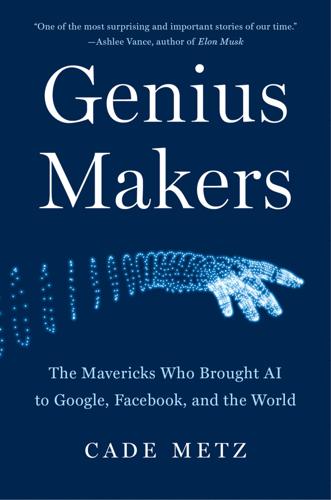
Genius Makers: The Mavericks Who Brought A. I. To Google, Facebook, and the World
by
Cade Metz
Published 15 Mar 2021
It built Internet technology for the here and now, not “artificial general intelligence” or any other technology unlikely to reach the real world for years to come. The company motto was “Move Fast and Break Things,” a slogan repeated almost endlessly on small silk-screened signs spread across the walls of its corporate campus. Facebook ran a social network spanning more than a billion people across the globe, and the company was geared toward expanding and amplifying this service as quickly as possible. It did not do the kind of research DeepMind aimed to do, which was more about exploring new frontiers than moving fast and breaking things. But now, after growing into one of the world’s most powerful companies, Zuckerberg was intent on racing the others—Google, Microsoft, Apple, and Amazon—to the Next Big Thing.
…
In the years that followed, this became a key part of the way Zuckerberg and Schroepfer pushed the company into new technological areas, from deep learning to virtual reality. Each new group sat beside the boss. In the beginning, this rubbed some at the company the wrong way. The rest of the Facebook brain trust felt that a long-term research lab planted next to Zuckerberg would clash with the company’s move-fast-and-break-things culture and spread resentment among the rank and file. But at Facebook, Zuckerberg held sway. He was the founder and CEO, and unlike most chief executives, he controlled a majority of the voting shares on the board of directors. A month later, Zuckerberg phoned Yann LeCun. He explained what the company was doing and asked for help.
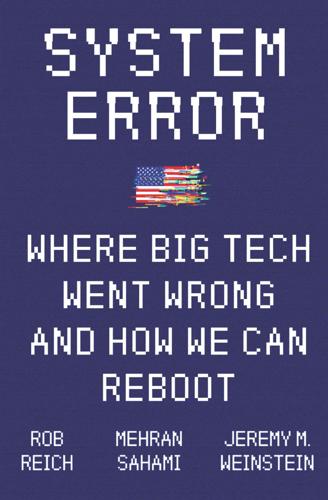
System Error: Where Big Tech Went Wrong and How We Can Reboot
by
Rob Reich
,
Mehran Sahami
and
Jeremy M. Weinstein
Published 6 Sep 2021
One of the first such awards was to a team of ten engineers who had worked on the company’s early ad-targeting system. The award, presented at a company all-hands meeting, led to audible gasps when the prize amount was revealed: $10 million to be split among the team. The marriage of technology and capital has come to define the “move fast and break things” culture of Silicon Valley. The countercultural notion of a free and uncontrolled cyberspace has given way to the new mantra of “blitzscaling,” where companies grow as quickly as possible to grab a dominant market position, demonstrate hockey-stick growth to their investors, and lock in any potential network effects before competitors can respond.
…
And with billions of dollars available for investment—the amount of money managed by VC firms grew from roughly $170 billion in 2005 to $444 billion in 2019—it’s no wonder that the emphasis on speed of execution, metrics to measure results, and ultimately returns for investors leads to a cycle where “moving fast and breaking things” can be adopted with little reflection until it’s too late. It’s also worth noting that while funding in the VC world continues to grow, how that money is distributed often reflects a narrow view of what a successful entrepreneur looks like. John Doerr, speaking at the National Venture Capital Association in 2008, famously described how being a male nerd “correlates more with any other success factor that I’ve seen in the world’s greatest entrepreneurs.
…
If the decisions we confront in regulating technology do not have obvious answers—and most do not, for reasonable people can disagree how much free speech is good and what decisions should be kept out of the hands of robots—the idea that we will build some sort of shared and definitive view about how all good things and competing values can be reconciled is fanciful, especially in a world in which new technologies are coming online so quickly. So why should we continue to look to elected politicians to regulate technology, given their track record? Part of the answer hinges on just how concerned you are about the consequences of the hands-off approach to new technologies. Silicon Valley’s attachment to the motto “Move fast and break things” has generated real effects on how much privacy we enjoy, the nature of work, and what we are exposed to in the digital public sphere. We have called these effects externalities—the by-products of technological change and innovation—and it falls to government, if it can get its act together, to deal with the consequences.

Careless People: A Cautionary Tale of Power, Greed, and Lost Idealism
by
Sarah Wynn-Williams
Published 11 Mar 2025
I start to realize that Facebook’s office is reinforcing the idea that Facebook is reckless and feckless and nothing good is going to come from continuing the tour. As the members of the German delegation stare at me in disbelief, with some audibly tutting, I make the executive decision to get to the meeting room as quickly as possible. Better to hurry past all the posters that say things like THINK WRONG, MOVE FAST AND BREAK THINGS, and IS THIS A TECHNOLOGY COMPANY? As soon as the German delegation is seated in the meeting room, we start formal introductions. Marne explains her background, that she’s relatively new to Facebook, having most recently worked at the White House under Larry Summers. At the end of listing her Harvard and government credentials, she concludes with, “And I’m Jewish.”
…
“Let’s dial up the algorithm to give politicians some love.” When they say that to me, I always say no, believing it’s best for us in the long run to stay scrupulously neutral. I don’t know what the other people on the policy team tell them. But that’s the growth team’s mentality. Like the posters all over the office say: move fast and break things. Before I started working at Facebook, I didn’t know enough to imagine the truth about the place, that this is the beating heart of the company, the growth team. Their values are the company’s values. Their priorities are the company’s. Those boys in the office who wanted to know what we stand for?
…
The reason for this is unclear, but it appears that the body that oversees gaming in Korea wrote to us warning that Korean law required Facebook to submit the games on our platform to be rated by the government. It’s not clear exactly what happened after the letter was received, but the Koreans say that Facebook ignored it. It’s shocking that there was no reply. But it’s plausible. The company is still very “move fast and break things” and “ask for forgiveness, not permission.” Now the situation has escalated. The Cybercrime Branch of the Seoul Police has gotten involved. And you don’t mess around with Korean police. When they started investigating Google, Google’s head of Korea had to flee the country. Still, Facebook appears to stonewall, claiming that basically no one in Korea—not the Korean government, not the Korean police—has any power over them.
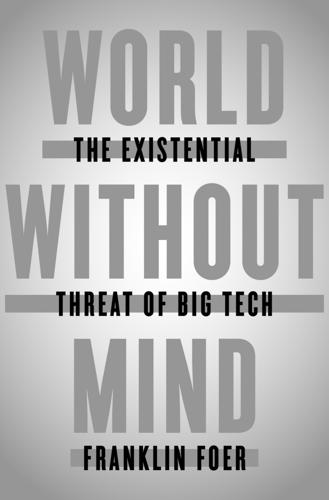
World Without Mind: The Existential Threat of Big Tech
by
Franklin Foer
Published 31 Aug 2017
To hack is to be a good worker, a responsible Facebook citizen—a microcosm of the way in which the company has taken the language of radical individualism and deployed it in the service of conformism. Zuckerberg claimed to have distilled that hacker spirit into a motivational motto: “Move Fast and Break Things.” Indeed, Facebook has excelled at that. The truth is, Facebook moved faster than Zuckerberg could ever have imagined. He hadn’t really intended his creation. His company was, as we all know, a dorm room lark, a thing he ginned up in a Red Bull–induced fit of sleeplessness. As his creation grew, it needed to justify its new scale to its investors, to its users, to the world.
…
“One thing is certain,” he wrote on a blog: Ben Mezrich, The Accidental Billionaires (Anchor Books, 2009), 49. “We’ve got this whole ethos that we want to build a hacker culture”: Levy, Hackers, 475. “just this group of computer scientists who were trying to quickly prototype”: “Facebook CEO Mark Zuckerberg on stumbles: ‘There’s always a next move,’” Today, February 4, 2014. “Move Fast and Break Things”: “Mark Zuckerberg’s Letter to Investors: ‘The Hacker Way,’” Wired, February 1, 2012. “It was always very important for our brand”: David Kirkpatrick, The Facebook Effect (Simon & Schuster, 2010), 144. “radical transparency” or “ultimate transparency”: Kirkpatrick, 209. “The days of you having a different image for your work friends”: Kirkpatrick, 199.
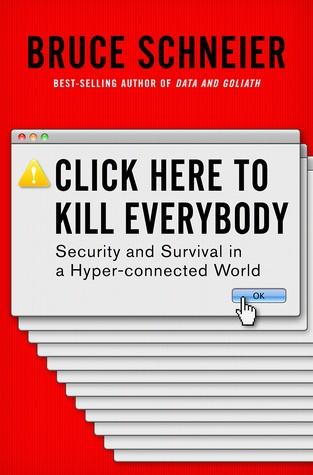
Click Here to Kill Everybody: Security and Survival in a Hyper-Connected World
by
Bruce Schneier
Published 3 Sep 2018
abstract_id=2437678. 33Fast-forward another half decade: Kim Zetter (31 Jul 2010), “Hacker spoofs cell phone tower to intercept calls,” Wired, https://www.wired.com/2010/07/intercepting-cellphone-calls. 33The result is passwords: My essay about how to choose a secure password: Bruce Schneier (25 Feb 2014), “Choosing a secure password,” Boing Boing, https://boingboing.net/2014/02/25/choosing-a-secure-password.html. 33In the 1970s, IBM mathematicians: Don Coppersmith (May 1994), “The Data Encryption Standard (DES) and its strength against attacks,” IBM Journal of Research and Development 38, no. 3, http://simson.net/ref/1994/coppersmith94.pdf. 33The NSA classified IBM’s discovery: Eli Biham and Adi Shamir (1990), “Differential cryptanalysis of DES-like cryptosystems,” Journal of Cryptology 4, no. 1, https://link.springer.com/article/10.1007/BF00630563. 2. PATCHING IS FAILING AS A SECURITY PARADIGM 34“Move fast and break things”: In 2014, Facebook changed its motto. Samantha Murphy (30 Apr 2014), “Facebook changes its ‘Move fast and break things’ motto,” Mashable, http://mashable.com/2014/04/30/facebooks-new-mantra-move-fast-with-stability/#ebhnHppqdPq9. 36“responsible disclosure”: Stephen A. Shepherd (22 Apr 2003), “How do we define responsible disclosure?” SANS Institute, https://www.sans.org/reading-room/white papers/threats/define-responsible-disclosure-932. 36Google has an entire team: Andy Greenberg (16 Jul 2014), “Meet ‘Project Zero,’ Google’s secret team of bug-hunting hackers,” Wired, https://www.wired.com/2014/07/google-project-zero.
…
And while we can’t eliminate all those risks completely, we can mitigate them by doing a lot of up-front work. The alternative security paradigm comes from the fast-moving, freewheeling, highly complex, and heretofore largely benign world of software. Its motto is “Make sure your security is agile” or, in Facebook lingo, “Move fast and break things.” In this model, we try to make sure we can update our systems quickly when security vulnerabilities are discovered. We try to build systems that are survivable, that can recover from attack, that actually mitigate attacks, and that adapt to changing threats. But mostly we build systems that we can quickly and efficiently patch.
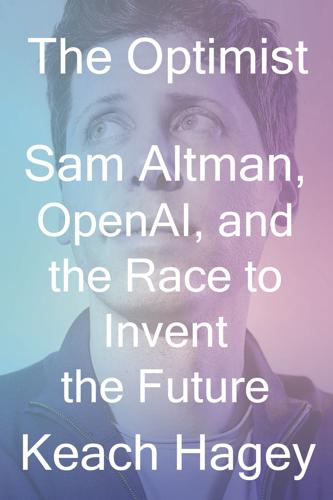
The Optimist: Sam Altman, OpenAI, and the Race to Invent the Future
by
Keach Hagey
Published 19 May 2025
But because Musk demanded from the beginning that OpenAI be set up as a separate nonprofit whose funds would not bleed into YC Research’s other projects, this fluidity started to look to some partners more and more like a conflict of interest—or at least an unseemly leveraging of the YC brand for Altman’s personal projects. Altman’s supporters say he was simply moving fast and breaking things. “Sam’s a good person who means well,” said one longtime YC partner. “He is moral. He tries to do the right thing. But he is conflict avoidant, not a great communicator, and sometimes he moves so quickly that he breaks trust.” It hardly mattered. A year after the stairwell meeting with Nadella, Microsoft and OpenAI announced that Microsoft was investing $1 billion in OpenAI—largely in the form of credits on its Azure cloud computing platform that would go back to Microsoft—to help them develop “beneficial AGI.”
…
(magazine), 258 Inception (film), 210 India, 14, 134, 274–75 Indiana Pacers basketball team, 209 Inflection AI, 277 Infogami, 76 Information Technology and Innovation Foundation, 300 Information, The (news site), 311 Infosys, 187, 197, 236 initial coin offering (ICO), 221–22 innovation breakthrough technologies, 153, 207–8 CHIPS and Science Act, 298 computer vision, 168, 182, 184, 247 incremental cost of selling an additional widget, 72 “levers” of change, 154 moonshots, 13, 16, 136, 194 “moving fast and breaking things,” 237 nanotechnology, 144, 164 the need for “adults in the room,” 96–98, 217 the problem of incremental or even fake problems, 132–33, 180 “productizing” technologies, 245 quest for a “new Bell Labs,” 140, 185 self-reinforcing cycle of exponential technological progress, 140 serendipity and, 98 time horizon of, 153, 174, 185 see also software development; tech industry insider information, 144 InstructGPT, 264 insurance industry, 24, 29, 37, 139, 228, 248, 273 Intel Research Seattle, 110–11 intellectual property, 185, 281 Common Crawl, 243–44 copyright, 160n, 220, 243, 244 open-source technologies, 95, 186, 214, 247, 263 in the public domain, 196 Tesla’s patents as openly available, 214 trademark issues, 101 voice called “Sky,” 307–8 Intelligence Age, 314 IntelliGenesis, 145 International, The (global esports championship), 215 Internet Explorer web browser, 272 investing angel investing, 70–74, 81, 123, 138, 150–52, 309 “capped profit” model, 229–30, 304 conflicts of interest, 225, 236, 303 deal flow, 88, 95, 124 Efficient Market Hypothesis, 144 employee shares, 290 follow-on investments, 159 insider information and, 144 issues of equity, 6, 7, 18, 72, 89–91, 94–95, 138, 158, 172, 185, 190, 222, 233–36, 256, 273–74, 302, 306 Lehman Brothers collapse, 116 lessons from the art market’s inefficiency and opacity, 68 limited partners (LPs), 72, 136, 124, 151, 155, 159, 234, 236, 281 massive valuations of tech companies, 71, 73, 138–40, 152, 290 preferred stock, 90 “product-market fit,” 107, 157 profiting off carried interest (“carry”), 73, 158, 281 public funds and private investment, 314 Reddit share offerings, 161, 163 Series A investment round, 89, 101, 125, 136, 156, 158–59 university endowments, 72, 155, 159 volatility, 137 see also Sequoia Capital; startups; tech industry; Y Combinator (YC) IOTA Foundation, 275 iPads, 197 iPhones, 110–16, 118, 119 Irvine, CA, 99, 105 Isaacson, Walter, 171–72 Ishutin, Danil “Dendi,” 215–16 Isilon data storage company, 122 Israel, 179, 274 Istanbul, 232 Ive, Jony, 280 Jacobstein, Mark, 60–61, 97–98, 102, 107–9 jailbreaking the iPhone, 112 Japan, 23, 79, 134 Jin, Berber, 11 Jobs, Steve, 61, 85, 87, 90, 110–16 Johansson, Scarlett, 307–8 John Burroughs School, 15–16, 45–46, 53, 202, 227 Johnson, Boris, 205 Johnson, Charles, 204–5 Józefowic, Rafał, 218 Jump, Brian, 46–48, 51 Justin.tv, 82, 157, 293 Kan, Justin, 76, 81–82, 157, 293 Kansas City, 41, 62, 78, 99 Karnofsky, Holden, 212–13, 234, 266–67 Karpathy, Andrej, 184–86, 189–93, 221, 223 Kasparov, Garry, 191 Kay, Alan, 195–98, 209–10 Kennedy, John, 273–74 Kennedy, Len, 105–6 Kennedy, Leroy, 22 Kepchar, Georgeann, 47 Keyes, Daniel, 140 Khashoggi, Jamal, 232 Khosla Ventures, 230, 235, 257 Khosla, Vinod, 230 Kiko online calendar app, 76, 81 Kingma, Durk, 184 Kingsbury, Kathy, 53 Kirtley, David, 259 Kleiner Perkins venture firm, 162, 230 Knapp, Brian, 106, 109, 121 Knife Fight (film), 292 Koko the gorilla, 210 Kolpino housing complex in Leningrad, 27n Kozmo.com Kit-Kat delivery services, 132 Krisiloff brothers (Matt and Scott), 206–7, 296–97 Krizhevsky, Alex, 178, 182, 266 Kurzweil, Ray, 142, 144, 210 Kushner, Josh, 161, 290 Kutcher, Ashton, 138 Kwon, Jason, 290, 293 L5 Society, 144 Ladue suburb of St.
…
Alexander), 165–66 Meena the chatbot, 270 Memamp desktop search company, 76 Mendelsohn, Matt, 45 Metro (UK newspaper), 242 Metz, Cade, 145–46, 199 MGX investment fund, 310 Microsoft in the AI arms race, 270 Azure cloud, 216, 237, 272 and the Biden campaign, 296 Bill and Melinda Gates Foundation, 303 Bing search engine, 216, 271 during the “blip” and beyond, 277, 279–80, 282–83, 288–89, 293–94, 303–4, 310, 313 Edge web browser, 272 GitHub Copilot on Visual Studio, 262 HyperCard, 209 Inflection AI acquisition, 277 Internet Explorer web browser, 272 LinkedIn acquisition, 234 OpenAI’s relationship with, 2, 11, 13, 216–17, 226, 229–30, 234–35, 237, 245, 271–72, 303–4, 310, 313 QBasic language, 56 regulation of AI, 299–300 Tay the chatbot, 270 valuation of, 298 Visual Basic language, 56 Millennials, 4, 137, 205 Milner, Yuri, 138, 199 mimetic theory, 131 Minsky, Marvin, 142, 210 MIT (Massachusetts Institute of Technology), 63, 64, 92, 124, 160, 175, 178, 212 MIT Technology Review, 258–59, 269 Mithril Capital, 136 mobile phones enter the iPhone, 110–16, 118, 119 global positioning system (GPS) chips in, 57–58, 99 location-based services, 58–59, 106–7, 118–19 phone makers as the serfs of the mobile industry, 110 proprietary software on, 79 wireless carriers, 58–59, 75, 79, 90, 98, 100–9, 110, 118, 120, 159 mobile virtual network operator (MVNO), 99 Modi, Narendra, 14, 274, 275 Moloch (a god), 165–66 Monongahela Valley of Pennsylvania (Mon Valley), 30, 40 moonshots, 13, 16, 136, 194 Moore, Demi, 138 “Moore’s Law for Everything” (Altman), 255 More, Max, 141 Morehead-Cain Scholarship at the University of North Carolina at Chapel Hill, 53 Moritz, Michael, 16, 87–89, 112–13, 117, 186, 206 Morris, Robert Tappan, 63, 68, 74 Moscone Center West in San Francisco, 115 Moskovitz, Dustin, 212–13, 259, 300 Mountain View, CA, 85, 94, 107, 122, 133, 139, 149, 161, 172, 182, 235 “moving fast and breaking things,” 237 Mozilla Foundation, 63, 233–35 Mulherin, Oliver, 275, 288, 295, 311 Murati, Mira, 225–26, 242–43, 246–48, 268, 282–93, 304–5, 307–8 Musk, Elon, 2, 5 as an AI doomer, 2, 5, 163, 167–72, 214–15, 273–74 children fathered by, 277 colonization of Mars, 144, 147, 170–71 DeepMind investment, 147 departing OpenAI, 216–17, 221–24, 229, 234–36, 277, 304 fighting aging, 257 Halcyon Molecular, 257–59 lawsuit against OpenAI, 14–15, 304, 313 Neuralink, 193, 234 at OpenAI’s founding and beyond, 170–72, 183, 185–88, 192–94, 198, 213–14, 216–17, 221–24 in politics, 207, 313 relationship with Sam Altman, 16, 147, 170–72, 183, 194, 214–15 SpaceX, 147, 153, 167, 170–71, 187, 194 Tesla, 153, 167, 194, 223–26, 234, 255 Twitter, 118, 158, 169, 246–47, 261, 270, 281 X.com originally, 125 xAI, 15, 277, 310 MyMobileMenu (MMM) food ordering system, 75 MySpace, 103, 116 Nadella, Satya, 216, 229–30, 237, 271–72, 273, 288–89, 293–94 Nakamoto, Satoshi, 142 nanotechnology, 144, 164 Napa Valley, 185, 190, 260 NASA, 132–33 NASDAQ, 97 Nathoo, Kirsty, 139 National Center for Missing & Exploited Children, 98 National Institute of Standards and Technology (NIST), 299, 301 National Security Council, 299, 301 “natively multimodal,” 307 natural language processing, 174 Nature (journal), 148, 192 Nawrocki, Bob, 25–26 NBC Universal, 229 Nectome, 258 Neom, a megacity in Saudi Arabia, 231–32 Netflix, 204, 229 Neuman, John von, 140 neural networks, 147, 164, 176, 179–82, 190–93, 219, 221, 243, 314 Neuralink, 193, 234 NeurIPS (Conference on Neural Information Processing Systems), 178, 186, 305 neuroscience, 145–48, 202 New Enterprise Associates (NEA), 61–62, 74–75, 77, 80–81, 85–86, 89, 91, 92, 117, 121 New Hampshire, 297 New York (magazine), 134, 250, 261–62, 281 New York City, 10, 29–30, 43, 67, 86, 101–2 New York Stock Exchange, 163 New York Times Magazine, The, 139 New York Times, The, 29, 63, 132, 163, 217, 244, 270, 286, 288, 308, 312–13 New Yorker, The (magazine), 49, 81, 128, 152–54, 160, 165, 201–2, 259–60 New Zealand, 145, 171 Newhouse, Steve, 162 News Corp, 307 “newscasters,” 73 Newsom, Gavin, 205, 309 Newton, Thandiwe, 199 Nextel, 58, 99, 105–6 1910 Genetics, 250 Ng, Andrew, 57, 90, 170, 266 Nicholls, GA, 23 Nobel Prizes in Physics, 219, 312 Noerper, Thelma, 25 Nolan, Jonathan, 199 nonprofit structure of OpenAI, 4–5, 14–16, 28, 172, 184–87, 198, 222–23, 233–34, 236, 266, 275 Nosek, Luke, 147 nuclear energy, 12–13, 57, 108, 134–36, 154, 177, 205, 230, 259, 280 nuclear weapons, 27n, 168, 213 nude celebrity photos leaked by hackers, 162 Nwankwo, Jen, 250 o1 (“Strawberry”), 284, 309 Oakland, CA, 195 Obama, Barack, 21, 172, 207–8, 266 Ohanian, Alexis, 69–70, 75, 81, 162 Oklo fission microreactor startup, 13, 137, 280 Olah, Chris, 178, 184 1billionmasks.com, 250 O’Neill, Megan, 28–29 “On the Dangers of Stochastic Parrots: Can Language Models Be Too Big?”
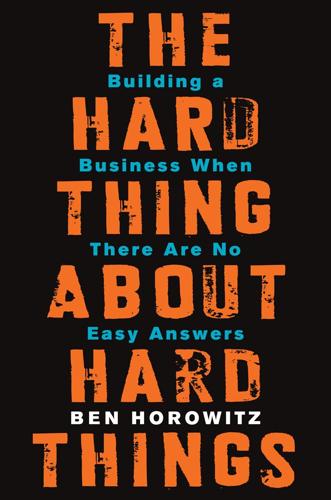
The Hard Thing About Hard Things: Building a Business When There Are No Easy Answers
by
Ben Horowitz
Published 4 Mar 2014
When new employees come on board, they find this shocking, which gives us a great opportunity to explain in detail why we respect entrepreneurs. If you don’t think entrepreneurs are more important than venture capitalists, we can’t use you at Andreessen Horowitz. Move fast and break things Mark Zuckerberg believes in innovation and he believes there can be no great innovation without great risk. So, in the early days of Facebook, he deployed a shocking motto: Move fast and break things. Did the CEO really want us to break things? I mean, he’s telling us to break things! A motto that shocking forces everyone to stop and think. When they think, they realize that if you move fast and innovate, you will break things.

12 Bytes: How We Got Here. Where We Might Go Next
by
Jeanette Winterson
Published 15 Mar 2021
Filthy air. Life expectancy was around 30 years for the slum-housed factory workers. So much money. So little equality. Folks called Manchester the Golden Sewer. * * * Marx, writing in chapter one of The Communist Manifesto, had this to say, and it sounds eerily like the 21st-century ‘move fast and break things’ (Mark Zuckerberg – Facebook) mentality we associate with Big Tech: Constant revolutionising of production, uninterrupted disturbance of all social conditions, everlasting uncertainty and agitation distinguish the bourgeois epoch from all earlier ones … All that is solid melts into air.
…
Thompson, 1963 Industry and Empire: From 1750 to the Present Day, Eric Hobsbawm, 1968 Why the West Rules – For Now, Ian Morris, 2010 Debt: The First 5000 Years, David Graeber, 2011 ‘The Masque of Anarchy’ (poem), Percy Bysshe Shelley, 1832: ‘Ye are many—they are few’ ‘A Short History of Enclosure in Britain’ (essay), Simon Fairlie, 2009 PostCapitalism: A Guide to Our Future, Paul Mason, 2015 Capital in the Twenty-First Century, Thomas Piketty, 2013 Move Fast and Break Things: How Facebook, Google, and Amazon have cornered culture and undermined democracy, Jonathan Taplin, 2017 The Mill on the Floss, George Eliot, 1860 From Sci-fi to Wi-fi to My-Wi Rocannon’s World, Ursula K. Le Guin, 1966 The Midwich Cuckoos, John Wyndham, 1957 Brave New World, Aldous Huxley, 1932 Weaving the Web: The Original Design and Ultimate Destiny of the World Wide Web, Tim Berners-Lee, 1999 ‘We Can Remember It for You Wholesale’ (short story), Philip K.
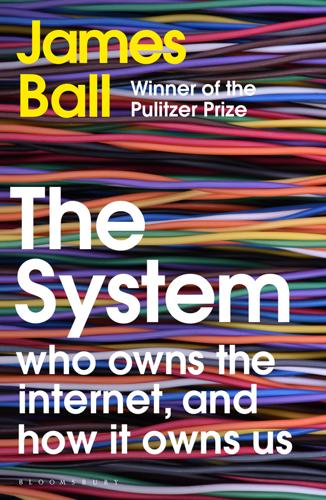
The System: Who Owns the Internet, and How It Owns Us
by
James Ball
Published 19 Aug 2020
ICANN and its stakeholders have clearly managed to think up a new and more secure system that would fix at least some of the system’s problems, and they still host regular ceremonies to keep its certificates up to date; but nearly a decade after the system began, it’s still barely used in practice, even if the big players have signed up in theory. ‘Slow and bureaucratic’ are supposedly dead concepts, things of the past when it comes to the ‘move fast and break things’ mantras of the Silicon Valley start-ups – but when it comes to online infrastructure, the analogy seems to be more ‘move fast, grow fast, fix achingly slowly’. The struggles of working out these tensions are more obvious in what – at first at least – seems like one of ICANN’s more trivial functions: deciding what gets to be a web domain, and who gets to administer it if so.
…
And for a long time, it’s felt safe to only focus on those because the internet was the home of the upstarts and the disruptors; it’s only now, as we start to accept the internet businesses are the incumbents, that the need for more reflection on the business and funding model, and perhaps the need to slow down, becomes clear. It’s a tension Borthwick – whose very studio, betaworks, is built off and named after a culture of experimentation, trying things out (of ‘betas’), and moving fast – does now acknowledge. Times have changed. ‘I think that culture of move fast and break things or fuck it, ship it, and just get it out, has been a large contributor to some of the unintended consequences that we’ve seen today.’ VCs aren’t trusted with so much money and power over the online ecosystem for nothing: they often have an insight into what the internet is doing to the world long ahead of the rest of us – even if their main motivation for looking into it is using that insight to make money.
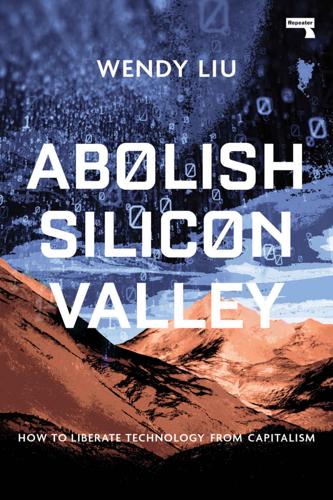
Abolish Silicon Valley: How to Liberate Technology From Capitalism
by
Wendy Liu
Published 22 Mar 2020
I believed this even when I was spending half my time putting out fires as we continually strained the limits of our system, rather than actually making progress on building new features. But surely that was normal; every successful startup had stories of the servers being on fire half the time. Hell, Facebook’s motto was, until recently, “Move fast and break things”.6 Many days, I witnessed the office clock hitting twelve twice. The short walk home through the quiet tree-lined streets was restorative; I felt drained, but in a good way, like I had set a personal record. We still didn’t know what we were doing, but I was a staunch believer in the transformative power of hard work, and I was sure we would figure it out by the end of this redemptive baptism by fire.
…
See https://andrewchen.co/after-the-techcrunch-bump-life-in-the-trough-of-sorrow/. 5 “One Startup’s Struggle to Survive Silicon Valley’s Gold Rush”, by Gideon Lewis-Kraus, first published April 22, 2014. See https://www.wired.com/2014/04/no-exit/. 6 In April 2014, Mark Zuckerberg announced that Facebook’s infamous “Move Fast and Break Things” motto would be changed to the less catchy “Move Fast With Stable Infra”. See https://mashable.com/2014/04/30/facebooks-new-mantra-move-fast-with-stability/. Five: Accelerate 1 From a recorded interview for VatorNews. See https://vator.tv/news/2010-12-23-elon-musk-work-twice-as-hard-as-others. 2 A common (if vague) truism in the startup world is that 90% of startups fail.

Whole Earth: The Many Lives of Stewart Brand
by
John Markoff
Published 22 Mar 2022
The American view of the internet—and by extension Silicon Valley—performed a 180-degree reversal in the wake of the 2016 presidential election. Facebook, Google, and Twitter went from being the nation’s darlings to being castigated as enablers of Russian subversion of American democracy. It is striking that both Franklin Foer in World Without Mind: The Existential Threat of Big Tech (2017) and Jonathan Taplin in Move Fast and Break Things: How Facebook, Google, and Amazon Cornered Culture and Undermined Democracy (2017) open their jeremiads with profiles of Brand as a harbinger of an emergent cyberculture that originally promised digital freedom and instead has brought a post-Orwellian state of soft control and concentration of power.
…
Brand felt that Huey Johnson had been “shockingly effective” as natural resources secretary for California in the early ’80s, proving “how much lasting good can be accomplished by intelligent and integrated policy at the state level.” Streeter and Turner also ignored the degree to which he felt that his effort in building a workable, not-for-profit digital culture upon the WELL had been a failure. They also failed to make the distinction—made later by Jonathan Taplin in his 2017 book, Move Fast and Break Things: How Facebook, Google, and Amazon Cornered Culture and Undermined Democracy—between Brand’s original technological utopianism and Silicon Valley–centered digital libertarianism that emerged with a group of Stanford-educated young Turks known as the PayPal Mafia during the dot-com era. In Whole Earth Discipline, Brand made a decidedly non-neoliberal argument: “The scale of the climate challenge is so vast that it cannot be met solely by grassroots groups and corporations, no matter how Green.
…
Bean catalog, 154, 167, 219 Loeffler, Jack and Jean, 51, 76, 97, 98–100, 101–2, 108–9, 110, 112, 114, 116–17, 119, 133, 144, 200, 205 logging, SB’s summer job in, 29–30 Loma Prieta earthquake, 303 London, Ann, 93 Long Bets, 335 Long Now Clock, 313–14, 316–17, 323, 325–26, 327, 328–29 location search for, 329–33, 335–36 Texas site of, 363 working prototype of, 333 see also Clock Library Long Now Foundation, 33, 328, 332, 334–35, 342–43, 360, 362, 363 Lovelock, James, 230, 349, 350 Lovins, Amory, 341, 350, 352 Lovins, Hunter, 335 LSD, 41–42, 50, 72–73, 84, 88, 103, 156, 160, 212 academic experiments with, 42, 72, 76–82, 273 creativity and, 72, 76–77 criminalization of, 140–41, 143 SB’s use of, 1, 79–80, 101, 117, 134, 162–63, 181 SB’s warnings about cultural impact of, 85 Trips Festival and, 127, 129 Lynas, Mark, 354 Lynda (SB’s girlfriend), 70–71 M McCarthy, John, 83–84, 169, 211, 272 McCarthy, Joseph, 17, 31 McClanahan, Ed, 24, 146, 160, 183 McClure, Matthew “Cappy,” 182, 257–58, 264 McClure, Michael, 33–34, 205, 228 McCord, William, 47–49 McCulloch, Warren, 46, 273 McGovern, George, 225 McIntyre, Joan, 206, 207 MacKay, David, 350 McKim, Robert, 78 McLuhan, Marshall, 93, 94, 106, 110, 112, 124, 132–34 Mailer, Norman, 231 Malone, Michael, 261 Malone, Tom, 315 Mandelbrot, Benoit, 262 Mander, Jerry, 123–24, 133–34, 142, 162, 182, 203 Margulis, Lynn, 230 Markham, Beryl, 271–72, 275 Marshall, Andy, 315, 338, 339 Marty (SB’s girlfriend), 49–50, 52 Masai Mara game reserve, 271, 275 Mason, Ben, 21 Mathematics: A World of Numbers...and Beyond (museum exhibition), 91 Matrix (San Francisco nightclub), 123, 129 Matson, Katinka, 253 Matthiessen, Peter, 272 Media Lab, 290, 291, 306–7 long-term impact of, 278–79 Negroponte as founder of, 262, 272 SB’s lectures and research at, 273, 277, 278–79 Media Lab, The: Inventing the Future at MIT (Brand), 278, 280–81, 283, 286, 289, 292, 318 Megatrends (Naisbitt), 262 Meilstrup, Ann, 24–25 Merry Pranksters, 2, 24, 88–89, 97–98, 120, 121, 123, 124, 125, 126, 129, 131, 141, 143, 160, 181 Metric Conversation Council, 230 Metzner, Ralph, 177 Me-Wuk Acorn Festival, 120 Michigan, timber boom in, 8–9 Microsoft Office, 151 Microsoft Windows, 268 Midpeninsula Free University, 158 Millbrook, N.Y., 78–79, 106 Miller, Henry, 35, 50, 71 Mills, Stephanie, 182, 222 SB’s affair with, 203–4, 209, 210, 213–14 Mind and Nature (Bateson), 277 Minsky, Marvin, 277, 278, 289, 324 Mirene (SB’s houseboat), 46–47, 249, 256, 271, 282, 302, 307, 334, 338, 343 MIT, 135 Artificial Intelligence Lab of, 266–67, 272 Building 20 at, 290–91, 307 Media Lab at, see Media Lab Mogar, Robert, 78, 103 Monbiot, George, 354 Monitor, 296 “monkey wrenching” (sabotage), 181 Moore, Fred, 196–97, 198 Moore, Gordon, 152 Moore’s law, 152 Morley, AJ, 8–9 Morley, Ed, 29 Morley, Ralph Chase (grandfather), 8–9, 16 Morley Brothers wholesalers, 8, 157 Morley family, 7–9 Mornell, Pierre, 194, 202, 213 Morningstar commune, 140 Morris, Robert Tappan, 293 Morrison, Philip, 172, 281 Moss Tents, 175 Mountain Girl (Carolyn Adams), 125, 128, 131 Mount Analogue (Daumal), 186 Move Fast and Break Things (Taplin), 5–6, 10, 348 Muir, John, 340 multimedia, 106, 137, 306 see also specific events and exhibitions Mumford, Lewis, 162 Murphy, Dennis, 35 Murphy, Michael, 40, 71, 76, 83, 84–85, 97, 101, 211 Mutiny on the Bounty (film), 233 Myhrvold, Nathan, 328, 331 N Naisbitt, John, 262 NASA, 135, 191 National Book Awards Ceremony, SB at, 200–201 National Congress of American Indians, 1964 convention of, 107, 110–11 National Park Service, 237 Native American Church, 100, 112 “Native American Church Meeting, The” (Brand), 109 Native Americans, see American Indians nature: humans as morally responsible for care of, 42, 347, 349, 360, 361 SB’s childhood immersion in, 10–11 Navajo Mountain, 117 Negroponte, Nicholas, 262, 272, 279, 281, 287, 289, 290, 292 Nelson, Ted, 230, 292, 293, 294 Network Technologies International (NETI), 263 Neuwirth, Robert, 341 New Age Journal, 255 New Age movements, 35, 41, 225 New Games, 210, 211, 217, 220, 221, 236–37 New Jersey Institute of Technology, 240 New Left, 143, 225 SB’s antipathy for, 4, 142, 145, 341, 347 Newton, Huey, 229 New Urbanism, 129, 246, 307 New Yorker, 190, 219, 311 New York Times, 259, 265, 280, 314, 341–42 SB profile in, 344–45 New York Times Magazine, 45, 46 Next Whole Earth Catalog, The, 240, 241–42 Nin, Anaïs, 50 nitrous oxide, 163 Nixon, Cynthia, 142, 144, 145, 152 Nixon, James, 142–45, 150, 151–52 Nixon, Richard, 225 “No Frames, No Boundaries” (Schweickart talk), 224–25 No More Secondhand God (Fuller), 162 Nordhaus, Ted, 340 Norman, Gurney, 146, 183, 193, 223 North Beach (San Francisco neighborhood), 50, 99 Beat culture of, 3, 34, 35, 37, 47–49 SB’s apartment in, 1, 74–75, 83, 89–90, 98, 134 Nuclear Energy Institute, 342 nuclear power, 2 SB’s defense of, 2, 5, 337, 338, 339, 341–42, 344, 351, 353–54, 356 Schwartz’s endorsement of, 339–40 nuclear war-gaming, 273 nuclear waste storage, 335–36 nuclear weapons, US-Soviet standoff over, 31 O Office of Naval Research, 111 Ogilvy, Jay, 295 “Ohio” (song), 190 Oliveros, Pauline, 94 Omidyar, Pierre, 336 One Flew Over the Cuckoo’s Nest (Kesey), 87–88 O’Neill, Gerard K., 231–32 oNLine System (NLS), 151, 156, 197, 212 On the Road (Kerouac), 69, 126 Onslow Ford, Gordon, 50 Oppenheimer, Frank, 194 Oppenheimer, Robert, 17–18 Oraibi, Ariz., 116 Oregon State University, 355 Orlovsky, Peter, 237 Osborn, Fairfield, 28 Osborne, Dan, 114, 117 Osborne I computer, 251, 267 Ostwind, Dorothy, 88, 97, 98 Other One, The (film), 126 Our Mr.
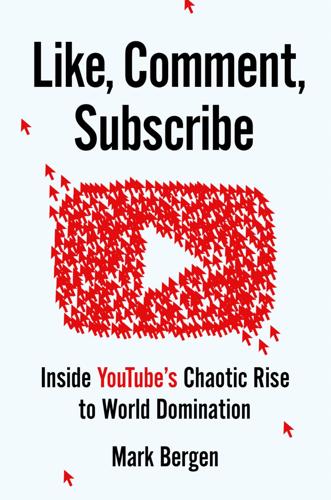
Like, Comment, Subscribe: Inside YouTube's Chaotic Rise to World Domination
by
Mark Bergen
Published 5 Sep 2022
Staff invented a new category (“borderline fetish”) and wrote policies for moderators and machines to detect videos that fell into it. YouTube made another label for footage that mixed children’s characters with “adult themes”—the screwy Peppa Pig fare and legions of Spider-Man–Elsa mash-ups. They moved cautiously. While YouTube staff envied Facebook, they liked to say they didn’t “move fast and break things”—Facebook’s old motto. In the wake of Trump’s election, that motto was synonymous with the social network’s careless wreckage of democratic norms. When YouTube decided to ban videos giving firearm instructions or selling guns, the company took six months to write rules, stress test them, and develop enforcement protocols.
…
See also Zappin, Danny Dickson, Marion, 10 Digg, 95 Digital Millennium Copyright Act (DMCA, 1998), 35, 36, 37, 61, 99 Disney content on YouTube, 242–43 and Frozen (film), 241–42 Maker Studios acquired by, 219, 242 and PewDiePie/Kjellberg, 219, 278 and success of YouTube model, 210 YouTube’s attempt to partner with, 130 and Zappin, 107 DisneyCollectorBR, 171–73, 174, 239, 242 DistBelief, 232 diversity, 301, 302, 344 do-it-yourself crafting, 57 dollar-sign indicators for creators, 268 domain for YouTube.com, 16 Donahue, Kevin, 28–29, 66–67, 168–69 Donaldson, Jimmy, 353 Donovan Data Systems, 74 Donovan, Lisa, 106–7, 186 Dorsey, Jack, 397 DoubleClick Incorporated, 70–71, 75, 197, 198, 257, 284 Douek, Evelyn, 398 Downs, Juniper, 281 doxing problem at YouTube, 262–63 DreamWorks, 210 Drudge Report, 270 Drummond, David, 215, 216 Ducard, Malik, 378 Dynamic Ad Loads (Dallas), 191–92, 194 E eBaum’s World, 21 eBay, 52 echo chambers of YouTube, 265–66, 299 edgelords, 275–76, 383 EduTubers, 170, 245, 246 egalitarianism prioritized at YouTube, 164, 180, 194 Egypt, 137–38, 141–42, 143 Electronic Frontier Foundation (EFF), 37, 215 Elizabeth II, Queen of Great Britain, 92, 126 Elsa, people dressed as, 305–7, 309, 312 Elsagate, 314, 321 employees of YouTube contract employees, 317–20, 327, 349 diversity hiring in, 301 as parents, 174 and perks at YouTube offices, 148 poached from Yahoo, 52 and Wojcicki, 211–13 engagement of users emphasis placed on, 154, 158–59 (see also watch time of audience) and machine learning applied to advertising, 191 payments based on (Moneyball proposal), 337–38, 341 strain related to goals for, 203 See also comments and comment section; likes Equals Three (=3) production company, 120 Europe, 340, 365, 371 European Parliament, 215–16 EvanTubeHD, 237–38 Ezarik, Justine (iJustine), 40, 78, 95, 110, 119, 392 F Facebook advertising on, 252, 284 and Arab Spring, 142 boycotts of, 382 Cambridge Analytica scandal, 341 Chen’s employment with, 24 competition of YouTube with, 264–65 and COVID-19 misinformation, 397, 398 criticisms of, 366 engagement of users, 154 as global public square, 142 growth/popularity of, 93, 138, 146, 284 “Like” button, 138 as media company, 285–86 “move fast and break things” motto of, 309 and New Zealand terrorist attack, 10, 358, 359 political quagmires of, 340, 391, 397 recruitment of creators, 390 and Russian agents, 326–27, 340 Russia’s blocking of, 397 and Sandberg, 195 screeners at, 319 and Stapleton, 81 Steyer’s distrust in, 402 struggles for relevancy, 6 and Trump, 370 users leaving platform, 394 and video, 210, 251, 264–65 YouTube clips shared on, 251 faceless channels, 171–72 “fake news,” 399 fakes on YouTube, 144–45 “false flags,” 326 fashion industry, 189 Fast Company, 299–300 Federal Communications Commission (FCC), 168, 224 Federal Trade Commission (FTC), 168, 243, 368, 394 “Feet for Hands” (Smosh), 67 feminism, 223, 224, 225 fetish, borderline, 309, 310 Figglehorn, Fred (Cruikshank), 65–66, 69, 77–78, 131, 169 financials of YouTube crossing $1 billion in revenue, 126 and expectation of profitability, 93–94 and first profit of YouTube, 50 funding from Sequoia Capital, 29–30, 50 and Google’s priorities for YouTube, 68 impact of changed algorithm on, 159 and monetization of YouTube, 66–67, 93–94, 96 money lost by YouTube, 93 and PewDiePie, 8–9 revenue goals of Wojcicki, 252, 382 and videos eligible for advertising, 110 “Finger Family” videos, 239–40, 312 Finland, mass shooting in (2007), 64 flagged content, 165 Flannery, Michele, 94, 95, 101 Flash, 21, 24 flat-earth videos, 299, 328 Flickr, 17, 18 Flinders, Mesh, 41–42 Floyd, George, 378, 384 Foley, James, decapitation of, 213, 215 Forbes, 29 founders of YouTube, 26.
…
218 voice of, 276 YouTube’s hands-off approach to, 280–81 See also Kjellberg, Felix Phan, Michelle, 78 PhoneDog.com, 78 Pichai, Sundar congressional testimony of, 345–47 and criticisms of Wall Street Journal, 325 and Damore memo, 301 and engagement-based payments (Moneyball proposal), 338, 341 and “next billion users,” 341, 342 Page’s transfer of power to, 203, 230, 257 at post-election staff meeting, 272 on Rubin’s sexual misconduct, 348 and shooting at San Bruno offices, 337 on utility of Google, 401 and walkout (2017), 350 Pichette, Patrick, 97 Pickett, Tom, 87–88 playground equipment at offices, 148 PocketWatch, 395 politics charges of political bias, 269, 273, 340, 342, 345, 367 and congressional testimony of Pichai, 345–47 fringe/dangerous political content, 270, 343 Google/YouTube’s avoidance of, 63, 269, 340 and government takedown requests, 399 on home page of YouTube, 58 and rise of the alt-right, 275 and Trump’s bans, 397–98 pop-up ads, 68, 73 Porat, Ruth, 350 pornography, 32, 86, 168 Poulson, Jack, 234, 315 Power, DeStorm, 39–40, 95, 115, 159–60 power of YouTube, 391 Pozner, Leonard, 327 PragerU, 268–69 pranksters trend on YouTube, 307, 324 premium content, YouTube’s ambition to offer, 73–75, 126–27, 210, 391 presidential campaign/election of 2016 and accusations of bias in search results, 269 and algorithms of YouTube, 272, 326 alt-right’s attacks on Clinton, 269–70 and Cambridge Analytica scandal, 341 common searches about candidates, 270 and election night party, 271 and Facebook’s “move fast and break things” motto, 309 Hughes’s reaction to outcome, 294 and postmortem at YouTube and Google, 272–73 and recommendation engine of YouTube, 267 and Russia’s election meddling, 340, 345 and Trump fans on YouTube, 260, 264 See also Trump, Donald presidential campaign/election of 2020, 386–88 Pritchard, Marc, 283–84, 285, 287 problematic/troubling content advertising on, 285–87, 296 bad actors behind, 308, 316, 329 banning of harmful videos, 299–300 and borderline footage, 32, 309, 310, 368, 398 burying of, 296 child exploitation, 311–16 deletion of (Elsagate), 314 echo chambers of, 299 and intelligence desk, 356–57, 376 labeling/tracking borderline clips, 180 Paul’s video of suicide victim, 321–24 penalty box for troublesome creators, 235, 292, 296, 327, 346 proactive searches thwarted, 342 public promises of YouTube on, 316 removal of ads from, 324 removal of inflammatory accounts, 379 re-uploads of, 323, 360, 361 targeted at kids, 305–11 and user satisfaction ratings, 296 product placements, 67, 110–11 Project Beane, 258 Project MASA (Make Ads Safe Again), 296, 313, 381 purpose of YouTube, 22–23 Putin, Vladimir, 266 Q QAnon, 346, 396 Qu, Hong, 95, 356 Quagliarello, Mia, 56, 57 quality of content, 175 R radicalism, addressing, 235 Rajaraman, Shiva, 47–48, 51, 70 Ramaswamy, Sridhar, 199–200, 203, 313–14 Ranta, Phil, 306–7, 314 Raskin, Jamie, 346 rating system on YouTube, 95, 296, 369–70 Ratliff, Keith, 182 reality TV, 23–24 recommendation engine of YouTube algorithms behind, 100, 135 and changes to algorithm, 156, 157 and children, 236, 241 and conspiracies/untruths, 325–29, 346 and debatable content, 180 echo chambers in, 265–66, 299 and election misinformation of 2020, 388 neural networks in, 233–35 as new feature, 23 Reinforce program behind, 298 and right-wing content, 223, 224, 227 and watch time, 154, 155 See also algorithms of YouTube re-creation aesthetic, 27 Reddit, 218, 270 Redstone, Sumner, 60, 62, 76, 253–54 refugees, 264 Reinforce program, 298 related videos sidebar, 23, 57, 100–101, 120, 156, 173, 239.

Survival of the Richest: Escape Fantasies of the Tech Billionaires
by
Douglas Rushkoff
Published 7 Sep 2022
We’re all certainly better off with the sole decision-maker of a three-billion-member social network modeling himself after Augustus Caesar than, say, his eventual successor, Caligula. But Zuckerberg’s acceptance of Augustus’s “really harsh approach” as the price we pay for the eventual stability of his empire may be too expensive. Zuckerberg’s famous exhortation to his company to “move fast and break things” has won him monopolies, but has also had a disastrous impact on internet innovation, the social landscape, mental health, and the viability of democracy itself. That’s what happens when you are a definite optimist, driving toward a single goal, with billions of dollars and petabytes of RAM at your disposal.
…
Without these technologies, we might never have made any of the magnificent progress in medicine, architecture, transportation, fabrication, manufacturing, agriculture, and more, about which our civilization can be both rightly proud yet also penitent for the many unintended consequences. Until now, the mere effort of striving and forward motion has been enough to help many of the world’s most aggressive conquerors and capitalists avoid the negative effects of their own activities. They “move fast” when they “break things” so they’re not hit by the falling debris. Similarly, the real race to space, wealth, and whatever the tech titans think they mean by “sovereignty” is less a running toward some vision of techno-utopia than a running away from all the damage and resentment they’re trying to leave behind.
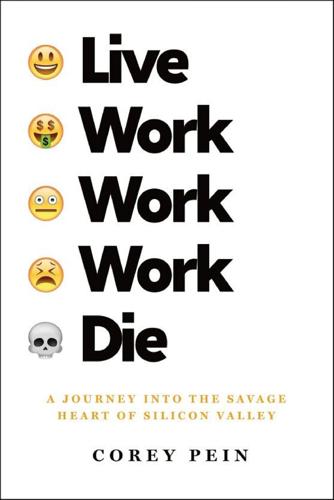
Live Work Work Work Die: A Journey Into the Savage Heart of Silicon Valley
by
Corey Pein
Published 23 Apr 2018
The spurious notion that there was some discernible Law of Business Administration to be found within such miscellaneous instances of human behavioral change dated to 1997, when a Harvard Business School professor published his theory of “disruptive innovation.” Another Harvardite, Mark Zuckerberg, enshrined disruption as the operating principle of Facebook, commanding employees to “move fast and break things.” Later techie manifestos boiled the scholarly pretense down to its vulgar essence: “Break shit.” I needed to look like someone who was ready to break shit. I procured a bright yellow T-shirt that proclaimed, in big block letters, IT’S TIME FOR PLAN ฿—Bitcoin, of course. I wanted disruptive business cards, but I was on a budget.
…
“permanent revolution” Nevil Gibson, “In the Trenches of Silicon Valley,” April 29, 2014, Stuff.co.nz. “A revolution is not a dinner party” Weatherhead East Asian Institute, Columbia University. The spurious notion Jill Lepore, “The Disruption Machine,” New Yorker, June 23, 2014; Samantha Murphy, “Facebook Changes Its ‘Move Fast and Break Things’ Motto,” April 30, 2014, mashable.com; Katy Waldman, “Let’s Break Shit: A Short History of Silicon Valley’s Favorite Phrase,” December 5, 2014, slate.com. No More Woof Marc Lallanilla, “Speak, Fido: Device Promises Dog Translations,” January 3, 2014, livescience.com. Here again Uber pointed the way Erica Fink, “Uber’s Dirty Tricks Quantified: Rival Counts 5,560 Canceled Rides,” August 12, 2014, cnn.com.
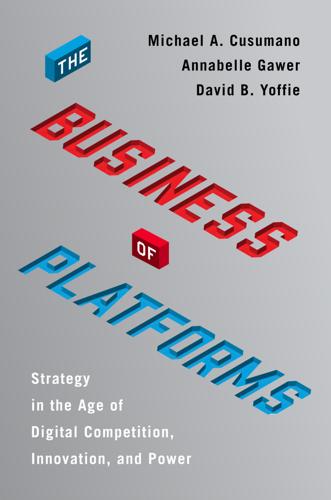
The Business of Platforms: Strategy in the Age of Digital Competition, Innovation, and Power
by
Michael A. Cusumano
,
Annabelle Gawer
and
David B. Yoffie
Published 6 May 2019
Chapter 6 Double-Edged Swords Harness Platform Power, but Don’t Abuse It The Mood Change Don’t Be a Bully Anticipate Antitrust and Competition Concerns Balance Openness with Trust Privacy, Fairness, and Fraud The Workforce Not Everyone Should Be a Contractor Self-Regulate Work with Regulators Before They Pounce Key Takeaways for Managers and Entrepreneurs Quotes from Mark Zuckerberg, cofounder and CEO of Facebook: 2009: “Move fast and break things.”1 2018: “We did not take a broad enough view of our responsibility, and that was a big mistake.”2 Successful platforms inevitably acquire power. Platform power, like corporate power more generally, can take on different forms—economic but also social and political. How platform companies exercise that power reflects their position toward another crucial aspect of the business: platform governance. In the early stages, it may be desirable for start-ups to “move fast and break things,” as Facebook’s Mark Zuckerberg declared in 2009.
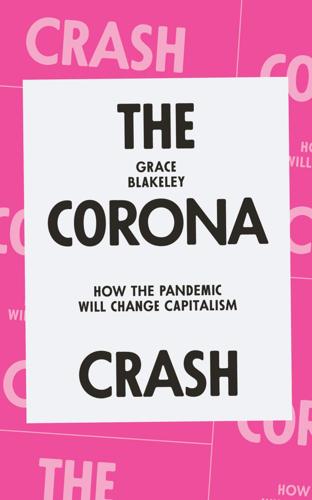
The Corona Crash: How the Pandemic Will Change Capitalism
by
Grace Blakeley
Published 14 Oct 2020
Sweezy, Monopoly Capital: An Essay on the American Economic and Social Order, New York: Monthly Review Press, 1966; John Bellamy Foster, ‘Monopoly-Finance Capital’, Monthly Review, vol. 58, no. 7, December 2006. 5 Ryan Banerjee and Boris Hofmann, ‘The rise of zombie firms: causes and consequences’, Bank for International Settlements Quarterly Review, September 2018. 6 Michalis Nikiforos, ‘When Two Minskyan Processes Meet a Large Shock: The Economic Implications of the Pandemic’, Levy Economics Institute, Policy Note 2020/1 (March 2020). 7 Martin Arnold and Brendan Greeley, ‘Central Banks Stimulus Is Distorting Financial Markets, BIS Finds’, Financial Times, 7 October 2019. 8 Jesse Colombo, ‘The US Is Experiencing a Dangerous Corporate Debt Bubble’, Forbes, 29 August 2018; Phillip Inman, ‘Corporate Debt Could Be the Next Sub-Prime Crisis, Warns Banking Body’, Guardian, 30 June 2019. 9 Matthew Watson, ‘Re-establishing What Went Wrong Before: The Greenspan Put as Macroeconomic Modellers’ New Normal’, Journal of Critical Globalisation Studies, no. 7 (2014): 80–101. 10 Alfie Stirling, Just about Managing Demand: Reforming the UK’s Macroeconomic Policy Framework, London: Institute for Public Policy Research [IPPR], 2018. 11 Marx, Capital, Vol. 1, p. 929. 12 Rana Foroohar, Don’t Be Evil: The Case Against Big Tech, New York: Currency/Random House, 2019. 13 See, e.g., Jonathan Taplin, Move Fast and Break Things: How Google, Facebook and Amazon Cornered Culture and Undermined Democracy, New York: Little, Brown, 2017, in which the author makes the now well-known claim that ‘Data is … the new oil’. 14 Foroohar, Don’t Be Evil; Martin Wolf, ‘Why Rigged Capitalism Is Damaging Liberal Democracy’, Financial Times, 18 September 2019. 15 Foroohar, Don’t Be Evil. 16 Matt Phillips, ‘Investors Bet Giant Companies Will Dominate After Crisis’, New York Times, 28 April 2020. 17 Matthew Vincent, ‘Loss-Making Tech Companies Are Floating Like It’s 1999’, Financial Times, 16 June 2019. 18 Martin Wolf, ‘Corporate Savings Are Contributing to the Savings Glut’, Financial Times, 17 November 2015; Peter Chen, Loukas Karabarbounis and Brent Neiman, ‘The Global Corporate Saving Glut: Long-Term Evidence’, VoxEU, CEPR Policy Portal, 5 April 2017. 19 Rana Forooha, ‘Tech Companies Are the New Investment Banks’, Financial Times, 11 February 2018. 20 Andres Diaz, ‘I’m a Small Business Owner.
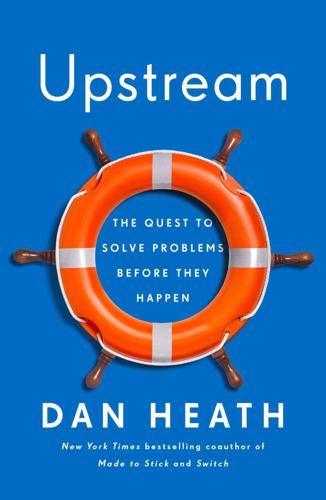
Upstream: The Quest to Solve Problems Before They Happen
by
Dan Heath
Published 3 Mar 2020
To state the obvious, there’s a vast difference between an “experiment” where some colleagues try out open-office seating in the Melbourne library and an “experiment” where scientists tinker with a species using gene-editing tools. Please do not mistake this chapter’s emphasis on experimentation for the ethos of “move fast and break things.” Upstream work hinges on humility. Because complexity can mount quickly even in simple interventions. Let’s take a final example that should be an easy one: trying to cut back on single-use plastic bags. Environmentalists consider these bags a leverage point, because even though they make up only a tiny fraction of the overall waste stream, they do disproportionate harm.
…
S., 227 Hawken, Paul, 40, 48, 51 Hazleton Middle School, 149, 150 health, health care, 10–14, 89, 113, 127–33, 189–92, 201–4 Accountable Care Organization, 201–2, 204 ambulances, 137–40, 142, 162 Building Healthy Communities, 110–13 cancer and, see cancer capitation payment model in, 203 C-sections, 33–38 doctor training and, 130 diabetes and, 192, 201–4, 240–41 domestic violence and, 83–86, 88 Emergency Medical Services, 137–40 emergency rooms, 126–37, 161–62 fee-for-service model in, 129, 192 hospital deaths, 124 infectious diseases, 191–92 intensive care, 145–46 life expectancy, 98–102, 113–14, 190–91 mastectomies, 180–81 Medicaid, 180, 196, 240 Medicare, 113, 180, 201, 240 MRI scans, 192, 203 Nurse-Family Partnership, 194–99, 237–38 nursing homes, see nursing homes prevention in, 189–92 and saving money, 127 social determinants of health, 128 social side of medicine, 132 vaccines, see vaccines Health Initiative, The, 11 heart attacks, 138–40, 142 Hendrix, Daniel, 48, 50 hepatitis, 187 Here & Now, 124–25 Herndon, Sally, 234–35 heroism, 62–63, 182, 243–44 Hockley, Dylan, 151 Hockley, Jake, 150–51 Hockley, Nicole, 146–47, 150–51 Hodel, Donald, 69–70 Holmes, Nick, 176–77 HomeAdvisor, 200–201 homelessness, 10, 16, 90–96, 108, 128, 208, 234, 236, 239 coordinated entry and, 92–93 evictions and, 96, 108, 234 functional zero and, 95 housing first and, 92 home service industry, 200–201 homicide, 83–85, 87, 88, 116–17, 121, 126, 162, 236 Homonoff, Tatiana, 187 Hood, Christopher, 161 horses, 32–33 hospitals, 201 deaths at, 124 Emergency Medical Services, 137–40 emergency rooms, 126–37, 161–62 intensive care units, 145–46 see also health, health care “hot tub” conversations, 233 household repairs, 199–200 HUD (Department of Housing and Urban Development), 91–93 Hug-a-Hero Dolls, 229–31, 233 Human Dimension, 130 humility, 185 hurricanes, 9–10, 223 Hurricane Ivan, 218–19 Hurricane Katrina, 213–20 Hurricane Pam simulation, 214–20 Hynd, Noel, 100 IBM, 140–42 Iceland, 75–81, 125, 231, 239 ICUs (intensive care units), 145–46 “If You See Something, Say Something” campaign, 142 Imber, Amantha, 177–79 immigrants, 112 impulsivity, and violence, 117, 120–21, 123 inattentional blindness, 30 India, 177 injuries: athletic, 21–23, 29 from falling branches, 175–76 from lifting and transferring patients in nursing homes, 193–94 playground, 175 Innovative Emergency Management (IEM), 213–14, 220 Institute for Healthcare Improvement, 37, 234 insulin, 192 Intel, 168 Interface, 39–40, 48–53 internet, see computers and internet Internet of Things, 142 invasive species, 171–74, 176–77, 180 Inventium, 177–78 Inventology (Kennedy), 232 Island Conservation, 176, 184 Iton, Anthony, 97–102, 110 Jaeger, Jennifer, 91–96 Japan, 211 earthquakes in, 140 Jeanne Geiger Crisis Center, 83, 84n, 85 Jordan, Michael, 183 Kahneman, Daniel, 158–59 Kaiser Permanente (KP), 203 Kay, Allen, 142 Kennedy, Pagan, 232 Kenwood Academy High School, 24 Khosrowshahi, Dara, 3 Kirby, Elizabeth, 23–24 Kleffman, Sandy, 98 Koskinen, John, 208–11 laptop power cord, 58, 231–32 Las Vegas, 127n lawsuit data patterns, 175, 184 lazy bureaucrats, 166, 169 Lederberg, Joshua, 227, 231 legitimacy, 43 Less Medicine, More Health (Welch), 143 leverage, 115–33 life expectancy, 98–102, 113–14, 190–91 life preservers, 6–7 light switch, 57–58 Lilly, Jonathan, 202 LinkedIn, 135–37 Loblaw, David Robert, 212 Los Angeles Dodgers, 100–101 Los Angeles Times, 64 Lowlevel Windshear Alert Systems (LLWAS), 211 Luca, Michael, 159–60 Ludwig, Jens, 116, 154, 250 Maalin, Ali Maow, 15 Macleod, John, 141–42 Macquarie Island, 171–74, 176, 177n macro and micro, 236–37 macro trends, 154, 161, 162, 167 Marisa, Rich, 57–58 mastectomies, 180–81 Mayor’s Challenge, 90 McCannon, Joe, 89, 163, 238 McCutchen, Aamirah, 130–31 Meadows, Donella, 174–76, 179, 187, 188 Medicaid, 180, 196, 240 Medicare, 113, 180, 201, 240 medicine, see health, health care meetings, 183–84 Mehrotra, Vikas, 177 Meltzer, Michael, 227 Mexico City, 15 mice and rats, on Macquarie Island, 171–74, 176 Milkman, Harvey, 79 Miller, Dale, 42–43 misalignment, 161, 68–69 Molina, Mario, 65–67 Montreal Protocol, 66, 69 Moodey, Tucker, 2–3 Moon landing, 226–28 Morrissey, Larry, 90–91, 94 Mostashari, Farzad, 202 mothers: Nurse-Family Partnership and, 194–99, 237–38 parental leave for, 13 “move fast and break things” ethos, 185 “move your chair” moments, 41, 49, 53 MRI scans, 192, 203 Mullainathan, Sendhil, 59–60 NASA, 226–28 National Highway Traffic Safety Administration, 47 National Oceanic and Atmospheric Administration (NOAA), 70 National Office Management Association, 31 natural disasters, see disasters and disaster preparedness Nature, 8, 66, 68 Nautilus, 227 navigation analogy, 179–80 negative unintended consequences, 169, 171–88, 204 neighborhoods, 97–102, 106, 110–13 Network for College Success, 25 New England Patriots, 21–22 New Orleans, La.: Hurricane Ivan and, 218–19 Hurricane Katrina and, 213–20 New York, N.Y.: crime in, 162–66 falling branches in, 175–76 lawsuit data patterns in, 175, 184 New York City Police Department (NYPD), 162–66, 168 New Yorker, 83, 84n New York Times, 32, 48, 142 New York University (NYU), 133 Nike, 204 Nimoy, Leonard, 207–8, 225–26 9/11 attacks, 142, 213 911 calls, 83, 137–40 normalization, 30–31, 32 Northwell Health, 137–40 Norway, 13–14 nuclear weapons, 225, 227 Nurse-Family Partnership (NFP), 194–99, 237–38 nurses, 60–62, 63 nursing homes, 138, 139 lifting and transferring patients in, 193–94 Okerstrom, Mark, 4–5, 63 Olds, David, 194–95 O’Neill, Ryan, 1–3 Onie, Rebecca, 11 On the Media, 31 open-office plans, 177–80, 185 ownership, 38, 39–55, 70 Ozone Hole: How We Saved the Planet, 66 ozone layer, 65–70 P3, 22 paired metrics, 168, 203 parental leave, 13 Parker, Janet, 16n parking place, 232, 233 parks, 110–11, 112 tree pruning in, 175–76 Parto do Princípio, 35–36 patience and impatience, 234–35 Pavlin, Julie, 191–92 pediatricians, and automobile safety, 44–47 Pediatrics, 44, 46, 47, 48 peripheral vision, 30 Perla, Rocco, 11 Permanente Medical Group, 124 pest control, household, 199 phishing emails, 220–22 phobias, 30–31, 32 Pickering, Roscoe, 46–47 Pill Model, 237–39 Pina, Frank, 156 plastic bags, 185–88 police, 5–6, 8, 122n, 154 car accidents and, 6, 16 data and, 122n, 162–63 domestic violence and, 83, 86–88 New York City Police Department, 162–66, 168 Nurse-Family Partnership and, 196 polio vaccine, 45 Pollack Harold, 116, 117, 121, 123 Ponder, Paige, 25, 27–28, 88 Poppy + Rose, 193 poverty, 59, 97, 106 see also food assistance; homelessness Pratt, Lisa, 228 pre-gaming, 168–69 prevention, see upstream actions Princeton University, 43–44 proactive efforts, see upstream actions problem(s): addressing the wrong ones, 32–33 bandwidth and, 58–60 big and little, 58–59 blindness to, 21–38, 42, 70, 76, 128, 147, 232 designating something as, 32 early warning of, 135–51 longevity of, 233 ownership of, 38, 39–55, 70 slack and, 63, 67 Project ASSIST, 234 Project Parto Adequado, 37 prophet’s dilemma, 226 proximity, 133, 236 psychological standing, 43–44 quantity—and quality-based measures, 168 rabbits, on Macquarie Island, 171–74 Rad, Bex, 104 radiologists, 29–30 Ramirez-Di Vittorio, Anthony (Tony D), 117–20, 122, 249 RAND Corporation, 12, 180 randomized control trial (RCT), 121, 237 rape, 164–66 date rape on campus, 42–43 Ratner, Rebecca, 43 rats and mice, on Macquarie Island, 171–74, 176 reaction, see downstream actions Reagan, Ronald, 70 Reply All, 163–64 restoration, 10, 153 Reyes, Sarah, 112 Reykjavík, Iceland, 75–81, 125, 231, 239 Ridenour, Brandon, 200–201 Ringelestein, Don, 221–23 ripple effects, 169, 174, 197 a rising tide lifts all boats, 154, 161, 162, 168 Rocchetti, Carmela, 128–33 Rockford, Ill., 90–96, 108, 236, 239 ROI (return on investment), 127 Romania, 81 ROSC (return of spontaneous circulation), 139 Rowland, F.
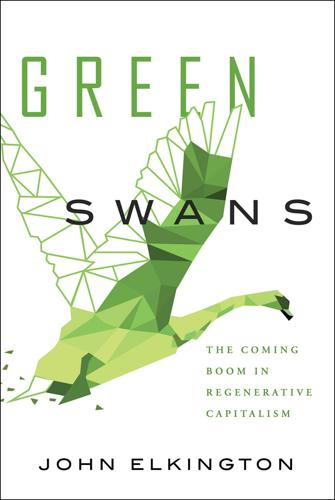
Green Swans: The Coming Boom in Regenerative Capitalism
by
John Elkington
Published 6 Apr 2020
This possibility is increasingly reality, welcomed by many but feared by some of those who know most about the potential for misuse and abuse. Growing concerns are now being expressed about the potential unintended consequences—and ethics—of this emerging set of industrial revolutions. The prevailing “move fast and break things” philosophy in Silicon Valley has proved problematic as new technologies undermine fundamental things like democracy. The shuttering of Google’s much-vaunted Advanced Technology External Advisory Council almost as soon as it was formed was a worrying sign that such companies cannot be trusted to do this coherently on their own.2 This is a real problem, given that facial recognition is an object lesson both in how rapidly new technologies can sweep through our societies and how, in the process, they create consequences unforeseen by those who spawned them.
…
When I Googled unintended consequences, for example, I stumbled across an organization based in our own building, London’s Somerset House.22 Doteveryone notes that “technology has introduced us to new knowledge, wonder and ingenuity. It has made our lives easier, faster, and more fun.” Then came the but. “But at the same time, many of the social harms of digital technologies built with a move fast and break things ethos—from its impact on social interactions to the results of national elections and large-scale hacks—are now becoming apparent.” Then a more positive but. “But there are a lot of exciting opportunities to do better.” Doteveryone has developed an event format that allows innovators to think about impact and potential unintended consequences, early and often.
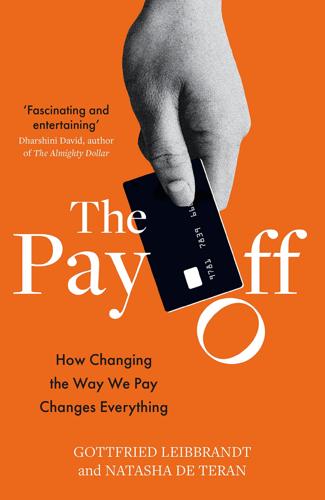
The Pay Off: How Changing the Way We Pay Changes Everything
by
Gottfried Leibbrandt
and
Natasha de Teran
Published 14 Jul 2021
Funds that were received through illegal or unethical business transactions are disgorged, or paid back, to those affected by the action. 10 TOR stands for The Onion Router, so-named because the IP packets are wrapped in several layers of encryption that are removed one by one by the routers it passes through, making traffic virtually untraceable to the computer doing the browsing. Websites accessible through the TOR protocol carry the ‘.onion’ extension instead of .com, .org and so on. 23. BigTech and banks enter the fray If you’ve always believed that the world’s monetary system should sit in the hands of a thirty-something billionaire who likes moving fast and breaking things, give lots of ‘likes’ () to Facebook’s foray into crypto. In June 2019, Facebook announced plans to issue its own cryptocurrency, the Libra. Garnering front-page headlines in all the business dailies, Libra’s mission statement was a bold one: ‘A simple global currency and financial infrastructure that would empower billions of people, reinvent money and transform the global economy so that people everywhere can live better lives.’
…
The initial euphoria surrounding Libra didn’t last long: whether due to public sector pressure or common sense, none of the three blue-chip payment companies (Visa, Mastercard, PayPal) actually signed up as founding members. For a good while the project seemed to be dormant, boasting little more than a snazzy website and a cast of founding members dominated by venture capitalists and blockchainers. Then – far from moving fast and breaking things – Libra started to rein in its ambitions (it preferred to use the term ‘augmenting’). In April 2020 it announced that, instead of tying Libra to a basket of currencies, it would offer digital versions of single currencies, such as Libra dollars and Libra euros. This would certainly be easier for consumers: we wouldn’t need to convert prices into and out of a new unit of account every time we bought a pair of socks.
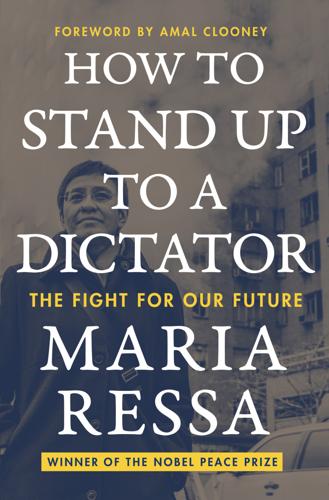
How to Stand Up to a Dictator
by
Maria Ressa
Published 19 Oct 2022
Unlike the other three, Rappler went all in, deciding to place all our stories on Instant Articles, rather than our website, to give us clear metrics—before and after. But Instant Articles failed miserably, and we soon stopped. Facebook acknowledged that it had a lot of work to do for news companies. Its “Move fast, break things” mindset meant that it asked companies and people to join new projects before thinking them through. Mark’s pitch for Internet.org and its supposed advantages for developing countries used the same tactic he still uses today: the parsing of information in supposedly independent studies that would sway public opinion.
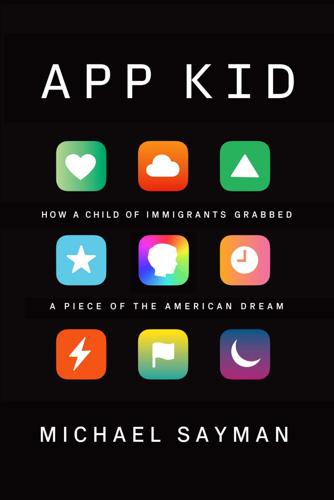
App Kid: How a Child of Immigrants Grabbed a Piece of the American Dream
by
Michael Sayman
Published 20 Sep 2021
It was about the tenth time she’d high-fived someone while we’d been walking around, and I finally had to ask what was up. Emily pointed to a giant LCD screen in the middle of the courtyard where we were standing: “#HighFiveFriday” scrolled across in neon letters. Ohhh. “I want to work here full-time,” I whispered to my mom. I’d always followed Facebook in the news and I knew a bit about the “Move fast and break things” company culture, but until that day, I’d never realized it would be so…happy-shiny! It was definitely where I belonged. I’d had a queasy stomach all day, wondering when I’d get to meet Mark Zuckerberg. Finally, when the campus had mostly emptied out—it was Friday, and people apparently left early for the weekend—Emily got a message on her phone.
…
But the way most of us saw it from the inside, I think, was: Hey, when you have 1.23 billion customers (as Facebook did at the time—they’ve now surpassed 2.8 billion), not all of them can be happy customers. It was easier, then, to dismiss Facebook’s missteps as unfortunate by-products of the company’s “Move Fast and Break Things” ethos. With that caveat, I want to take a moment to talk about why Facebook was, and probably still is, a great place to work. If you’ve heard of Moore’s Law, you know that computer processing speeds have doubled every two years for about half a century now (though that will probably end soon).
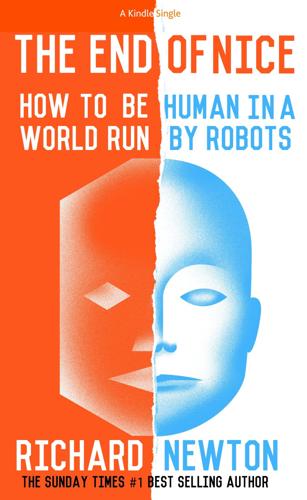
The End of Nice: How to Be Human in a World Run by Robots (Kindle Single)
by
Richard Newton
Published 11 Apr 2015
The team of founders – typically two or three people at the outset – sell a small percentage of their business to the program in return for a small amount of cash plus the intense mentoring, coaching, resources, access to investors and relevant industry experts and potential customers. “Fail harder” urges a poster tacked to one wall. Others ask of you: “Move Fast and Break Things” and “What Would You Do If You Weren’t Afraid?”. In start-up-land, failure has become a component of the methodology for success. The Lean Startup, a book that codifies the start-up business approach, has become the management textbook for building success on failure. “You need to create a discipline to enable you to fail and learn fast,” said its author, Eric Ries.
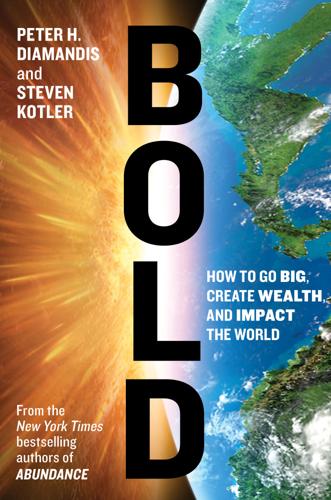
Bold: How to Go Big, Create Wealth and Impact the World
by
Peter H. Diamandis
and
Steven Kotler
Published 3 Feb 2015
These facts also tell us that those exponential entrepreneurs with “fail forward” as their de facto motto have an incredible advantage. If people don’t have the space to fail, then they don’t have the ability to take risks. At Facebook, there is a sign hanging in the main stairwell that reads: “Move fast, break things.” This kind of attitude is critical. If you’re not incentivizing risk, you’re denying access to flow—which is the only way to keep pace in a breakneck world. Rich environment, the next environmental trigger, is a combination platter of novelty, unpredictability, and complexity—three elements that catch and hold our attention much like risk.
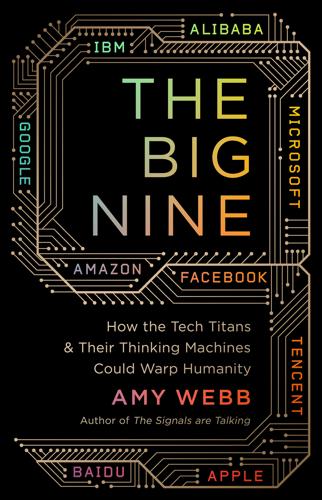
The Big Nine: How the Tech Titans and Their Thinking Machines Could Warp Humanity
by
Amy Webb
Published 5 Mar 2019
Artificial intelligence has the mind of its tribe, prioritizing its creators’ values, ideals, and worldviews. But it is also starting to develop a mind of its own. The Tribe Leaders AI’s tribe has a familiar, catchy rallying cry: fail fast and fail often. In fact, a version of it—“move fast and break things”—was Facebook’s official company motto until recently. The idea of making mistakes and accepting failures is in stark contrast to America’s enormous corporations, which avoid risk and move at a snail’s pace, and it’s a laudable aim. Complicated technology like AI demands experimentation and the opportunity to fail over and over in pursuit of getting things right.
…
See also Turing, Alan ET City Brain, 69 Ethics: AI company culture and, 255; Baidu focus on, 129; IBM articles regarding, 129; integrating into non-ethics university courses, 256; screening for in G-MAFIA future hiring practices, 255; university courses, 61, 63 Euclid, first algorithm and, 18 Evolutionary algorithms, 144, 164–165; Darwinian natural selection and, 144, 145 Facebook, 3, 70, 85, 96, 154; adult users, 87; advertising revenue, 71; in catastrophic scenario of future, 209, 216, 223; Chinese ban, 76; core values, 100; data policies, 94; exclusion of conservative news on, 57; Intel partnership, 92; “move fast and break things” original motto, 53; number of users, 71; in optimistic scenario of future, 159, 171; Portal, 54; post-Cambridge Analytica debacle apology, 54, 94; post-Cambridge Analytica scandal ethics team, 129; in pragmatic scenario of future, 186, 187, 188, 193, 201–202; psychological experimentation on users, 138; RNC bias accusations against, 56–57; senior leadership, 56; 2016 Presidential election and, 138; Website logins and, 88 Fake news, proliferation of in pragmatic scenario of future, 198 Fan Hui, 43–44, 45; versus DeepMind, 43–44 Fifth Generation, 38 Filmmaking, optimistic scenario of future and, 165–166 Future and AI, catastrophic scenario of, 151–152, 207–229; AGI system lockouts, 224; AI totalitarianism, 223; Amazon-hosted Food Stamp Program, 218; Amazon households, 216, 217–218, 219, 224, 225; Amazon Housing/Homes, 217–218, 219; Americans geographically locked in by China, 227; Apple households, 216, 218, 219, 224, 225; Apple PDRs, 216; blue-collar job glut, 221; blurring of work and personal data, 208; Chief AI Officers, 226; Chinese hackers, 215; climate change consequences, 228–229; corporate ownership of PDRs, 209; crime, 222; digital caste system, 209, 218; economic chimera of humans, 225; education and Salesforce core values, 221–222; extermination of U.S. and allied populations by Chinese ASI, 229; G-MAFIA and preservation of democratic ideals, 211; G-MAFIA diversity mantra, 208; G-MAFIA nonexistent inclusion efforts, 208; G-MAFIA shrinkage to GAA, 223; G-MAFIA sole owners of PDRs, 208, 216; G-MAFIA transactional relationship with U.S. government, 212; GAA-U.S.
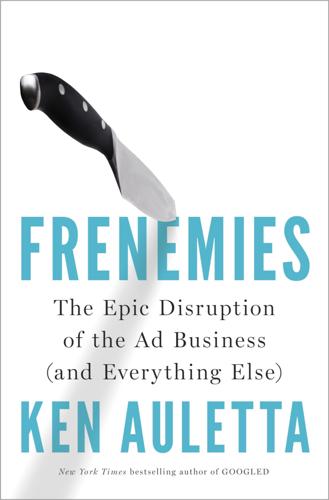
Frenemies: The Epic Disruption of the Ad Business
by
Ken Auletta
Published 4 Jun 2018
At their peril, agencies forget that Silicon Valley companies like Facebook take pride in being disrupters, in reducing costs and better serving customers by offering less “friction” and shoving aside what they see as superfluous middlemen. Mark Zuckerberg’s famous corporate mantra at Facebook used to be “Move fast and break things.” (In 2014, Facebook changed it to “Move fast with stable infra,” which doesn’t have quite the same edge to it, no doubt deliberately.) Unlike most agencies, Elliot Schrage, Facebook’s vice president of global communications, marketing, and public policy says, Facebook takes “the Wayne Gretzky approach to business.
…
New York: Basic Books, 2004. Stengel, Jim. Grow: How Ideals Power Growth and Profit at the World’s Greatest Companies. New York: Crown, 2011. Steyer, James P. Talking Back to Facebook: The Common Sense Guide to Raising Kids in the Digital Age. New York: Scribner, 2012. Taplin, Jonathan. Move Fast and Break Things: How Facebook, Google, and Amazon Cornered Culture and Undermined Democracy. Boston: Little, Brown and Company, 2017. Tungate, Mark. Adland: A Global History of Advertising. London: Kogan Page Limited, 2007. Wakeman, Frederic. The Hucksters. New York: Rinehart & Company, 1946. Wind, Yoram (Jerry), and Catharine Findiesen Hays.
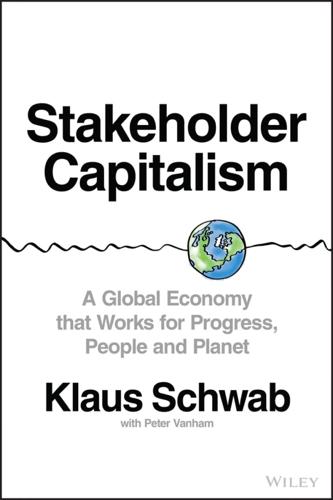
Stakeholder Capitalism: A Global Economy That Works for Progress, People and Planet
by
Klaus Schwab
Published 7 Jan 2021
Most fundamentally, he believed, Big Tech lacked the core values so crucial to an earlier generation of businesses such as Mærsk in Europe, or earlier entrepreneurs in the Bay Area like his father, who ran a clothing store chain called Stuart's. For companies like these, trust, reputation, and reliability were hardly marketing buzzwords. They were central to the functioning of their business. For a new generation of tech companies, which were a product of the Fourth Industrial Revolution, the mantras were “move fast and break things”17 and “ask for forgiveness, rather than permission.”18 Traditional values seemed pointless and outdated, when in the new world of business everything was malleable, mutable, and re-makeable. As a business leader with roots in both his city and his industry, Benioff realized this was a problem, since from a company's values, everything else followed.
…
Notes 1 “Mærsk Hails Growth in Global Trade,” Financial Times, November 2013, https://www.ft.com/content/35b9748e-4c55-11e3-923d-00144feabdc0. 2 “Emission Reduction Targets for International Aviation and Shipping,” Director General for Internal Studies, European Parliament, November 2015, http://www.europarl.europa.eu/RegData/etudes/STUD/2015/569964/IPOL_STU(2015)569964_EN.pdf. 3 Interview with Jim Snabe by Peter Vanham, August 2019. 4 Trailblazer: The Power of Business as the Greatest Platform for Change, Marc Benioff, Random House, October 2019, p. 12. 5 “Dreams and Details”, Jim Snabe and Mikael Trolle, Spintype, 2018, p. 128. 6 Dreams and Details, Jim Snabe and Mikael Trolle, Spintype, 2018, pp. 128–129. 7 Interview with Jim Snabe by Peter Vanham, August 2019. 8 “SAP's Global Revenue from 2001 to 2018,” Statista, March 2019, https://www.statista.com/statistics/263838/saps-global-revenue-since-2001/. 9 “SAP Integrated Report: 2020 Targets Met Early,” SAP, March 2018, https://news.sap.com/2018/03/sap-integrated-report-2020-targets-met-early/. 10 “The Values Are Constant in a Complex World,” Mærsk, June 2019, https://www.Mærsk.com/news/articles/2018/06/29/the-values-are-constant-in-a-complex-world. 11 “Tax Principles,” Mærsk, https://www.maersk.com/about/tax-principles. 12 “A New Bar for Responsible Tax,” The B Team, https://bteam.org/assets/reports/A-New-Bar-for-Responsible-Tax.pdf. 13 Sustainability Report 2019, Maersk, https://www.maersk.com/about/sustainability/reports 14 2017: Sale of Mærsk Tankers, 2018: Sale of Mærsk Oil, 2019: Mærsk Drilling listed on the Copenhagen stock exchange, https://www.Mærsk.com/about/our-history/explore-our-history. 15 Interview with Jim Snabe by Peter Vanham, August 2019. 16 A.P. Moller – Mærsk, Sustainability Report 2018, February 2019, pp.18–19. 17 “Facebook Strategy Revealed: Move Fast And Break Things!”, Henry Blodget, Business Insider, March 2010, https://www.businessinsider.com/henry-blodget-innovation-highlights-2010-2?r=US&IR=T 18 “Want to Succeed in Life? Ask for Forgiveness, Not Permission”, Bill Murphy, Inc. January 2016, https://www.inc.com/bill-murphy-jr/9-words-to-live-by-its-always-better-to-beg-forgiveness-than-ask-permission.html 19 “Competition Is for Losers,” Peter Thiel, Wall Street Journal, September 2014, https://www.wsj.com/articles/peter-thiel-competition-is-for-losers-1410535536. 20 “Antitrust Procedures in Abuse of Dominance,” European Commission, August 2013, https://ec.europa.eu/competition/antitrust/procedures_102_en.html. 21 “If You Want to Know What a US Tech Crackdown May Look Like, Check Out What Europe Did,” Elizabeth Schulze, CNBC, June 2019, https://www.cnbc.com/2019/06/07/how-google-facebook-amazon-and-apple-faced-eu-tech-antitrust-rules.html. 22 “Why San Francisco's Homeless Population Keeps Increasing,” Associated Press, May 2019, https://www.marketwatch.com/story/the-homeless-population-in-san-francisco-is-skyrocketing-2019-05-17. 23 “A Decade of Homelessness: Thousands in S.F.
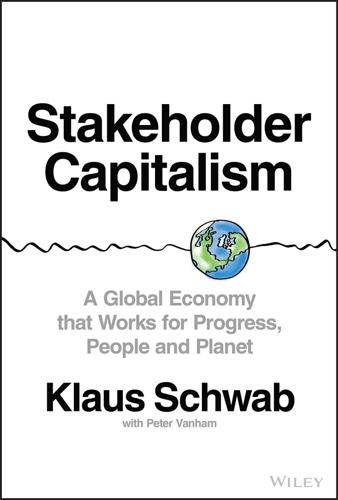
Stakeholder Capitalism: A Global Economy That Works for Progress, People and Planet
by
Klaus Schwab
and
Peter Vanham
Published 27 Jan 2021
Most fundamentally, he believed, Big Tech lacked the core values so crucial to an earlier generation of businesses such as Mærsk in Europe, or earlier entrepreneurs in the Bay Area like his father, who ran a clothing store chain called Stuart's. For companies like these, trust, reputation, and reliability were hardly marketing buzzwords. They were central to the functioning of their business. For a new generation of tech companies, which were a product of the Fourth Industrial Revolution, the mantras were “move fast and break things”17 and “ask for forgiveness, rather than permission.”18 Traditional values seemed pointless and outdated, when in the new world of business everything was malleable, mutable, and re-makeable. As a business leader with roots in both his city and his industry, Benioff realized this was a problem, since from a company's values, everything else followed.
…
Notes 1 “Mærsk Hails Growth in Global Trade,” Financial Times, November 2013, https://www.ft.com/content/35b9748e-4c55-11e3-923d-00144feabdc0. 2 “Emission Reduction Targets for International Aviation and Shipping,” Director General for Internal Studies, European Parliament, November 2015, http://www.europarl.europa.eu/RegData/etudes/STUD/2015/569964/IPOL_STU(2015)569964_EN.pdf. 3 Interview with Jim Snabe by Peter Vanham, August 2019. 4 Trailblazer: The Power of Business as the Greatest Platform for Change, Marc Benioff, Random House, October 2019, p. 12. 5 “Dreams and Details”, Jim Snabe and Mikael Trolle, Spintype, 2018, p. 128. 6 Dreams and Details, Jim Snabe and Mikael Trolle, Spintype, 2018, pp. 128–129. 7 Interview with Jim Snabe by Peter Vanham, August 2019. 8 “SAP's Global Revenue from 2001 to 2018,” Statista, March 2019, https://www.statista.com/statistics/263838/saps-global-revenue-since-2001/. 9 “SAP Integrated Report: 2020 Targets Met Early,” SAP, March 2018, https://news.sap.com/2018/03/sap-integrated-report-2020-targets-met-early/. 10 “The Values Are Constant in a Complex World,” Mærsk, June 2019, https://www.Mærsk.com/news/articles/2018/06/29/the-values-are-constant-in-a-complex-world. 11 “Tax Principles,” Mærsk, https://www.maersk.com/about/tax-principles. 12 “A New Bar for Responsible Tax,” The B Team, https://bteam.org/assets/reports/A-New-Bar-for-Responsible-Tax.pdf. 13 Sustainability Report 2019, Maersk, https://www.maersk.com/about/sustainability/reports 14 2017: Sale of Mærsk Tankers, 2018: Sale of Mærsk Oil, 2019: Mærsk Drilling listed on the Copenhagen stock exchange, https://www.Mærsk.com/about/our-history/explore-our-history. 15 Interview with Jim Snabe by Peter Vanham, August 2019. 16 A.P. Moller – Mærsk, Sustainability Report 2018, February 2019, pp.18–19. 17 “Facebook Strategy Revealed: Move Fast And Break Things!”, Henry Blodget, Business Insider, March 2010, https://www.businessinsider.com/henry-blodget-innovation-highlights-2010-2?r=US&IR=T 18 “Want to Succeed in Life? Ask for Forgiveness, Not Permission”, Bill Murphy, Inc. January 2016, https://www.inc.com/bill-murphy-jr/9-words-to-live-by-its-always-better-to-beg-forgiveness-than-ask-permission.html 19 “Competition Is for Losers,” Peter Thiel, Wall Street Journal, September 2014, https://www.wsj.com/articles/peter-thiel-competition-is-for-losers-1410535536. 20 “Antitrust Procedures in Abuse of Dominance,” European Commission, August 2013, https://ec.europa.eu/competition/antitrust/procedures_102_en.html. 21 “If You Want to Know What a US Tech Crackdown May Look Like, Check Out What Europe Did,” Elizabeth Schulze, CNBC, June 2019, https://www.cnbc.com/2019/06/07/how-google-facebook-amazon-and-apple-faced-eu-tech-antitrust-rules.html. 22 “Why San Francisco's Homeless Population Keeps Increasing,” Associated Press, May 2019, https://www.marketwatch.com/story/the-homeless-population-in-san-francisco-is-skyrocketing-2019-05-17. 23 “A Decade of Homelessness: Thousands in S.F.
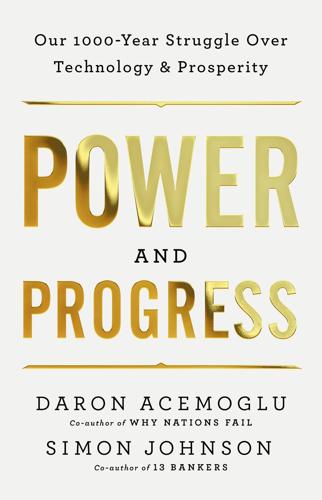
Power and Progress: Our Thousand-Year Struggle Over Technology and Prosperity
by
Daron Acemoglu
and
Simon Johnson
Published 15 May 2023
Meanwhile, antiauthoritarianism morphed into a fascination with “disruption,” meaning that disrupting existing practices and livelihoods was welcome or even encouraged. The precise words differed, but the underlying thinking was reminiscent of British entrepreneurs in the early 1800s, who felt fully justified in ignoring any collateral damage they created along their path, especially on workers. Later, Mark Zuckerberg would make “Move fast and break things” a mantra for Facebook. An elitist approach came to dominate almost the entire industry. Software and programming were things in which very talented people excelled, and the less able were of limited use. Journalist Gregory Ferenstein interviewed dozens of tech start-up founders and leaders who expressed these opinions.
…
This was essentially the same approach advocated by Mark Zuckerberg when he told Time magazine, “Whenever any technology or innovation comes along and it changes the nature of something, there are always people who lament the change and wish to go back to the previous time. But, I mean, I think that it’s so clearly positive for people in terms of their ability to stay connected to folks.” Another aspect of the AI illusion, the elevation of disruption as a virtue encapsulated by “move fast and break things,” has accelerated this antidemocratic turn. Disruption came to mean any negative effects on others, including workers, civil society organizations, traditional media, or even democracy. It was all fair game, in fact encouraged, so long as it was a consequence of exciting new technologies and consistent with bigger market share and moneymaking.
…
Effective taxes on equipment, software, and other capital, as well as on labor, are estimated in Acemoglu, Manera, and Restrepo (2020), and the numbers we report are from their paper. On the evolution of US federal support for research, see Gruber and Johnson (2019). Digital Utopia. “Show me a problem…” is from Gates (2021, 14). Zuckerberg’s early motto, “Move fast and break things,” is reported in Blodget (2009). A detailed discussion of the attitudes we summarize is in Ferenstein (2017), which also reports the statements “very few are…” and “I’ve become an expert.…” Not in the Productivity Statistics. On innovation slowing down, see Gordon (2016) and Gruber and Johnson (2019).
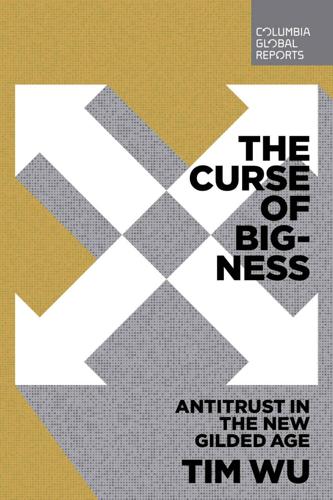
The Curse of Bigness: Antitrust in the New Gilded Age
by
Tim Wu
Published 14 Jun 2018
The chaos made it easy to think that bigness—the economics of scale—no longer really mattered in the new economy. If anything, it seemed that being big, like being old, was just a disadvantage. Being big meant being hierarchical, industrial, dinosaurlike in an age of fleet-footed mammals. Better maybe to stay small and stay young, to move fast and break things. All this suggested that in cyberspace, there could be no such thing as a lasting monopoly. The internet would never stand for it. Business was now moving at internet speed: A three-year-old firm was middle-aged; a five-year-old firm almost certainly near death. “Barriers to entry” was a twentieth century concept.
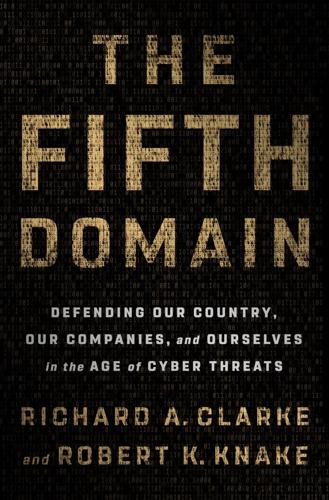
The Fifth Domain: Defending Our Country, Our Companies, and Ourselves in the Age of Cyber Threats
by
Richard A. Clarke
and
Robert K. Knake
Published 15 Jul 2019
Venture Tourism and Thin Peanut Butter If anyone can be blamed for this state of affairs it is Silicon Valley. And if we reserve a special place in cybersecurity hell for the enablers of vice, then Sand Hill Road should burn. The tech start-up battle cry of “Move fast and break things,” originally coined by Facebook CEO Mark Zuckerberg, has been pushed by the venture capitalists of the Valley in an effort to build large, monolithic monopolies at the expense of consumers, regulations, ethics, and cybersecurity. And move fast and break things they did, from the now antiquated concept of stable employment to a free press to U.S. elections. All the while, the push to get products out the door and fix security later has led us to our current predicament.
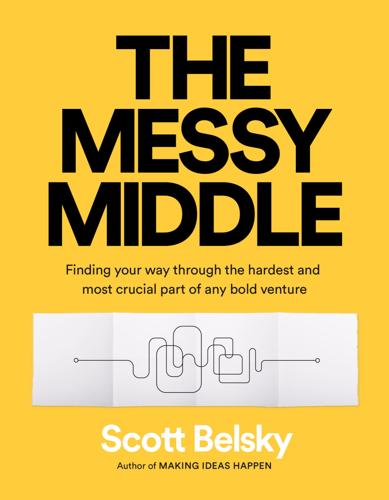
The Messy Middle: Finding Your Way Through the Hardest and Most Crucial Part of Any Bold Venture
by
Scott Belsky
Published 1 Oct 2018
If you’re able to just try things rather than spend time thinking about them, you rapidly learn if they work or not and can course-correct. But for all the benefits of rapidly testing ideas, iterating quickly, and optimizing for efficiency, sometimes you need to force yourself to slow down. The creative aspects of some projects are best cooked slowly. Facebook’s infamous “move fast and break things” mantra, which graces everything from posters to coasters around Facebook’s campus, establishes a mind-set in technology and start-ups that the best path forward is always the fastest one, even when it’s reckless. This line of thought has inspired countless practices for how to manage projects, conduct meetings, and develop new products.
…
Chefs will tell you that the secret behind many of the greatest dishes is patience. When you cook something slowly at a lower heat for a longer time, the flavors and textures that marinate yield culinary masterpieces. Your own creations aren’t much different. At the opposite end of the spectrum from “moving fast and breaking things,” your creative endeavors need moments of your deep attention and patience. While we intuitively know that great accomplishments take time, we’re always anxious when the end is out of sight and the path of progress feels out of our control. Harvard psychologist Dan Gilbert, author of Stumbling on Happiness, argues that human brains are adapted to respond more to some threats than to others.
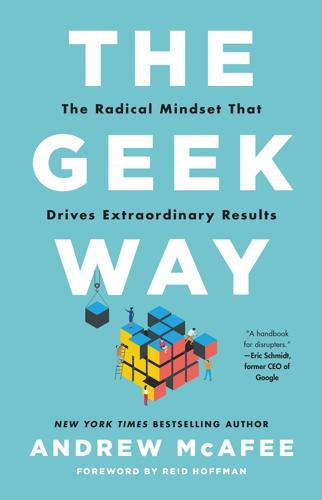
The Geek Way: The Radical Mindset That Drives Extraordinary Results
by
Andrew McAfee
Published 14 Nov 2023
Our Homo sapiens label isn’t wrong, but it misses the bigger point. We’re really Homo ultrasocialis. On the Road and into Space Modern business geeks are obsessed with speed because they see how it leads to faster learning and fewer liar’s clubs. As a result, they’re adamantly opposed to slowing down. Facebook’s original internal motto was “Move Fast and Break Things.” By the middle of the 2010s, however, many inside and outside the tech industry believed that was the wrong sentiment—one that was causing bad outcomes that reverberated far beyond Silicon Valley. The geek community realized that it needed to update its rallying cry. What it settled on was “Move Fast and Fix Things.”
…
Prkachin, “Social Modeling Influences on Sensory Decision-Theory and Psychophysiological Indexes of Pain,” Journal of Personality and Social Psychology, vol. 36, no. 8 (1978), 805–15. 53 cultural evolution can be very fast: Joseph Patrick Henrich, The Secret of Our Success: How Culture Is Driving Human Evolution, Domesticating Our Species, and Making Us Smarter (Princeton, NJ: Princeton University Press, 2016), 219–20. 54 “It’s our collective brains”: Henrich, The Secret of Our Success, 212. 55 “Move Fast and Break Things”: Henry Blodget, “Mark Zuckerberg on Innovation,” BusinessInsider, October 1, 2009, https://web.archive.org/web/20210209195313/www.businessinsider.com/mark-zuckerberg-innovation-2009-10?r=US&IR=T. 56 “I’ve researched and consulted on megaprojects”: Bent Flyvbjerg, “Make Megaprojects More Modular,” Harvard Business Review, November–December 2021, https://hbr.org/2021/11/make-megaprojects-more-modular. 57 Copenhagen’s City Circle Line: Flyvbjerg, “Make Megaprojects More Modular.” 58 partially opened in 2017: Nick Paumgarten, “The Second Avenue Subway Is Here!
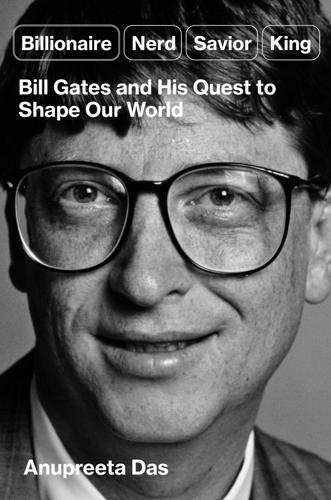
Billionaire, Nerd, Savior, King: Bill Gates and His Quest to Shape Our World
by
Anupreeta Das
Published 12 Aug 2024
“Silicon Valley is a mindset, not a location,” LinkedIn’s Hoffman once told the Financial Times newspaper.33 Midsize cities around America have taken the message; there are dozens of mayors pushing to revamp disused downtown business districts into slick mini–Silicon Valleys, wooing young start-ups with lower rents and tech giants with tax breaks. One reason why the Valley can be exclusionary is because it is so wedded to “disruption”—the idea that success comes to those who move fast and break things, and shake up business models, often without regard for consequences. “They have big ideas, but often they have very few ethics,” said Rosanne Siino, the former Netscape executive who now advises start-ups and teaches a class at Stanford about organizational dynamics. She described the Valley as a place where there is no conversation about ethics or any consideration of it.
…
In November 2023, a tussle at OpenAI, the leading artificial intelligence start-up, illustrated the fundamental tension between building a “change-the-world” technology with caution and guardrails and rushing to commercialize it with reckless ambition. The board members of the nonprofit that governed OpenAI who fired the company’s chief executive, Sam Altman, reportedly did so out of the concern that Silicon Valley’s move-fast-and-break-things ethos, applied to AI, could have enormous implications for humanity. But Altman—like Gates did with software—had spotted the endless market for AI applications and had pushed hard to move quickly to build a business around it. Within days, those directors had been ousted and Altman was back at the company, even more determined to use artificial intelligence for profit.
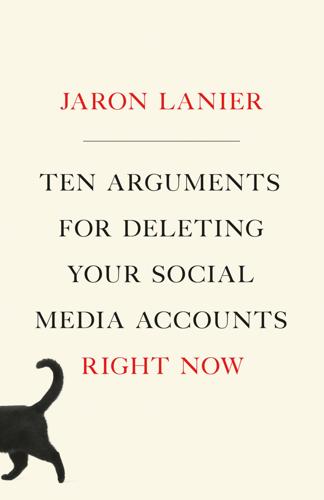
Ten Arguments for Deleting Your Social Media Accounts Right Now
by
Jaron Lanier
Published 28 May 2018
Is it because they are being pressured or because they feel that it’s the right thing to do? Probably a little of both. The companies are changing policies, hiring humans to monitor what’s going on, and hiring data scientists to come up with algorithms to avoid the worst failings. Facebook’s old mantra was “Move fast and break things,”3 and now they’re coming up with better mantras and picking up a few pieces from a shattered world and gluing them together. This book will argue that the companies on their own can’t do enough to glue the world back together. Because people in Silicon Valley are expressing regrets, you might think that now you just need to wait for us to fix the problem.
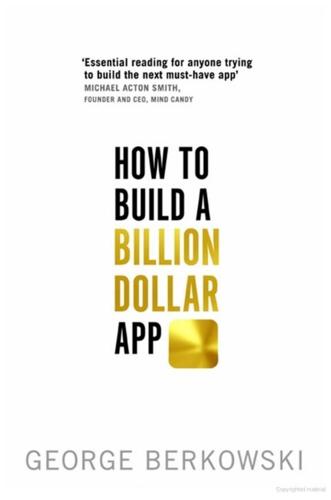
How to Build a Billion Dollar App: Discover the Secrets of the Most Successful Entrepreneurs of Our Time
by
George Berkowski
Published 3 Sep 2014
Within a few short years of its launch in 2006, the service was already a billion-dollar business.2 In short, small teams can run fast and innovate because of their size and the fact that they’re not reliant on the technology from other teams. Move Fast and Break Things Facebook created a culture of agility, promoting a philosophy to ‘move fast and break things’.3 Mark Zuckerberg explained the company’s ‘hacker way’ in a letter to investors:4 Hackers try to build the best services over the long term by quickly releasing and learning from smaller iterations rather than trying to get everything right all at once … We have the words ‘Done is better than perfect’ painted on our walls to remind ourselves to always keep shipping.
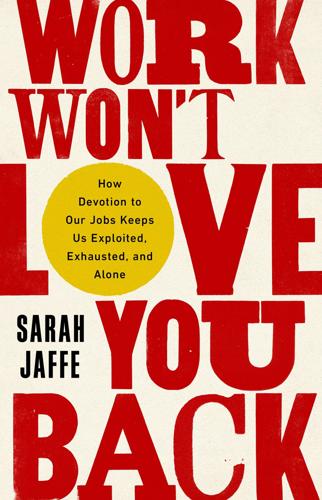
Work Won't Love You Back: How Devotion to Our Jobs Keeps Us Exploited, Exhausted, and Alone
by
Sarah Jaffe
Published 26 Jan 2021
But the sense of awe at the power in her hands was the same, at least before Losse’s eventual disillusionment and break with Facebook and its founder, Mark Zuckerberg. The work that Losse did—customer service work—was devalued from the very start by Zuckerberg, who fetishized hackers and Ivy Leaguers who he imagined were crafted in his own image. “Move fast and break things,” was his motto, and moving fast and breaking things were things that boys did. Losse nevertheless worked her way in, figuring, “You can’t run a successful company with boys alone.” 29 Losse befriended the “hacker boys,” including one particular teenager who was hired after he hacked Facebook itself. She joined them on trips to a Lake Tahoe house that Zuckerberg rented for his employees, as well as to Las Vegas and the Coachella festival.
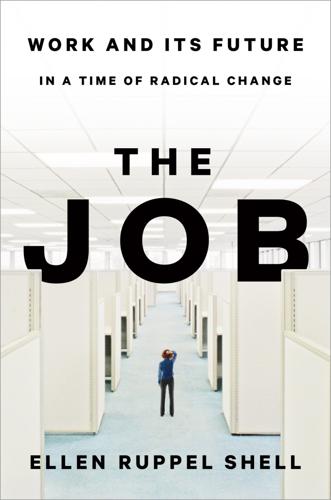
The Job: The Future of Work in the Modern Era
by
Ellen Ruppel Shell
Published 22 Oct 2018
So they flit from thing to thing, often with little opportunity to focus, or to do one job correctly.” In the IT industry, for example, “Ship product now” is more than a slogan, it’s key to the sector’s culture, trumpeted prominently in the media and in in-house newsletters urging employees to “move fast and break things.” This “Code wins arguments” ethic may seem to put power into the hands of the doers, at least temporarily, but it does little to help employees make meaning of their work. Some employees enjoy the intensity of such environments, and some are even captivated by it, but when asked, not many can quite put a finger on what, exactly, all this Sturm und Drang really adds up to, or even means.
…
The video follows one employee as he leaves the gym, exits company headquarters, mounts a bike, and pedals off to his actual home for an early dinner with his actual family. Quite a contrast from companies that use gyms and other perks to tie workers to the workplace. And I learned that Snellman goes beyond “skills training” to offer on-site college-level courses in languages and law. Far from urging employees to “move fast and break things,” the company encourages them to move cautiously and invest in themselves. The message seems to be not “Give us your all and our company will make meaning for you,” but rather “Our company will provide the income, support, and stability to allow you to make meaning for yourself.” “This company understands people,” Pohjakallio told me.
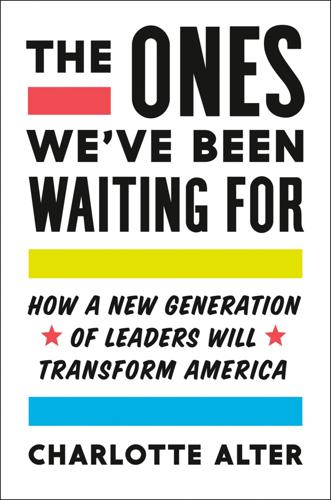
The Ones We've Been Waiting For: How a New Generation of Leaders Will Transform America
by
Charlotte Alter
Published 18 Feb 2020
Still, even if millennials are better at metabolizing online information than their parents, the spread and weaponization of misleading information will likely be a permanent feature of millennial political life. The demise of the old gatekeepers led to the rise of a new kind of archetype: the disrupter. The infinite new opportunities in the digital space and the thrilling freedom of a vast, unregulated digital ecosystem gave young upstarts the courage to, as Mark Zuckerberg put it, “move fast and break things.” Why should they respect the old ways when this was a whole new world? The future, they thought, belonged to the innovator, the coder, the breaker of rules, not the cog in some outdated machine. So it’s probably not a coincidence that individualistic millennials raised in this bold new world had little reverence for the institutions of the old one: they became more skeptical than older Americans of organized religion, political parties, corporations, and labor unions.
…
Michael recognized that the slow pace of government could be difficult for millennials who grew up accustomed to the instant gratification that comes with a computer in their pocket. “Government is not designed to move fast,” he said. “For young people who want to be disruptive, government will be very frustrating.” Tech entrepreneurs could “move fast and break things” because the stakes were lower. “If you prototype something and it fails, it’s just an internal conversation in your office,” he said. “If I prototype water delivery or trash, it touches everyone, especially the most vulnerable. So there has to be some caution.” * * * Eric Lesser was familiar with just how slow government could go.
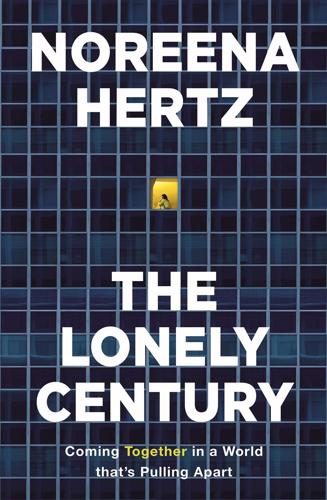
The Lonely Century: How Isolation Imperils Our Future
by
Noreena Hertz
Published 13 May 2020
Indeed it appears that some of the world’s tech leaders have accepted that a certain volume of complaints, a certain level of fines, maybe even a certain number of deaths, is something they can tolerate when the prize is so big and so many billions of dollars in annual profits are at stake.113 In the same way that Big Tobacco determined it was acceptable to peddle a harmful product because the profits were so large, it seems that the social media giants have determined that the collateral damage they cause is an acceptable by-product of their business model. As Professor Zaki observed, ‘Mark Zuckerberg famously exhorted his employees to “move fast and break things”. By now, it’s clear they’ve broken quite a lot.’114 Leaving it to the platforms to self-regulate toxic content clearly hasn’t worked, as Mark Zuckerberg himself has now acknowledged.115 We need regulation with teeth to compel Big Tech to reform. The penalties handed out to date for failing to immediately remove unambiguously hateful content have been so low as to be meaningless in the context of Big Tech’s gargantuan, record-breaking profits.
…
Karen Heisler and co-owner Krystin Rubin opened Mission Pie in 2007 with the belief that a values-driven small business could contribute to community and environmental health.27 They sourced their ingredients from California farms, rotating their fruit seasonally to ensure that the peaches, strawberries and apples they used were at their freshest – and tastiest – and kept working with some of the same producers throughout the café’s twelve years of existence. They offered job training and internships to young people in the community. They paid their employees well above minimum wage and offered benefits.28 If the tech economy was being built on the infamous slogan ‘move fast and break things’, Mission Pie grew on the idea of move slow and build things. In the process, they created a community that became almost like a second family for people like former regular Kimberly Sikora, a 34-year-old artist and teacher who moved to the neighbourhood in 2009 from Brooklyn. Mission Pie was one of the first places she stopped at when she arrived at the city – two of her friends lived in the apartment upstairs.
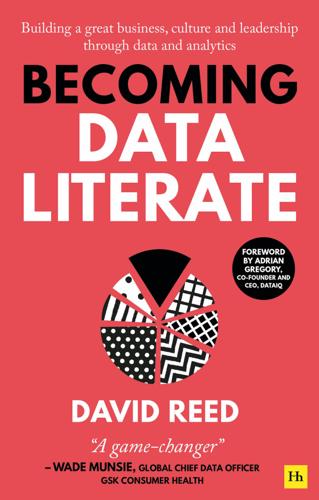
Becoming Data Literate: Building a great business, culture and leadership through data and analytics
by
David Reed
Published 31 Aug 2021
It established a stand-alone digital operation with the culture of a start-up that was very distinct from the more traditional head office. This is a sector that is very risk-averse, yet the new function created in 2016 was given a mission to “put a rocket up the company”. To accelerate its impact, 70 data scientists were recruited and tasked to “move fast and break things”. Significant changes did start to be realised, including a reduction in the friction during insurance pricing and quotation through predictive modelling based on customer data. Robust data underpinnings and platforms were put in place to support both customer science and data science with strong growth in internal demand as business units – which had been set against each other to create a competitive culture – looked for support for ongoing innovation and optimisation.
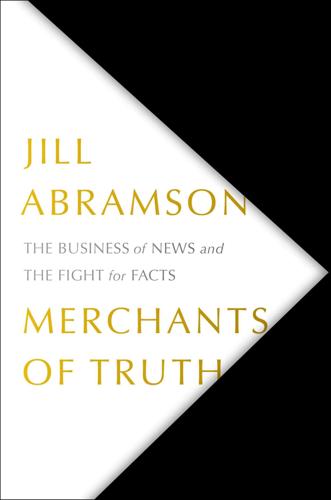
Merchants of Truth: The Business of News and the Fight for Facts
by
Jill Abramson
Published 5 Feb 2019
“If I had to guess why sites like Facebook are so popular, I would say it doesn’t have anything to do with networking at all,” his friend Duncan Watts told the New Yorker in 2006. “It’s voyeurism and exhibitionism.” This skepticism was coming from the sociologist and scientist widely regarded as the preeminent expert on social networks. But it soon became apparent that Facebook’s motto—“Move fast and break things”—was more than just bluster with a ring to it. Facebook wasn’t just breaking the rule of six degrees but shattering it. Five years after its public launch, researchers at Cornell University and in Milan analyzed connections among Facebook’s 700 million active users and calculated that each person was separated from every other by an average of merely 3.74 degrees.
…
Which is what the company did: Will Oremus, “Who Controls Your Facebook Feed,” Slate, January 3, 2016, http://www.slate.com/articles/technology/cover_story/2016/01/how_facebook_s_news_feed_algorithm_works.html. By the time Facebook unveiled: Cheng Zhang, “Using Qualitative Feedback to Show Relevant Stories,” Facebook Newsroom, February 1, 2016, https://newsroom.fb.com/news/2016/02/news-feed-fyi-using-qualitative-feedback-to-show-relevant-stories/. The cascade of advances: Jonathan Taplin, Move Fast and Break Things: How Facebook, Google and Amazon Have Cornered Culture and What It Means for All of Us (Boston: Little, Brown, 2017), 143. In 2010 opponents of a Florida: “Case Study: Reaching Voters with Facebook Ads (Vote No on 8),” Facebook, August 16, 2011, https://www.facebook.com/notes/us-politics-on-facebook/case-study-reaching-voters-with-facebook-ads-vote-no-on-8/10150257619200882.
…
New York: The New York Times Company, 2011. Stone, Brad. The Everything Store: Jeff Bezos and the Age of Amazon. New York: Little, Brown and Company, 2013. Talese, Gay. The Kingdom and the Power: Behind the Scenes at The New York Times: The Institution That Influences the World. New York: Random House, 2007. Taplin, Jonathan. Move Fast and Break Things: How Facebook, Google, and Amazon Cornered Culture and Undermined Democracy. New York: Little, Brown and Company, 2017. Tifft, Susan E., and Alex S. Jones. The Trust: The Private and Powerful Family Behind The New York Times. Boston: Little, Brown and Company, 1999. Zittrain, Jonathan.

Chokepoints: American Power in the Age of Economic Warfare
by
Edward Fishman
Published 25 Feb 2025
Massad, “Facebook’s Libra 2.0,” The Brookings Institution, June 22, 2020, www.brookings.edu/articles/facebooks-libra-2-0; Jahid Elgarni and Isabelle Bufflier, “Is Facebook’s Diem the Future of Cryptocurrency or a Financial Pipe Dream?” Skema Business School, February 1, 2022, knowledge.skema.edu/is-facebooks-diem-the-future-of-cryptocurrency-or-a-financial-pipe-dream. GO TO NOTE REFERENCE IN TEXT “move fast and break things”: Drake Baer, “Mark Zuckerberg Explains Why Facebook Doesn’t ‘Move Fast and Break Things’ Anymore,” Business Insider, May 2, 2014, www.businessinsider.com/mark-zuckerberg-on-facebooks-new-motto-2014-5. GO TO NOTE REFERENCE IN TEXT “I thought crypto was a threat”: Author interview with Stuart Levey, 2023. GO TO NOTE REFERENCE IN TEXT hoped that Levey could win over regulators: Hannah Murphy and Kiran Stacey, “Facebook Libra: the Inside Story of How the Company’s Cryptocurrency Dream Died,” Financial Times, March 10, 2022, www.ft.com/content/a88fb591-72d5-4b6b-bb5d-223adfb893f3.
…
It would do so by making it much easier to move money around the globe without passing through the intermediary infrastructure that such transactions traditionally required. Yet those intermediaries—correspondent banks, clearinghouses, and messaging services such as SWIFT—were the very chokepoints the West relied on to conduct financial warfare. Because of this, and because Facebook’s official motto was once “move fast and break things,” politicians and regulators in Washington eyed Diem’s crypto project with deep suspicion. When he was offered the CEO job, Levey was skeptical, too. “I thought crypto was a threat to the type of tools we used at Treasury,” he said. “It seemed like a very dangerous thing.” But by taking the helm of Diem, he could perhaps build a cryptocurrency that was fully compatible with Washington’s national security interests.
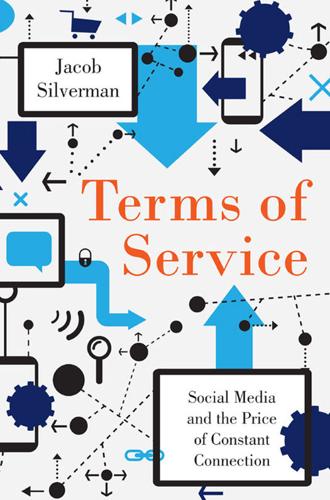
Terms of Service: Social Media and the Price of Constant Connection
by
Jacob Silverman
Published 17 Mar 2015
The story may not even be true, but if it can gin up a scandal—if the credibility of the story itself becomes the story, or the poorly sourced story is deemed to have raised questions—then that’s enough. Attention is the most sought-after commodity, and the motto of its purveyors might as well be, “Ask for Forgiveness, Not Permission” (which is not unlike Facebook’s “Move Fast and Break Things”). Here’s how the churnalistic cycle usually goes. On July 29, 2013, the Daily Beast tweeted what it claimed was a “scoop”: Cory Booker, Newark’s mayor at the time, would be visiting Iowa in the next month, presumably to lay the groundwork for a 2016 presidential campaign. Their source was a calendar on the University of Iowa’s Web site, though the university “did not return a call asking for comment,” a euphemism which, in such cases, often means that the call was placed shortly before the story was set to run.
…
All this might sound a little Soviet—only art sanctioned by the state, in the appropriate styles, may be displayed—but that’s essentially the case. Social media is the staid, whitewalled showroom. You may only hang your paintings in the designated areas, and please don’t touch the exhibits. Facebook’s mantras of “Move Fast and Break Things” and “The Hacker Way” apply only to its engineers, not to Facebook’s users. In the summer of 2013, a Palestinian hacker named Khalil Shreateh tried to report a security hole on Facebook that would allow someone with the proper knowledge to post on anyone’s wall. Because Facebook, like many tech companies, offers cash bounties to white-hat hackers who alert them to security issues, Shreateh submitted a report.
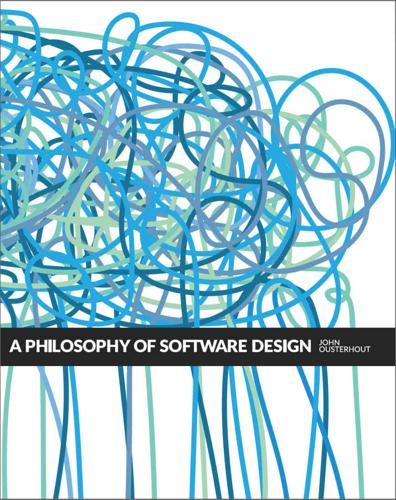
Philosophy of Software Design
by
John Ousterhout
Published 28 Jan 2018
If your code base is a wreck, word will get out, and this will make it harder for you to recruit. As a result, you are likely to end up with mediocre engineers. This will increase your future costs and probably cause the system structure to degrade even more. Facebook is an example of a startup that encouraged tactical programming. For many years the company’s motto was “Move fast and break things.” New engineers fresh out of college were encouraged to dive immediately into the company’s code base; it was normal for engineers to push commits into production in their first week on the job. On the positive side, Facebook developed a reputation as a company that empowered its employees.
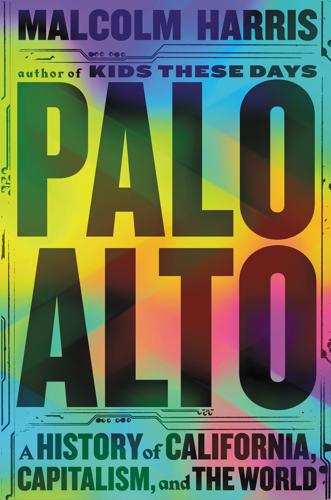
Palo Alto: A History of California, Capitalism, and the World
by
Malcolm Harris
Published 14 Feb 2023
By 1870, scarcely twenty years since the initial rush, California’s settlers had destroyed 80 percent of the California Indians by one estimate, bringing the population from 150,000 down to 30,000—“quite possibly the most extreme demographic disaster of all time,” in the words of historian Roxanne Dunbar-Ortiz.8 Commenting on the public abuse of one young Indian farm laborer who was dragged behind a horse in Mendocino County in 1865, a Sacramento reporter scoffed about the supposed ban on forced labor: “So much for slavery in California.”9 Move Fast and Break Things As Albert Hurtado notes, California Indians were not alone in being pushed off their land into a harsh new historical epoch in the second half of the nineteenth century. Settler colonialists seized and enclosed agricultural lands around the world, forcing peasant and indigenous communities into capitalist work, whether waged, enslaved, or (most prevalent) somewhere desperate in between.
…
Despite his public-minded motivations, federal prosecutors refused any plea deal that didn’t involve prison, and the brilliant Swartz ended his own life at age twenty-six rather than surrender his freedom. Tickets.com, yes; Napster, no. Google, yes; Facemash, no. Acxiom, yes; Aaron Swartz, no; Facebook, yes. The most aggressive of these models raced ahead of their creators, “moving fast and breaking things,” as Facebook’s motto said. Some incumbents, like Ticketmaster and the RIAA, were strong and centralized enough to negotiate compromises, but a number of firms—industries, even—were not so lucky, and they got scraped away. John Ashcroft’s free-market authoritarianism structured the bargain between scrapers and the state regulators tasked with protecting people’s rights: The feds gave the data brokers a boost up and over the law, and the data brokers pulled the state up behind them.
…
The support we need to do the long-haul work is being torn apart.”36 As it had 50 years earlier, San Francisco’s redevelopment hit the city’s left particularly hard. Meanwhile, more bad news about the tech monopolists came out every week, all the way to Facebook’s role in enabling an ethnic-cleansing campaign against the Rohingya Muslim minority in Myanmar. At its worst, “move fast and break things” broke whole societies. And yet no agent at the global, national, or local level could effectively manage the behavior of these companies once they were let loose. When Zuckerberg testified in front of the Senate’s Judiciary Committee—and Commerce, Science, and Transportation Committees—answering questions about Facebook’s repeated data privacy failures, the country’s highest legislative body seemed lost.
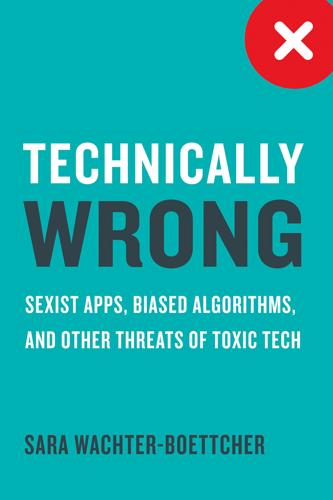
Technically Wrong: Sexist Apps, Biased Algorithms, and Other Threats of Toxic Tech
by
Sara Wachter-Boettcher
Published 9 Oct 2017
In fact, if you ask Mark Zuckerberg, they’re the core of the company, and always have been. Back when Facebook filed for IPO, in 2012, he lauded those values in a letter to investors: “As most companies grow, they slow down too much because they’re more afraid of making mistakes than they are of losing opportunities by moving too slowly,” he wrote. “We have a saying: ‘Move fast and break things.’ The idea is that if you never break anything, you’re probably not moving fast enough.” 50 Zuckerberg famously calls this approach “the Hacker Way”: build something quickly, release it to the world, see what happens, and then make adjustments. The idea is so ingrained in Facebook’s culture—so core to the way it sees the world—that One Hacker Way is even the official address of the company’s fancy Menlo Park headquarters.
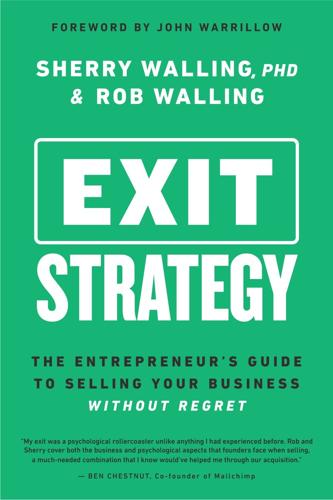
Exit Strategy
by
Sherry Walling, Rob Walling
Published 22 Nov 2024
Different things are important to us at different ages in our lives. Are you thirty, where you’ve got many productive, creative years ahead of you to take big risks? Are you sixty, where you still may have lots of productive, creative years, but you may be drawn more toward legacy-building and less toward “move fast and break things”? How Much Energy Do You Have? Energy is the fuel that enables us to do everything that needs to be done daily. It’s affected by our age, our health, and our life circumstances. You might not have that same drive to pull all-nighters and work every weekend that you had when you were founding a business in your twenties.
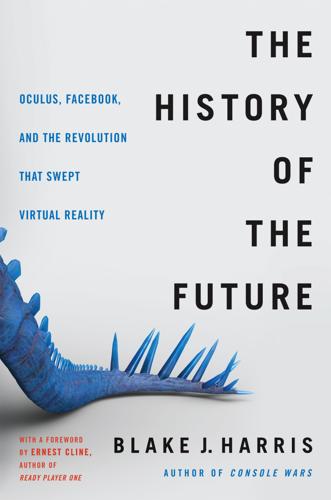
The History of the Future: Oculus, Facebook, and the Revolution That Swept Virtual Reality
by
Blake J. Harris
Published 19 Feb 2019
Part 3 The Good Old Days Chapter 22 Move Slow and Build Things (Aka Facebook 2.0) April 4, 2013 SINCE THE DAWN OF THE TWENTY-FIRST CENTURY—SINCE THE INTERNET WENT viral, tech turned sexy, and Silicon Valley became Mecca for a new breed of American dreamers—nobody had been more successful than Facebook founder Mark Zuckerberg. In less than eight years, powered by the mantra “move fast and break things,” he had managed to turn a dorm-room project into a global social network that, as of last count, boasted about 1.2 billion users. That said, even a digital tycoon like Zuckerberg had regrets. And stepping onstage to address a mix of reporters and employees, he hoped to address one of his biggest regrets with an exciting announcement.
…
Apple had been doing it since the late ’70s. Google was already dominating the mobile market. Even Amazon, whom nobody thought of as a “hardware company,” now had years of experience after successfully producing Kindle e-readers since 2007. In order to compete, Facebook would need to move beyond their “move fast and break things” model. This was the beginning of a new Facebook, a new post-IPO Facebook; and to best position themselves for the challenges ahead, they would need to move slow and build things. “So we need you,” Zuckerberg told Kalinowski. “We need you to come here and help teach us.” After highlighting the features of Facebook Home to the excitable attendees, he announced that the Taiwanese electronics manufacturer HTC would soon begin producing a line of phones called the HTC First that would come preloaded with Facebook Home.
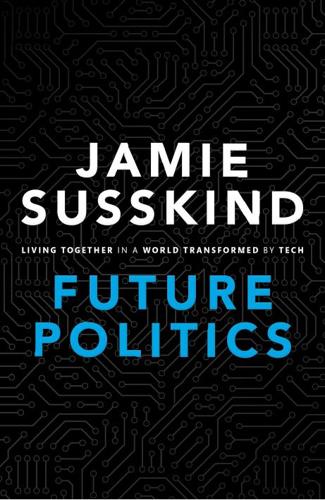
Future Politics: Living Together in a World Transformed by Tech
by
Jamie Susskind
Published 3 Sep 2018
BI Intelligence,‘Amazon Accounts for 43% of US Online Retail Sales’, Business Insider E-Commerce Briefing, 3 February 2017 <http://uk. businessinsider.com/amazon-accounts-for-43-of-us-online-retailsales-2017-2?r=US&IR=T> (accessed 9 December 2017). 22. Young, ‘How to Break Up Alphabet, Amazon and Facebook’. 23. Dwyer, ‘Should America’s Tech Giants be Broken Up?’ 24. Jonathan Taplin, Move Fast and Break Things: How Facebook, Google, and Amazon Cornered Culture and Undermined Democracy (New York: Little, Brown and Company, 2017), 8. 25. Connie Chan, cited in Frank Pasquale, ‘Will Amazon Take Over the World?’ Boston Review, 20 July 2017 <https://bostonreview.net/ class-inequality/frank-pasquale-will-amazon-take-over-world> (accessed 8 December 2017). 26.
…
‘DeepFace: Closing the Gap to Human-Level Performance in Face Verification’. 2014 IEEE Conference on Computer Vision and Pattern Recognition (CVPR), 2014 <https://www.cs.toronto.edu/~ranzato/ publications/taigman_cvpr14.pdf> (accessed 11 Dec. 2017). Takahashi, Dean. ‘Magic Leap Sheds Light on its Retina-based Augmented Reality 3D Displays’. VentureBeat, 20 Feb. 2015 <http://venturebeat.com/ 2015/02/20/magic-leap-sheds-light-on-its-retina-based-augmentedreality-3d-displays/> (accessed 30 Nov. 2017). Taplin, Jonathan. Move Fast and Break Things: How Facebook, Google, and Amazon Cornered Culture and Undermined Democracy. New York: Little, Brown and Company, 2017. OUP CORRECTED PROOF – FINAL, 28/05/18, SPi РЕЛИЗ ПОДГОТОВИЛА ГРУППА "What's News" VK.COM/WSNWS 484 Bibliography Tapscott, Don and Alex Tapscott. Blockchain Revolution: How the Technology Behind Bitcoin is Changing Money, Business and the World.
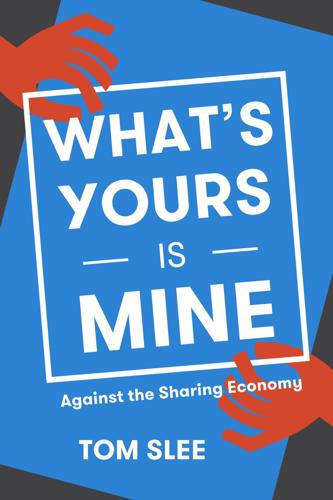
What's Yours Is Mine: Against the Sharing Economy
by
Tom Slee
Published 18 Nov 2015
Any short description will undoubtedly be an oversimplification, and of course there are disagreements and disputes among its adherents, but a coherent Internet culture does exist. It embraces values of rebellion, drawing from a loose set of attitudes sometimes called the hacker ethic. Facebook’s headquarters are at “One Hacker Way” and it has the word HACK laid out in 12-meter letters in the stone. The company’s mantra until last year was “move fast and break things,” and Mark Zuckerberg recently explained to potential investors: “Hackers believe that something can always be better, and that nothing is ever complete. They just have to go fix it—often in the face of people who say it’s impossible or are content with the status quo.” Internet culture also believes that the Internet itself is a key to building a better world.
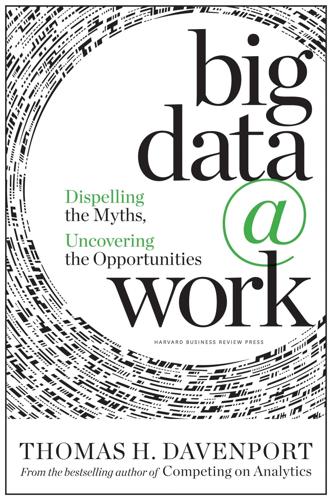
Big Data at Work: Dispelling the Myths, Uncovering the Opportunities
by
Thomas H. Davenport
Published 4 Feb 2014
Some of the smaller start-up firms don’t even have in-house IT functions; they outsource business IT. Some of the big data lessons from start-up and online firms are derived from and are similar to other general IT and entrepreneurship lessons from Silicon Valley firms. They include the injunction, popularized by Facebook founder Mark Zuckerberg, to “move fast and break things,” and not worry too much about making mistakes. Another is to have bold and audacious goals that involve objectives other than simply making a lot of money. Facebook hopes to “make the world more open and connected.” Google’s well-publicized mission is to “organize the world’s information and make it universally accessible and useful.”
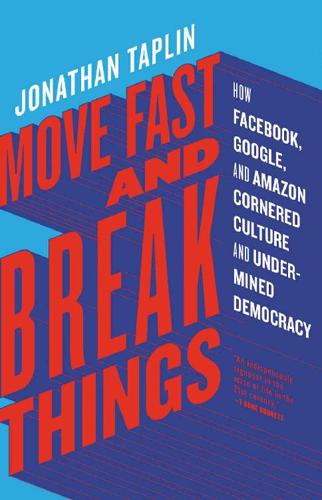
Move Fast and Break Things: How Facebook, Google, and Amazon Cornered Culture and Undermined Democracy
by
Jonathan Taplin
Published 17 Apr 2017
ISBN 978-0-316-27574-3 E3-20170222-JV-PC Contents Cover Title Page Copyright Dedication Epigraph Introduction Chapter One: The Great Disruption Chapter Two: Levon’s Story Chapter Three: Tech’s Counterculture Roots Chapter Four: The Libertarian Counterinsurgency Chapter Five: Digital Destruction Chapter Six: Monopoly in the Digital Age Chapter Seven: Google’s Regulatory Capture Chapter Eight: The Social Media Revolution Chapter Nine: Pirates of the Internet Chapter Ten: Libertarians and the 1 Percent Chapter Eleven: What It Means to Be Human Chapter Twelve: The Digital Renaissance Afterword Acknowledgments About the Author Also by Jonathan Taplin Notes Newsletters For Maggie Move fast and break things. Unless you are breaking stuff, you aren’t moving fast enough. —Mark Zuckerberg Introduction I thought I was going to write the story of a culture war. On one side were a few libertarian Internet billionaires—the people who brought you Google, Amazon, and Facebook—and on the other side were the musicians, journalists, photographers, authors, and filmmakers who were trying to figure out how to continue to make a living in the digital age.

Right of Way: Race, Class, and the Silent Epidemic of Pedestrian Deaths in America
by
Angie Schmitt
Published 26 Aug 2020
Execs hoped that it would attract $100 billion in investment16—despite it being what Bloomberg Technology described as “a serially unprofitable business.”17 Eliminating drivers from its business model was considered one of the few avenues to profitability for Uber ahead of its much-anticipated stock market debut.18 “A lot of that is the Silicon Valley move-fast-and-break-things attitude,” said auto writer Dan Albert. “[But] when you’re not talking about just apps . . . the things you break are actual people.”19 Uber was not only rushing to stem billions in annual losses, but it was also vying with companies like Waymo, Ford, and others to bring self-driving car technology to market.
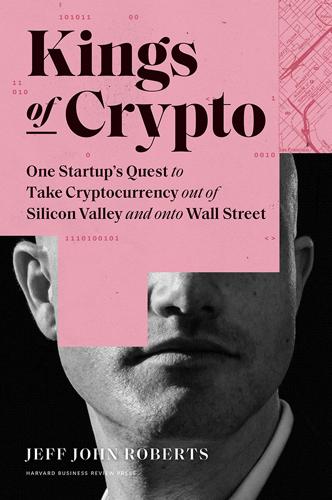
Kings of Crypto: One Startup's Quest to Take Cryptocurrency Out of Silicon Valley and Onto Wall Street
by
Jeff John Roberts
Published 15 Dec 2020
Ecstatic, he told his friends, “Can you believe how cheap it is? It’s never going to be this price again.” 5 Hard Times Fred and Brian’s philosophy of running through brick walls had served the company well, inspiring employees to pull off near-impossible feats in the name of growth. But like Face-book, whose early motto was “move fast and break things,” Coinbase would pay a price for its run-and-gun approach. Running through brick walls is a killer tactic—when it works. When it doesn’t, you end up on your ass—with a bloody nose. Coinbase’s earlier bid to outwit Apple, for instance, had been clever. It let the startup flout Apple’s rules by letting customers buy and sell bitcoin directly in its app, all the while keeping the iPhone maker in the dark by disabling the buy-sell feature in the city of Cupertino, where the app was vetted.
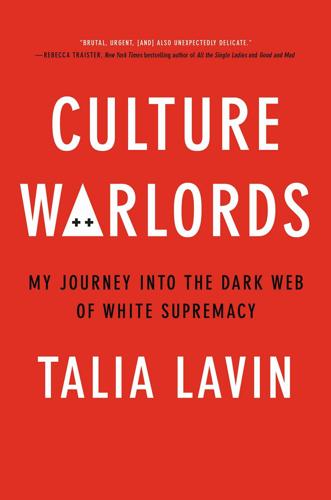
Culture Warlords: My Journey Into the Dark Web of White Supremacy
by
Talia Lavin
Published 14 Jul 2020
In a speech to the Anti-Defamation League in November 2019, comedian Sacha Baron Cohen pointed out the inherent risks of the so-called “Silicon Six”—“Zuckerberg at Facebook; Sundar Pichai at Google; at Google’s parent company Alphabet, Larry Page and Sergey Brin; Brin’s ex-sister-in-law, Susan Wojcicki at YouTube; and Jack Dorsey at Twitter”—being totally responsible for, and unconstrained in, making such momentous decisions as whether Holocaust denial and antiblack hate speech have a role in public discourse. Silicon Valley has long operated on a libertarian, reckless, “move fast and break things” ethos that is far more conservative about reining in hate speech than allowing it to reverberate in the public consciousness unchecked. Consider the sheer dollars generated from people like Sargon of Akkad and Soph. And the human price of such unchecked hate, which was immeasurable. The results of this laissez-faire attitude from Silicon Valley are self-evident in the exponential growth of white-nationalist movements around the world, fueled by reactionary impulses that gather in strength until they have turned into the full and vitriolic force of hate.

Death Glitch: How Techno-Solutionism Fails Us in This Life and Beyond
by
Tamara Kneese
Published 14 Aug 2023
The dot-com boom era of the 1990s, and its eventual, spectacular bust, arose from a culture that rewarded risky endeavors.69 Silicon Valley is also open to failure, often encouraging it as a badge of honor in a system that privileges hubris and risk-taking more than dependability. Fail fast, fail often; move fast and break things: these are the mantras of the tech world.70 In the context of long-term digital preservation and postmortem legacies, this makes for a strange backdrop. Silicon Valley is on an ongoing quest for techno-solutions to death, both on a physiological level and in terms of the problems associated with digital inheritance.
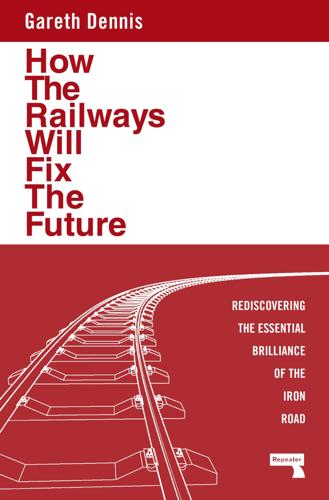
How the Railways Will Fix the Future: Rediscovering the Essential Brilliance of the Iron Road
by
Gareth Dennis
Published 12 Nov 2024
The wider context is that even if we did get closer, the more pressing issues of resource scarcity and climate collapse will distract us from just bunging more cash and attention at the automotive industry. Conversely, driverless trains are really the latest, not particularly useful step in a long historic process of automating the control of trains and the wider railway systems on which they run and rely. Large swathes of the tech industry claim to be fixated on a “move fast and break things” approach to innovation, but this is as wasteful for their sector as it is dangerous for safety-critical sectors like the railways, where a technology screw-up can risk lives if train-protection systems fail. Fundamentally, technology must follow need, not lead it. Solutions must be people- and problem-led.
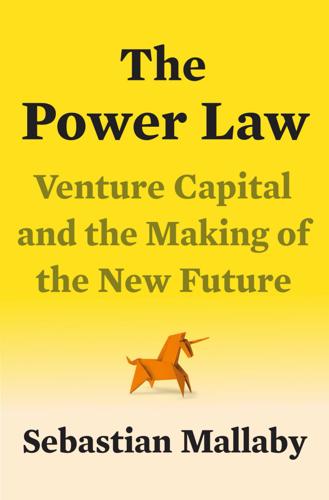
The Power Law: Venture Capital and the Making of the New Future
by
Sebastian Mallaby
Published 1 Feb 2022
Coined by Reid Hoffman, a venture capitalist at Greylock and before that the founder of LinkedIn, the term referred originally to an obligation more than a choice: in network industries, winner-takes-all logic obliges startups to race for scale before competitors achieve it.[28] But, in the hands of less thoughtful investors, “blitzscaling” has come to mean little more than “get rich quick,” a phrase to be filed alongside other notorious war cries, from Masayoshi Son’s injunction to be “crazier, faster, bigger” to Mark Zuckerberg’s call to “move fast and break things.” Even the recipients of blitzscaling war chests have started to call foul. In 2019, the entrepreneur Jason Fried declared that venture capital “kills more businesses than it helps,” because large VC war chests create pressure to spend before managers know how to spend wisely. “You plant a seed, it needs some water, but if you just pour a whole fucking bucket of water on it’s going to kill it,” Fried said bluntly.[29] Noting the multitude of VC-backed companies that fail, the entrepreneur Tim O’Reilly offers a provocative idea.
…
See also Yahoo Google and, 181 Moritz and Sequoia Capital, 150–54, 156, 157–58, 181, 292, 313 Son and, 155–60 Y Combinator, 8, 217–21, 300, 315, 318, 378, 416n Younger, Bill, 96–97 youth revolt, 194–97, 272, 303 YouTube, 10, 12 Sequoia Capital’s investment, 306–7, 309–10, 313 Yozma Group, 396 Yu, Gideon, 273–74 Z Zenefits, 341–42 Zhang Fan, 238–41 Zhang Tao, 244, 246 Zhang Ying, 227–28 Zilog, 432n Zimride, 357 Zingale, Tony, 313 Zoom, 330, 333 Zuckerberg, Mark. See also Facebook Accel and Efrusy, 195, 256–61, 264 Milner and, 274–77 “move fast and break things,” 385 pajama prank at Sequoia, 194–96, 207, 258, 444n Parker and, 196–98, 254, 256, 257–61 Stanford event, 219 Wang compared with, 243 Zynga, 288–89, 298, 443n, 453n A B C D E F G H I J K L M N O P Q R S T U V W X Y Z Arthur Rock kick-started the modern venture-capital industry, backing early hits such as Fairchild Semiconductor and Intel, and improvising an investment style that ignored the standard rules of finance.

Four Battlegrounds
by
Paul Scharre
Published 18 Jan 2023
While an “arms race” does not accurately describe the state of competition today, military competition in AI does pose risks. In a desire to field AI systems ahead of others, nations could succumb to a “race to the bottom” on AI safety and field insecure, unreliable systems. Government bureaucracies are not known to “Move fast and break things” (Facebook’s old motto). Despite the cumbersome pace of DoD’s AI adoption—or perhaps because of it—AI entrepreneurs inside the bureaucracy push hard to move faster. “We are under so much pressure to go fast,” Lieutenant General Jack Shanahan said. Yet with that pressure to move quickly comes the risk that militaries take shortcuts in the wrong places, shortchanging test and evaluation for new technologies.
…
Norton, April 24, 2018), 137–145. 31. RACE TO THE BOTTOM 254“race to the bottom”: Portions of this chapter are adapted, with permission, from Paul Scharre, “Debunking the AI Arms Race Theory,” Texas National Security Review 4, no. 3 (Summer 2021): 121–132, http://dx.doi.org/10.26153/tsw/13985. 254“move fast and break things”: Steven Levy, “Mark Zuckerberg on Facebook’s Future, from Virtual Reality to Anonymity,” Wired, April 30, 2014, https://www.wired.com/2014/04/zuckerberg-f8-interview/. 254“We are under so much pressure”: Jack Shanahan, interview by author, April 1, 2020. 254twenty-five years from initial concept: F-35 Joint Strike Fighter (JSF) Program (Congressional Research Service, updated May 27, 2020) https://fas.org/sgp/crs/weapons/RL30563.pdf; The Joint Advanced Strike Technology (JAST) program, which later became the Joint Strike Fighter program, was created in 1993.
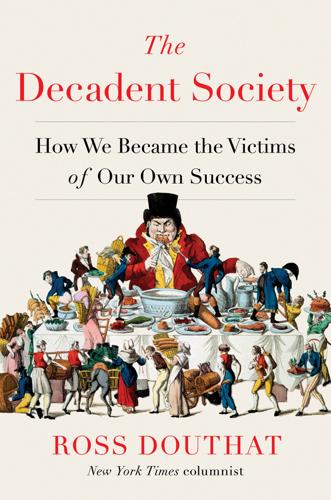
The Decadent Society: How We Became the Victims of Our Own Success
by
Ross Douthat
Published 25 Feb 2020
On the basis of that promise, it raises billions upon billions of dollars across its ten-year rise, during which time it becomes as big as promised in Western markets, a byword for Internet-era success, cited by boosters and competitors alike as the model for how to disrupt an industry, how to “move fast and break things” as the Silicon Valley mantra has it. By the time it goes public in 2019, it has $11 billion in annual revenue—real money, exchanged for real services, nothing fraudulent about it. Yet this amazing success story isn’t actually making any sort of profit, even at such scale; instead, it’s losing billions upon billions of dollars, including $5 billion in one particuarly costly quarter.
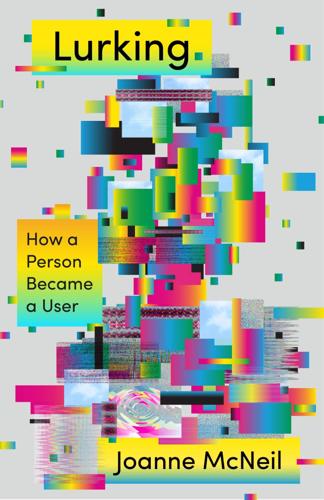
Lurking: How a Person Became a User
by
Joanne McNeil
Published 25 Feb 2020
The platform was ideal for users because of its surface-level technical achievement and reliability (it had none of the lag problems that Friendster had with its servers, and none of Myspace’s general cruddiness), but its proficiency didn’t inspire equanimity. Rather, its frictionless interface was part of people’s sense of unease about it. The better it worked, the more users wondered what was happening to their data to make it work so well. Facebook pushed ahead no matter what, with its company watchword “move fast and break things” epitomizing its personal-boundary-breaking ethos. This is why Leach believes her Shiny Shiny posts about Facebook resonated with readers back in 2010. Whenever Facebook redesigned its interface, and provided no explanation to its users, the changes felt akin to noticing that someone had rummaged through their personal belongings.
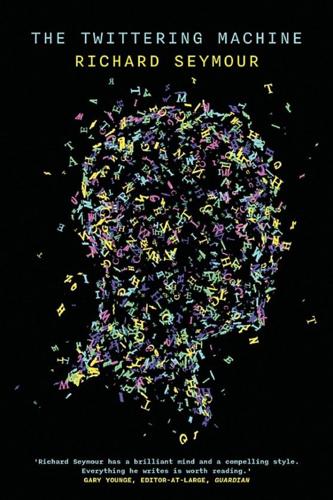
The Twittering Machine
by
Richard Seymour
Published 20 Aug 2019
And yet, as the philosopher Gilbert Simondon pointed out, we learn most from a technology when it breaks down.31 It is breakdown that stimulates scientific research and new knowledge. And the platforms have induced a crisis in an older machinery of governance and control. The Washington establishment, in its globalizing zeal and technological modernization drive, didn’t quite anticipate what it was embracing. Whether it is Facebook’s notorious motto ‘Move Fast and Break Things’, or Google’s practice of never asking for permission, this was a force that could and would disturb the old, embedded alliances of state and media. That meant it could and would disrupt Washington’s power. VI. Did Twitter make the ‘Twitter revolutions’, or did they make Twitter?
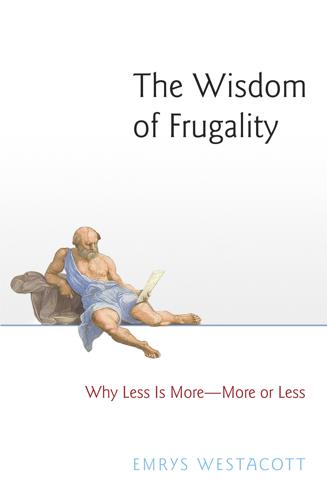
The Wisdom of Frugality: Why Less Is More - More or Less
by
Emrys Westacott
Published 14 Apr 2016
Some people relish this, of course. Like surfers, they enjoy riding the wave. They are unsympathetic to the simplifiers’ tendency to look backward, and they find the ideal of a slower, more stable—they might say “static”—world rather boring. This is the mind-set behind Facebook’s cheerful mantra, “Move fast and break things.” But for many the rate of change creates all sorts of problems and anxieties. Traditional ways have to be abandoned; cherished communities disintegrate; once-valued skills become useless; secure jobs are outsourced or lost to machines. Often those who suffer most are at the bottom of the socioeconomic order, the people who lack the sort of education and information-related skills that are particularly prized in today’s economy.
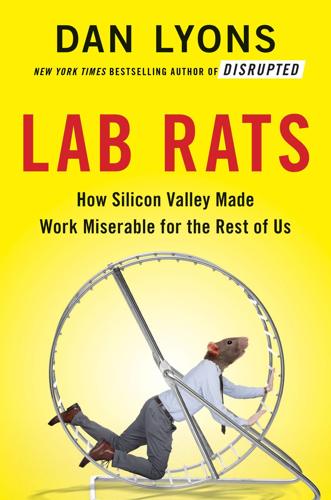
Lab Rats: How Silicon Valley Made Work Miserable for the Rest of Us
by
Dan Lyons
Published 22 Oct 2018
In the second dotcom boom that doctrine has been pushed to new extremes by companies that have adopted a grow-at-all-costs, investors-take-all business model. It has been great for VCs and oligarchs, but everyone else gets shortchanged: CUSTOMERS get “minimum viable products” (translation: shoddy stuff) from companies whose mantra is “move fast and break things.” Internet companies spy on customers, invade their privacy, and sell their data. For companies like Facebook, the users are the product. We exist only to be packaged up and sold to advertisers. COMMUNITIES should benefit when they are home to the headquarters of wealthy corporations, but instead communities get shortchanged as tech giants dodge taxes, finding ways to stash their enormous profits overseas in offshore accounts.
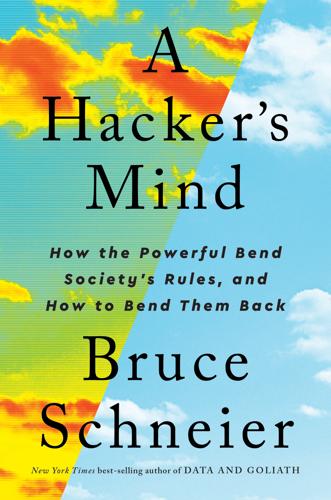
A Hacker's Mind: How the Powerful Bend Society's Rules, and How to Bend Them Back
by
Bruce Schneier
Published 7 Feb 2023
This has largely worked, simply because the amount of damage a bad hack could cause was contained. Today, due to both the power of technology and the global nature of our economies, that’s no longer true. An economic system based on greed and self-interest only works when those properties can’t destroy the underlying system. And “Move fast and break things”—Mark Zuckerberg’s famous motto for Facebook—is only okay when it’s your own things you’re putting at risk. When someone else’s things are involved, then maybe you should think twice—or be forced to fix what you’ve broken. 23 “Too Big to Fail” The phrase “too big to fail” captures a critical vulnerability in our market economy.
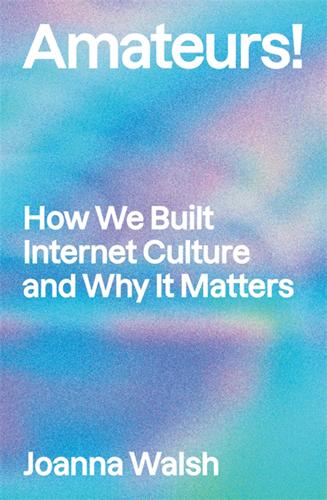
Amateurs!: How We Built Internet Culture and Why It Matters
by
Joanna Walsh
Published 22 Sep 2025
Fragmentation is a familiar technique in art, particularly post-Romanticism, from fragments of columns to fragments of poetry. If Agamben is right, it creates a glitch in the continuity of cultural memory. 81How does this glitch play out online, where it is a different sort of break from modernism’s ruptures? As well as a different break from ‘move fast and break things’, the net-associated motto ascribed to Meta’s Mark Zuckerberg? If we’re to take Agamben’s assessment of the power of aesthetics seriously, however much it harks back to the existence of a mythical age of unbroken cultural transmission, we must look at what this break means now that so many of our aesthetic objects exist only virtually.
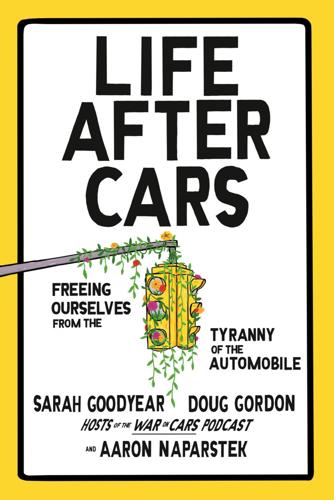
Life After Cars: Freeing Ourselves From the Tyranny of the Automobile
by
Sarah Goodyear
,
Doug Gordon
and
Aaron Naparstek
Published 21 Oct 2025
Using the word crash, on the other hand, leaves open the possibility that a driver did something wrong, or that better road design might have prevented tragedy, or that multiple factors—all of which could be addressed—stacked up to contribute to the outcome. The word crash also harks back to the 1910s and ’20s, when the deaths caused by cars were still shocking and not just a thing that made people late to work. Motordom Strikes Back Long before Silicon Valley popularized the idea, cars were the original “move fast and break things.” Quite literally, they moved faster and more unpredictably than anything that had been on streets before, and, the early history shows, they broke a lot of people. Despite the use of graphic imagery like Brooklyn’s Death-O-Meter, many of the early anti-car campaigns were, in essence, toothless emotional appeals to the drivers’ better selves.
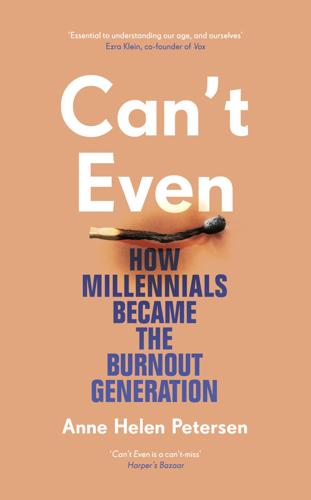
Can't Even: How Millennials Became the Burnout Generation
by
Anne Helen Petersen
Published 14 Jan 2021
When we look back on the period following the Great Recession, it will be remembered not as a time of great innovation, but of great exploitation, when tech companies reached “unicorn” status (valued over $1 billion) on the backs of employees they refused to even deign to label, let alone respect, as such. * * * The dynamics and overarching philosophy of Silicon Valley create the perfect conditions for fissured workplaces. Silicon Valley thinks the “old” way of work is broken. It loves overwork. Its ideology of “disruption”—to “move fast and break things,” as Mark Zuckerberg famously put it—is contingent on a willingness to destroy any semblance of a stable workplace. In the startup world, the ultimate goal is “going public”: creating a high enough stock valuation, and, afterward, unmitigated growth, no matter the human cost. That’s how these companies pay back the venture capital firms that invested in them—and that’s how they make their founders, boards, and early employees very rich.
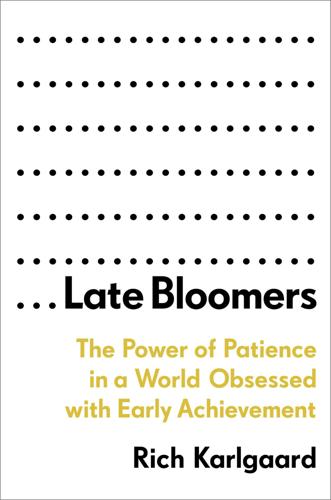
Late Bloomers: The Power of Patience in a World Obsessed With Early Achievement
by
Rich Karlgaard
Published 15 Apr 2019
This is not to say that we all need to be saints, but rather that it helps us to see our late-bloomer goals as connected to the broader world. Finally, there’s patience. One of my favorite Silicon Valley late bloomers, and an exemplar of patience in a business culture that exhorts us to “move fast and break things,” is Diane Greene. She grew up in Annapolis, Maryland, with a love for the ocean. As a girl, she learned to catch crabs and sell them for five dollars apiece. In college, she majored in engineering but also took up windsurfing—at nineteen she started a world windsurfing competition—as well as competitive sailing.
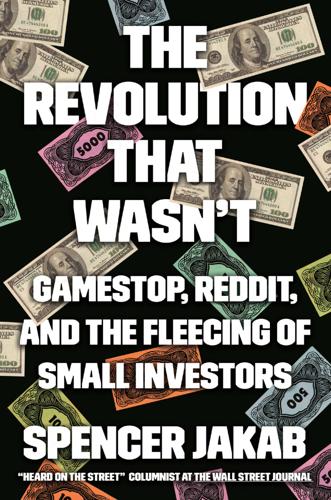
The Revolution That Wasn't: GameStop, Reddit, and the Fleecing of Small Investors
by
Spencer Jakab
Published 1 Feb 2022
“Ultimately, any market that doesn’t have a leader in simplicity soon will. And if your company doesn’t play that role, another will lead the charge.”[9] But being effective is one thing and being good for the customer is quite another. When it comes to grabbing our attention and profiting from it, unleashing Silicon Valley’s “move fast and break things” philosophy on trillions of dollars of personal savings was bound to create some problems. What it mainly did was to make some long-standing ones impossible to ignore. “Anyone Can Do It!” Discount brokers seem to offer an undifferentiated product these days—pay nothing and invest in any of these hundreds of thousands of stocks, bonds, funds, or options contracts.

Tory Nation: The Dark Legacy of the World's Most Successful Political Party
by
Samuel Earle
Published 3 May 2023
‘Whatever else the Conservative Party stands for,’ Enoch Powell once said, ‘unless it is the party of free choice, free competition and free enterprise, unless – I am not afraid of the word – it is the party of capitalism, then it has no function in the contemporary world.’4 Their affiliation is now so standard as to seem unremarkable. But their pairing remains fractious. Capitalism’s mantras, after all, are ‘move fast and break things’ and ‘creative destruction’. As an economic system, it is irreverent, paying no heed to national borders or traditions and constantly seeking to uproot society in pursuit of profit: ‘the spirit of innovation’ is essential. ‘Markets preserve nothing, but ingest all aspects of an existing social landscape and excrete them, shorn of meaning and memory, as transactions,’ as Alice observes in Sally Rooney’s Beautiful World, Where Are You.
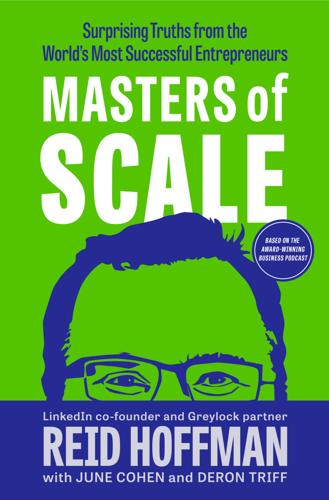
Masters of Scale: Surprising Truths From the World's Most Successful Entrepreneurs
by
Reid Hoffman
,
June Cohen
and
Deron Triff
Published 14 Oct 2021
You can read more about this topic in Blitzscaling, where “Launch a Product That Embarrasses You” is #4 on my list of Counterintuitive Rules of Blitzscaling. * * * — One of the biggest champions of experimentation in Silicon Valley has been Mark Zuckerberg, whose early mantra—“Move fast and break things”—was a foundation for Facebook’s success. And the company continues to experiment constantly today, even at its current size—though its mantra now is “Move fast with stable infrastructure.” As Mark says, “At any given point in time, there isn’t just one version of Facebook running—there are probably ten thousand.
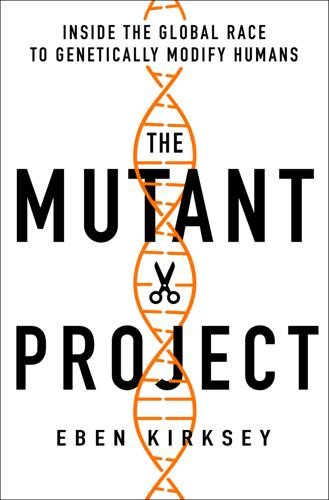
The Mutant Project: Inside the Global Race to Genetically Modify Humans
by
Eben Kirksey
Published 10 Nov 2020
He had figured out how to gain power and influence in the field of biotechnology. CRISPR became a tool for extending this power as he imagined the future and worked to bring his dreams into contact with reality. As he embarked on the risky venture, he was following another Silicon Valley motto: “Move fast and break things.” This American ideal resonated in Shenzhen, a city that has long celebrated its own brand of hustle. * * * The idea of “Shenzhen speed” was born in the early 1980s as skyscrapers began sprouting in the landscape, going up faster than anywhere else in the world. Workers who aspired to better futures flocked to Shenzhen from rural parts of China.
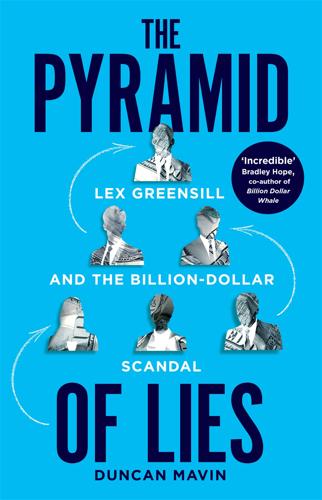
The Pyramid of Lies: Lex Greensill and the Billion-Dollar Scandal
by
Duncan Mavin
Published 20 Jul 2022
It was like winning the lottery a hundred times over. Lex had taken to calling Greensill a fintech too. In reality, it was nothing like that, culturally or in a business sense. In contrast to the uber-casual tech scene, Greensill’s senior executives were buttoned-up and formally dressed. And while the company shared much of the ‘move fast and break things’ ethos of big tech companies, it had little in the way of actual new or proprietary technology. But that didn’t really matter. If Lex said the business was a fintech enough times, others would repeat it, and the money flowed in. There was another term frequently applied to Greensill: ‘shadow bank’.
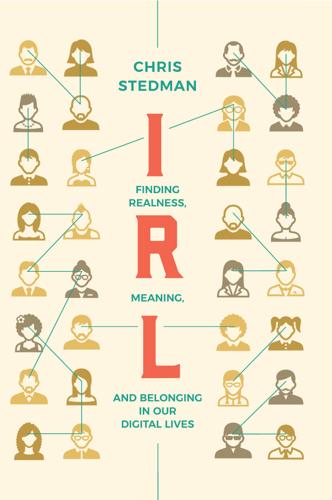
IRL: Finding Realness, Meaning, and Belonging in Our Digital Lives
by
Chris Stedman
Published 19 Oct 2020
We should care about what happens online the way we care about what happens elsewhere. Because when we care about what happens around us, when we are attentive to our lives instead of “safe” in withdrawal, life comes to have more meaning. Rather than stepping back or following Facebook founder Mark Zuckerberg’s edict to “move fast and break things,” we should care about the things and people in our lives and treat them with care. Understand them not as expendable and replaceable but rather as things that could break—and that could break us if we lose them, like when the rabbit loses his boy, or when I lost my friend Alex. This is how we begin to feel real.
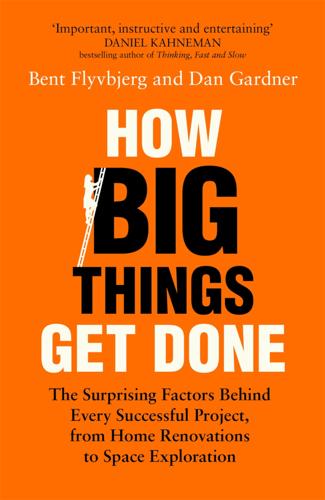
How Big Things Get Done: The Surprising Factors Behind Every Successful Project, From Home Renovations to Space Exploration
by
Bent Flyvbjerg
and
Dan Gardner
Published 16 Feb 2023
Even for software-based companies, the lean startup model can easily be taken too far, as when glitches cause reputation-damaging product failures, security risks, breaches of privacy, and scandals such as Cambridge Analytica’s use of personal data. Or when Instagram is harmful to teenage girls’ self-image. Or when Facebook and Twitter arguably contributed to the 2021 attack on the US Capitol. Here a motto like Facebook’s “Move fast and break things” seems downright irresponsible. Users and policy makers understandably push back and insist that Silicon Valley figure out what’s wrong with its products and fix them before releasing them into the real world. MAXIMUM VIRTUAL PRODUCT When a minimum viable product approach isn’t possible, try a “maximum virtual product”—a hyperrealistic, exquisitely detailed model like those that Frank Gehry made for the Guggenheim Bilbao and all his buildings since and those that Pixar makes for each of its feature films before shooting.
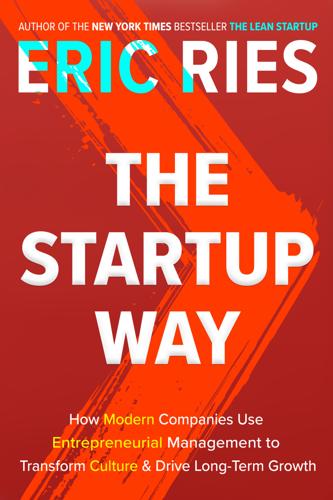
The Startup Way: Making Entrepreneurship a Fundamental Discipline of Every Enterprise
by
Eric Ries
Published 15 Mar 2017
Culture is the institutional muscle memory, based not on how the organization aspires to operate but on how it really has in the past. You cannot change culture by simply putting up posters that exhort employees to “Be more innovative!” or “Think outside the box!” Not even Facebook’s famous “Move fast and break things!” spray-painted on your walls will have any effect. Culture is formed over time, the residue leftover from the process and accountability choices of the company’s past. Every culture attracts certain kinds of PEOPLE: the ultimate corporate resource. A toxic or old-fashioned culture repels innovative talent.
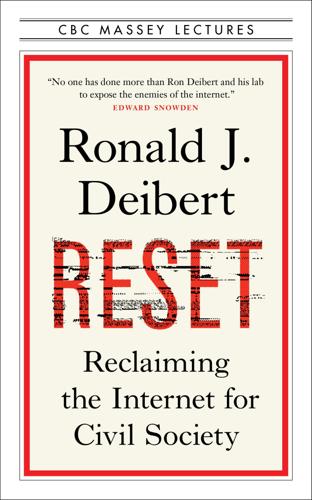
Reset
by
Ronald J. Deibert
Published 14 Aug 2020
Social media platforms are in a race to accumulate profits, corner market share, ship products and services before their competitors, and extract data from as many users as possible. Ensuring the security of their users, and of their users’ data, is largely an afterthought. Facebook founder Mark Zuckerberg’s flippant mantra “move fast and break things” fully embodies this negligence. To be sure, data security is not entirely ignored. But security is prioritized only to the extent that it makes sense from a business perspective, that it helps mitigate some kind of liability. Fortunately for many digital companies, liabilities are light and entirely manageable relative to the monumental revenues.
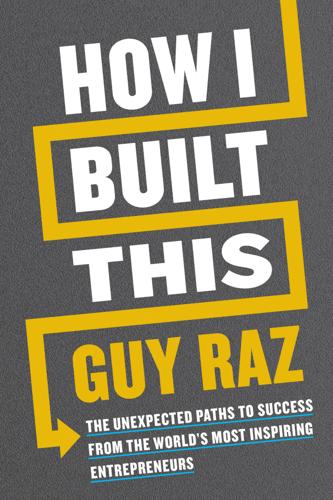
How I Built This: The Unexpected Paths to Success From the World's Most Inspiring Entrepreneurs
by
Guy Raz
Published 14 Sep 2020
We cannot point to naive imprudence or delusional exuberance as explanations for these collapses in the same way we might for more recent failures like the blood-testing company Theranos or the e-commerce startup Fab. Bear Stearns was not a young, overzealous giant like the modern-day tech unicorns that operate with mantras such as “Move fast and break things.” Bear Stearns was founded in 1923. Lehman Brothers had been around in some form for more than 150 years. In many ways, you could argue that they helped finance the building of America into the strongest, wealthiest nation the world has ever known, that there was a real purpose behind the services they offered.

Boom: Bubbles and the End of Stagnation
by
Byrne Hobart
and
Tobias Huber
Published 29 Oct 2024
The provision made the internet something closer to an open forum than a traditional media operation that happened to be accessible via modems. Intentionally or not, this openness is now a defining feature of the web. On the narrative side, calls to action like Amazon’s “Get big fast,” Facebook’s “Move fast and break things,” and Google’s “Don’t be evil” set a storyline for others to follow. These types of slogans can be an effective way to coordinate behavior because they’re a consistent reminder of a company’s priorities—including moving fast before opportunities slip by. This essentially turns FOMO into a healthy instinct: If someone doesn’t want to miss their chance to build a company in the right way, they’ll also be motivated to avoid letting others build it in the wrong way.
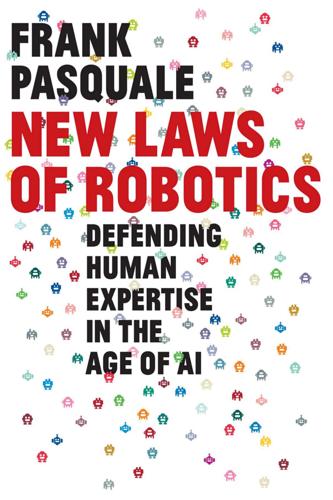
New Laws of Robotics: Defending Human Expertise in the Age of AI
by
Frank Pasquale
Published 14 May 2020
Sometimes apps fail to perform basic therapeutic duties. Journalists discovered that one AI therapist failed to alert authorities when a test subject wrote that she was a child suffering sexual abuse at home.48 Qualified domain experts know about mandatory reporting laws, while technologists trained to “move fast and break things” may have no idea they exist. Unvetted and even dangerous apps proliferate, risking the health of those in need of more competent care.49 Data-sharing policies of such apps are often incomplete or one sided, risking breaches of confidentiality that a therapist is duty-bound to keep.50 The US Food and Drug Administration (FDA) has shirked its duties in this space, barely regulating such apps after repeated warnings from members of Congress that agency funding might be slashed if they interfered with innovation.
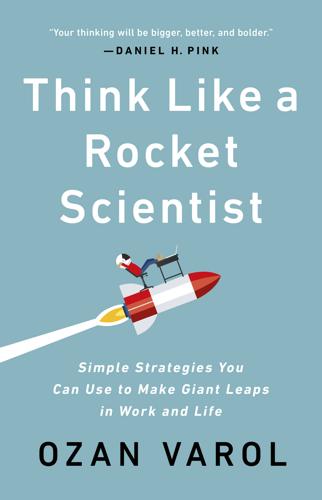
Think Like a Rocket Scientist: Simple Strategies You Can Use to Make Giant Leaps in Work and Life
by
Ozan Varol
Published 13 Apr 2020
13 We discourage curiosity also because it requires an admission of ignorance. Asking a question or posing a thought experiment means that we don’t know the answer, and that’s an admission that few of us are willing to make. For fear of sounding stupid, we assume most questions are too basic to ask, so we don’t ask them. What’s more, in this era of “move fast and break things,” curiosity can seem like an unnecessary luxury. With an inbox-zero ethos and an unyielding focus on hustle and execution, answers appear efficient. They illuminate the path forward and give us that life hack so we can move on to the next thing on our to-do list. Questions, on the other hand, are exceedingly inefficient.
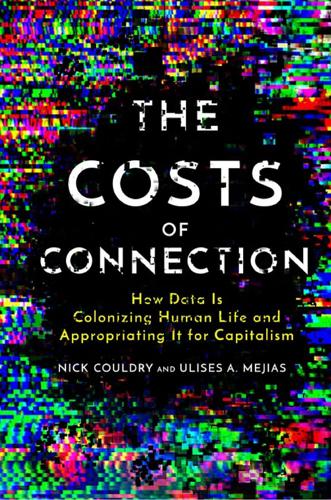
The Costs of Connection: How Data Is Colonizing Human Life and Appropriating It for Capitalism
by
Nick Couldry
and
Ulises A. Mejias
Published 19 Aug 2019
Yale Journal on Regulation 32, no. 2 (2015): 413–50. Sweeney, Latanya. “Health Data Flows.” Paper presented at seminar at the Federal Trade Commission, Washington, DC, May 7, 2014. https://www.ftc.gov/system/files/documents/public_events/195411/consumer-health-data-webcast-slides.pdf. Taplin, Jonathan. Move Fast and Break Things. New York: Little Brown, 2017. Tashea, Jason. “Should the Public Have Access to Data Police Acquire through Private Companies?” ABA Journal, December 2016. http://www.abajournal.com/magazine/article/public_access_police_data_private_company. Taylor, Charles. Modern Social Imaginaries.
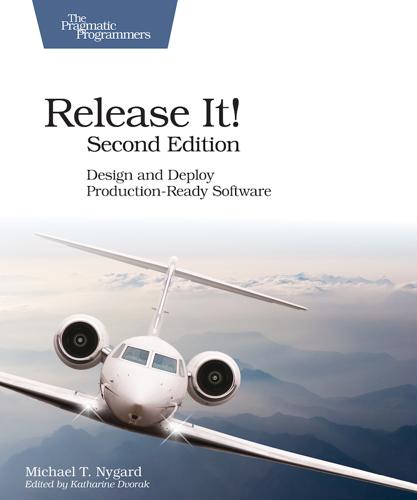
The Nature of Software Development: Keep It Simple, Make It Valuable, Build It Piece by Piece
by
Ron Jeffries
Published 14 Aug 2015
Footnotes [81] http://www.melconway.com/research/committees.html [82] http://www.arin.net Copyright © 2018, The Pragmatic Bookshelf. Chapter 16 Adaptation Change is guaranteed. Survival is not. You’ve heard the Silicon Valley mantras: “Software is eating the world.” “You’re either disrupting the market or you’re going to be disrupted.” “Move fast and break things.” What do they all have in common? A total focus on change, either on the ability to withstand change or, better yet, the ability to create change. The agile development movement embraced change in response to business conditions. These days, however, the arrow is just as likely to point in the other direction.
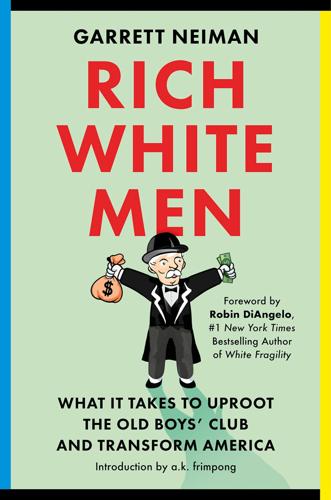
Rich White Men: What It Takes to Uproot the Old Boys' Club and Transform America
by
Garrett Neiman
Published 19 Jun 2023
That’s required taking some risks and being committed to repairing harm I cause, so we can move forward together. But it also requires having the restraint to not charge ahead from a place of ignorance. I’ve learned that it’s better to build together slowly than to follow Mark Zuckerberg’s “Move fast and break things.” (To his credit, Zuckerberg eventually decided to discard this core value at Facebook.) Writer, activist, and facilitator adrienne maree brown describes this approach as “emergent strategy,” which refers to “building complex patterns and systems of change through relatively small interactions.”2 Instead of embarking on a grand plan to fix everything that is wrong in the world, brown recommends starting with small experiments.
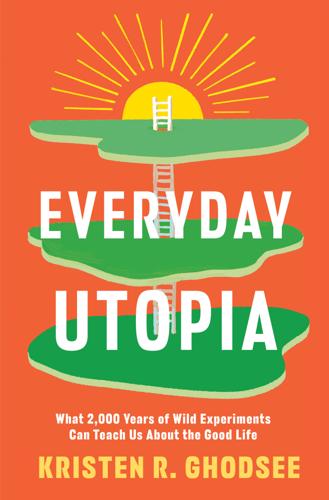
Everyday Utopia: What 2,000 Years of Wild Experiments Can Teach Us About the Good Life
by
Kristen R. Ghodsee
Published 16 May 2023
In academia, blue sky thinking underpins the discipline of geoengineering—scientists who hope to hack the earth’s weather systems in order to prevent the deleterious effects of climate change.17 The Cambridge University Center for Climate Repair suggests ocean greening, recycling CO2, refreezing the polar ice caps, and spraying aerosols of sulphate particles into the stratosphere to prevent solar radiation from reaching the planet.18 In Silicon Valley, a new breed of extreme dreamers, such as the Coalition for Radical Life Extension, is experimenting with ways to achieve human immortality.19 And those who study artificial life (in its hard, soft, and wet forms) push the boundaries of their imaginations to understand how sentience might evolve from complex systems.20 In the technology sector, entrepreneurs reap rewards when they “move fast and break things,” no matter what the costs to society as a whole. We can break democracy as long as we don’t challenge the social and economic systems, which ensure that the billions generated by new innovations accrue to a smaller and smaller handful of people. To be sure, we need to think critically about which sorts of visions are realistic and which are not.
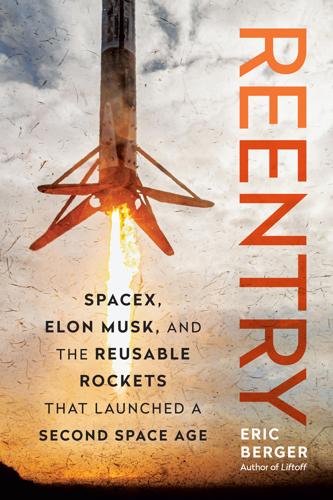
Reentry: SpaceX, Elon Musk, and the Reusable Rockets That Launched a Second Space Age
by
Eric Berger
Published 23 Sep 2024
“We got to the point where we could hear and understand the inflection in each person’s voice, and knew when they were okay with a decision, and when they needed more information,” Couluris said. “It was like flying alongside someone in a cockpit, and it made for amazing teamwork.” But sometimes there were tensions when the hotshots from SpaceX came together with the buttoned-up engineers from NASA. SpaceX wanted to move fast and break things. NASA had a $100 billion space station and astronauts onboard to protect. “They can be pretty aggressive about having ideas to fix things in real time,” Ridings said. “It took time for us to come together. NASA is a team. SpaceX is a team. And we had to be a big team.” If Dragon fails, the space station withers NASA and SpaceX originally agreed to fly three Dragon demonstration flights, but SpaceX had already fallen behind schedule by the time C1 flew in December 2010.

User Friendly: How the Hidden Rules of Design Are Changing the Way We Live, Work & Play
by
Cliff Kuang
and
Robert Fabricant
Published 7 Nov 2019
“It turns out, the personality of the car is something you have to program.”15 Cars are just one example of the general truth that there’s a culture to the way everything around us behaves. This insight offers two forking choices. We can ignore it at our peril, as Tesla repeatedly seemed to. But while the ethos of moving fast and breaking things means it’s easier to make technical progress, that progress is illusory, as it’s human nature to avoid something that didn’t work the first time. On the other hand, we can recognize that the key to making us comfortable with the future lies in mapping all the contextual nuances that we use without thinking—in realizing, for example, that the way a car pulls up to a curb is an interface all its own.
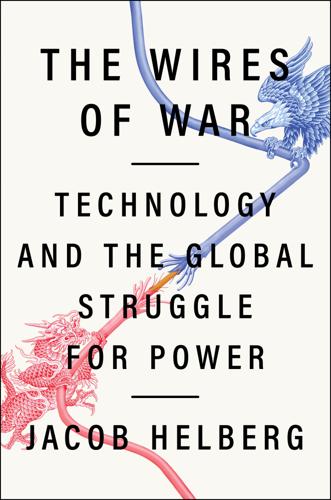
The Wires of War: Technology and the Global Struggle for Power
by
Jacob Helberg
Published 11 Oct 2021
Eventually, the Toledo Blade trumpeted the multimillion-dollar success the firm had become under the headline “Barber, Dentist, Builder Combine, Prosper In Real Estate Ventures.”3 In the article, my grandfather was called by his preferred nickname—Sam “the Poor Barber” Helberg. * * * Years before I’d hear Silicon Valley slogans like “Fail fast, fail often” or “Move fast and break things,” it was my family of striving underdogs who taught me resilience and hard work. We lived by the motto “Win or lose, always get caught trying.” My father, a psychiatrist able to prescribe himself pills, struggled with addiction but never stopped trying to get clean. My mother waitressed to pay the bills while she trained for an entirely new career, sleeping on a pull-out couch in the living room until we could get back on our feet after she left my father.
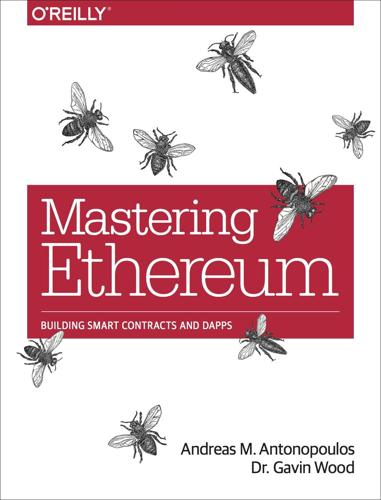
Mastering Ethereum: Building Smart Contracts and DApps
by
Andreas M. Antonopoulos
and
Gavin Wood Ph. D.
Published 23 Dec 2018
For the most part, changes are only implemented if they are backward compatible. Existing clients are allowed to opt-in, but will continue to operate if they decide not to upgrade. In Ethereum, by comparison, the community’s development culture is focused on the future rather than the past. The (not entirely serious) mantra is “move fast and break things.” If a change is needed, it is implemented, even if that means invalidating prior assumptions, breaking compatibility, or forcing clients to update. Ethereum’s development culture is characterized by rapid innovation, rapid evolution, and a willingness to deploy forward-looking improvements, even if this is at the expense of some backward compatibility.

Your Face Belongs to Us: A Secretive Startup's Quest to End Privacy as We Know It
by
Kashmir Hill
Published 19 Sep 2023
And rather than risk a trial in which it could lose billions of dollars, Facebook agreed to pay $650 million in a settlement. Tommer Leyvand eventually left Facebook to go work on “machine perception” at Apple. The face-recognizing hat he’d helped develop stayed secret. In Facebook’s early days, the company’s motto had been “Move fast and break things,” but after class action lawsuits, government scrutiny, and tangles with privacy regulators around the world, Mark Zuckerberg had officially retired that motto. Facebook was now moving more cautiously. It didn’t need to be the first company to come out with a world-changing people-identifying product.
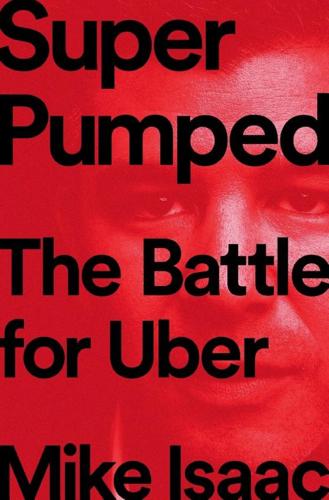
Super Pumped: The Battle for Uber
by
Mike Isaac
Published 2 Sep 2019
It’s less of a title than a statement. “I made this,” the founder proclaims. “I invented it out of nothing. I conjured it into being.” Travis Kalanick frequently compared building a startup to parenting a young child. A good founder lives and breathes the startup. As Mark Zuckerberg said, a founder moves fast and breaks things. The founder embraces the spirit of “the hacker way”; he is captain of the pirate ship. A good founder will work harder tomorrow than he did today. A good founder will sleep when he is dead (or after returning from a week at Burning Man). Like Kalanick at Red Swoosh, a good founder shepherds his company through difficult funding environments, but chooses his benefactors wisely.
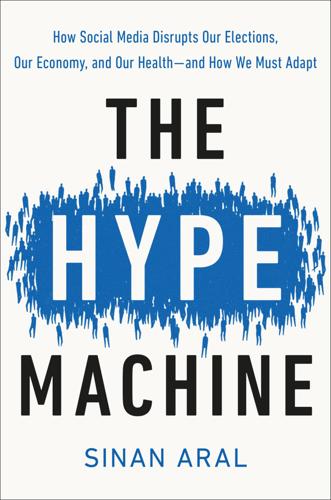
The Hype Machine: How Social Media Disrupts Our Elections, Our Economy, and Our Health--And How We Must Adapt
by
Sinan Aral
Published 14 Sep 2020
Facebook takes the relationship between art and innovation seriously. It’s even got an artist-in-residence program that brings in its artists to cover the walls and hallways of its Menlo Park campus with creative and meaningful murals. The art, in some sense, reflects Facebook’s culture, for better or worse. There’s a famous stencil poster that reads “Move Fast and Break Things.” When Mark Zuckerberg first coined the phrase, it was heralded as the creative mentality driving Facebook’s innovation. Today it represents the careless mindset that missed the fake news crisis and Russia’s intervention in American democracy. In some ways, the art in Facebook’s offices reflects the culture and societal implications of the platform.
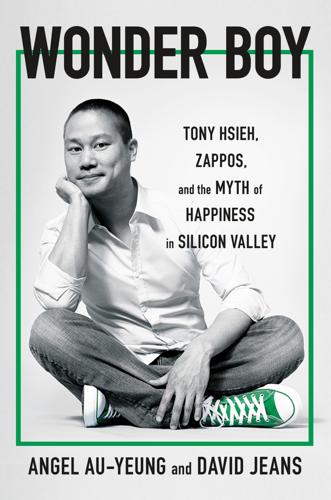
Wonder Boy: Tony Hsieh, Zappos, and the Myth of Happiness in Silicon Valley
by
Angel Au-Yeung
and
David Jeans
Published 25 Apr 2023
They would be embarking on an entirely new venture: a $350 million investment, most of which would be privately funded by Tony, to revitalize Fremont East, a long-decaying corner of Las Vegas, and turn it into a mecca for technology, culture, and community. Tony called it “the city as a startup”—as if it were possible to apply the “move fast and break things” ideology of Facebook and other high-flying tech startups to an entire metropolis. His fourteen hundred employees weren’t just moving offices. They were going to rebuild their own slice of Las Vegas. “How many opportunities in a lifetime do you have to help shape the future of a major city?”
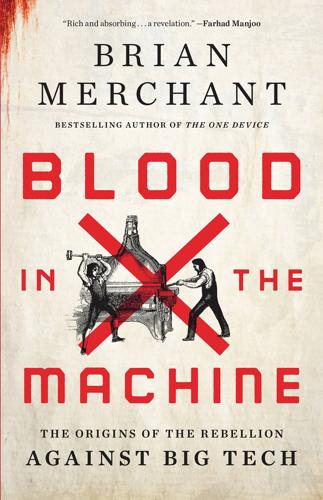
Blood in the Machine: The Origins of the Rebellion Against Big Tech
by
Brian Merchant
Published 25 Sep 2023
Our most widely accessible definition of the word is dismissive and derisive—Luddites, we are told, smashed machines because they were afraid and angry at them, because they were short-sighted. Now think of every Silicon Valley philosophy that’s been blasted into the mainstream—about moving fast and breaking things, about regulation as the enemy of invention, about the gospel of “disruption” at any cost—and consider that these axioms are now so deeply ingrained in our lives and our politics that they have taken on the air of common sense. Think of all the critiques, qualms, and challenges to technology that have been waved away with a derogatory “Don’t be a Luddite.”

WTF?: What's the Future and Why It's Up to Us
by
Tim O'Reilly
Published 9 Oct 2017
Amazon asks those tasked with doing the work to imagine the intended user experience, not to specify all of the implementation details in advance. As they build the actual product or service, they continue to learn and refine their ideas.) Now, to be fair, many (though far from all) of the things that government regulates have far higher stakes than a consumer app. “Move fast and break things,” Mark Zuckerberg’s famous admonition to his developers at Facebook, hardly applies to the design of bridges, air traffic control, the safety of the food supply, or many of the other things that government regulates. Government also must be inclusive, serving all residents of the country, not just a highly targeted set of users.

Nexus: A Brief History of Information Networks From the Stone Age to AI
by
Yuval Noah Harari
Published 9 Sep 2024
Isaacson, Elon Musk, chap. 65, “Neuralink, 2017–2020,” and chap. 89, “Miracles: Neuralink, November 2021”; Rachel Levy, “Musk’s Neuralink Faces Federal Probe, Employee Backlash over Animal Tests,” Reuters, Dec. 6, 2023, www.reuters.com/technology/musks-neuralink-faces-federal-probe-employee-backlash-over-animal-tests-2022-12-05/; Elon Musk and Neuralink, “An Integrated Brain-Machine Interface Platform with Thousands of Channels,” Journal of Medical Research 21, no. 10 (2019), doi.org/10.2196/16194; Emily Waltz, “Neuralink Barrels into Human Tests Despite Fraud Claims,” IEEE Spectrum, Dec. 6, 2023, spectrum.ieee.org/neuralink-human-trials; Aswin Chari et al., “Brain-Machine Interfaces: The Role of the Neurosurgeon,” World Neurosurgery 146 (Feb. 2021): 140–47, doi.org/10.1016/j.wneu.2020.11.028; Kenny Torrella, “Neuralink Shows What Happens When You Bring ‘Move Fast and Break Things’ to Animal Research,” Vox, Dec. 11, 2023, www.vox.com/future-perfect/2022/12/11/23500157/neuralink-animal-testing-elon-musk-usda-probe. 17. Jerry Tang et al., “Semantic Reconstruction of Continuous Language from Non-invasive Brain Recordings,” Nature Neuroscience 26 (2023): 858–66, doi.org/10.1038/s41593-023-01304-9. 18.
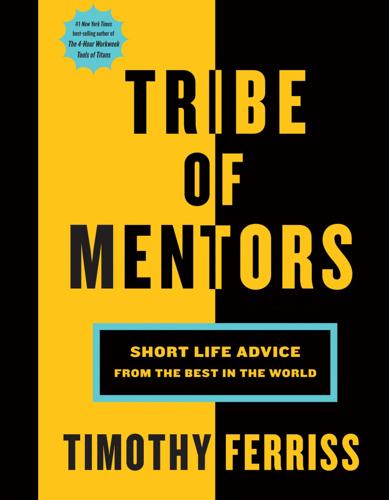
Tribe of Mentors: Short Life Advice From the Best in the World
by
Timothy Ferriss
Published 14 Jun 2017
But for me, making progress on the ideas was very rewarding in itself at the time, even though they would have made the worst party conversation topics ever. Eventually, decades after, they generated more social accolades than I now know what to do with. What are bad recommendations you hear in your profession or area of expertise? The Silicon Valley mantra “move fast and break things” is very bad advice when one is dealing with sizable sums of money! If you could have a gigantic billboard anywhere with anything on it, what would it say? “Trusted third parties are security holes.” What purchase of $100 or less has most positively impacted your life in the last six months (or in recent memory)?
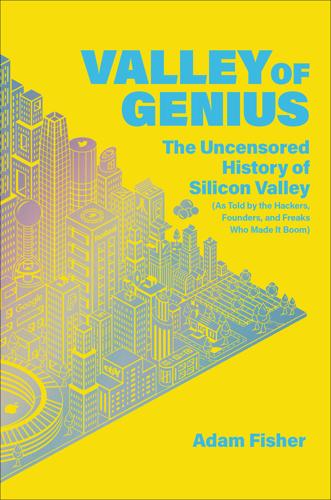
Valley of Genius: The Uncensored History of Silicon Valley (As Told by the Hackers, Founders, and Freaks Who Made It Boom)
by
Adam Fisher
Published 9 Jul 2018
No testing—they would just ship it. Ezra Callahan: Most websites have these very robust testing platforms so that they can test changes. That’s not how we did it. Ruchi Sanghvi: With the push of a button you could push out code to the live site, because we truly believed in this philosophy of “move fast and break things.” So you shouldn’t have to wait to do it once a week, and you shouldn’t have to wait to do it once a day. If your code was ready you should be able to push it out live to users. And that was obviously a nightmare. Katie Geminder: Can our servers stand up to something? Or security: How about testing a feature for security holes?

Empire of AI: Dreams and Nightmares in Sam Altman's OpenAI
by
Karen Hao
Published 19 May 2025
In meetings and on Slack, people in Safety repeatedly raised concerns to senior leadership about how this imbalance was causing misaligned incentives: Having clear-cut growth and revenue goals without some kind of strong, comparable counterbalance was pushing OpenAI to operate more and more like a “move fast and break things” operation. In private conversations with Safety, Altman expressed sympathy for their perspective, agreeing that the company was not on track with its AI safety research and needed to invest in it more. In private conversations with Applied, he pressed them to keep going. During board meetings, he nodded along as Brockman voiced frustrations about the ways that people were using AI safety as political leverage to stall progress for their own purposes.
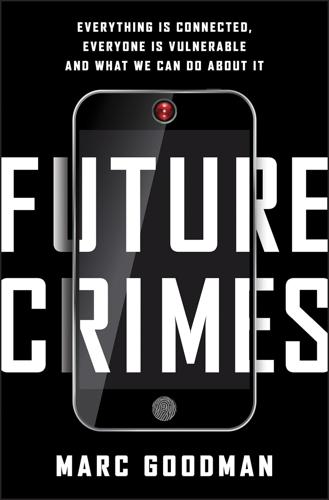
Future Crimes: Everything Is Connected, Everyone Is Vulnerable and What We Can Do About It
by
Marc Goodman
Published 24 Feb 2015
Killer Apps: Bad Software and Its Consequences Every time you get a security update … whatever is getting updated has been broken, lying there vulnerable, for who-knows-how-long. Sometimes days, sometimes years. QUINN NORTON Facebook’s software developers have long lived by the mantra “Move fast and break things.” The saying, which was emblazoned on the walls across the company’s headquarters, reflected Facebook’s hacker ethos, which dictated that even if new software tools or features were not perfect, speed of code creation was key, even if it caused problems or security issues along the way.
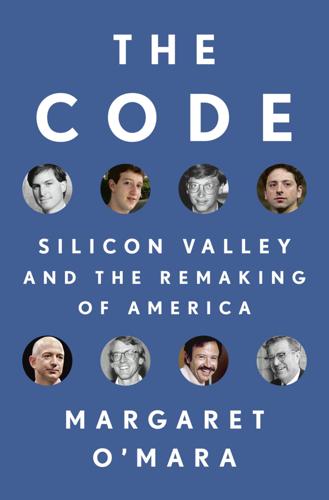
The Code: Silicon Valley and the Remaking of America
by
Margaret O'Mara
Published 8 Jul 2019
An expansionist, earnest, set-the-defaults-to-public spirit reverberated through the campus. By connecting the world through software, and doing so at massive scale, the company was accomplishing something the Valley had been trying to do for generations. Posters emblazoned with the company’s de facto motto adorned the walls surrounding Facebook’s expansive open-plan bullpen: “Move fast and break things.” Mark Zuckerberg remained in charge, owning over 24 percent of the company and controlling three of its five board seats. The Valley’s Internet-era inner circle had become funders and close advisors. Peter Thiel had given Facebook its first big investment back in 2004 and was a board member.
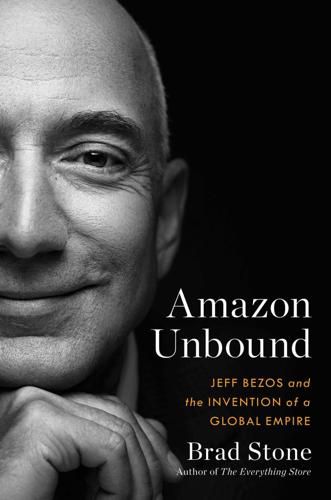
Amazon Unbound: Jeff Bezos and the Invention of a Global Empire
by
Brad Stone
Published 10 May 2021
Meanwhile, working groups inside Amazon were broken into small versatile units, called two-pizza teams (because they were small enough to be fed with two pizzas), and were ordered to move quickly, often in competition with one another. This unusual and decentralized corporate culture hammered into employees that there was no trade-off between speed and accuracy. They were supposed to move fast and never break things. Goals, accountability, and deadlines were pushed down into the organization, while metrics were fed upward, via weekly and quarterly business reports and biannual companywide reviews, called OP1 (for operating plan, in the late summer) and OP2 (after the holidays). The performance of each team was evaluated by Bezos’s hallowed leadership council of like-minded math whizzes: the S-team (for senior team).
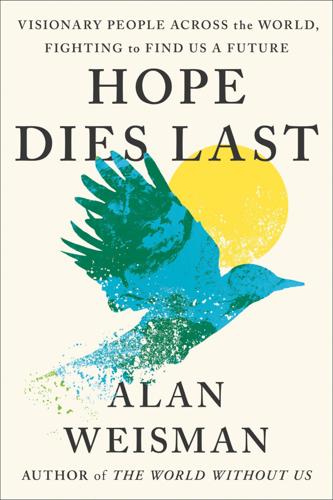
Hope Dies Last: Visionary People Across the World, Fighting to Find Us a Future
by
Alan Weisman
Published 21 Apr 2025
Between IRA money, surcharges on ratepayers’ electric and gas bills, state bonds, and a greenhouse gas initiative in which multiple states collect money from utilities and other highly polluting entities, Luis could now access billions in electrification incentives. His job, he told Bardaglio, was “to stretch every dollar as a catalyst for private investment or philanthropic investment.” No longer was he seen as a guy moving too fast and breaking things. His mandate now was to disrupt. He and Courtney still lived in Ithaca, and a small group, including Bardaglio and the deputy who replaced him, still met with Luis regularly. But unlike when he began, Ithaca’s Green New Deal faced inflation, foreign wars, and rising electricity costs—partly because as natural gas usage declines, the cost of maintaining its remaining infrastructure doesn’t.